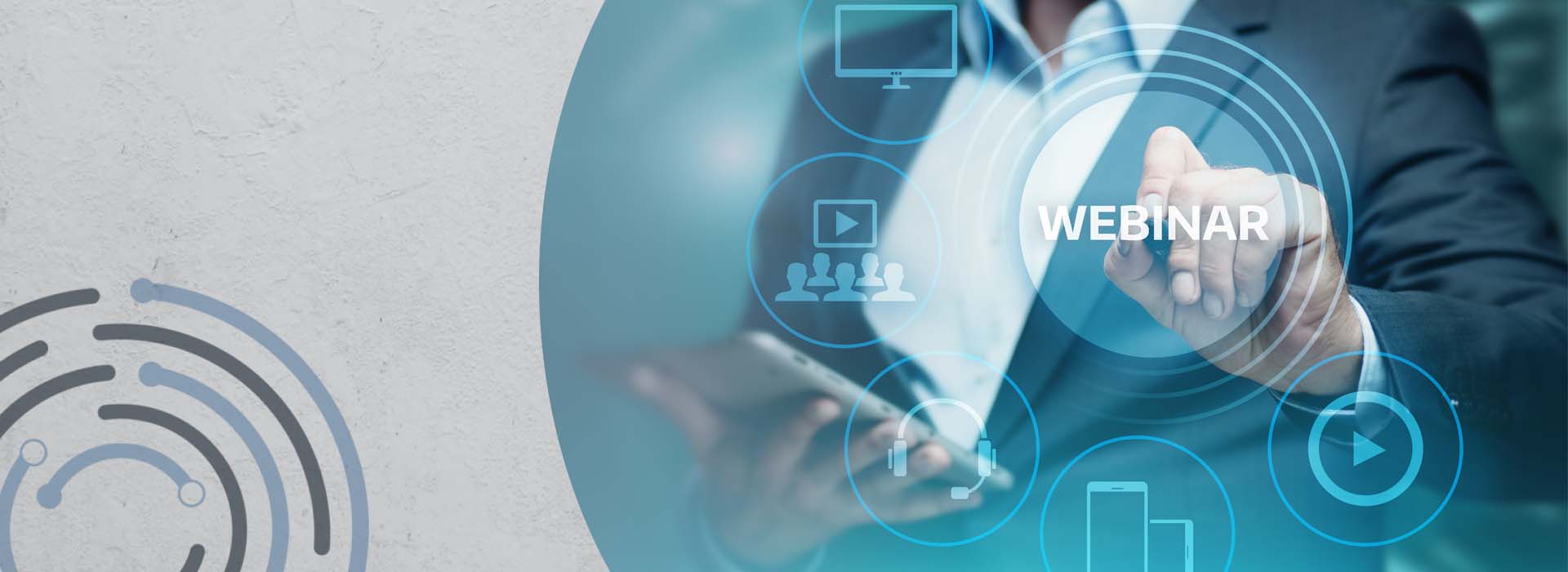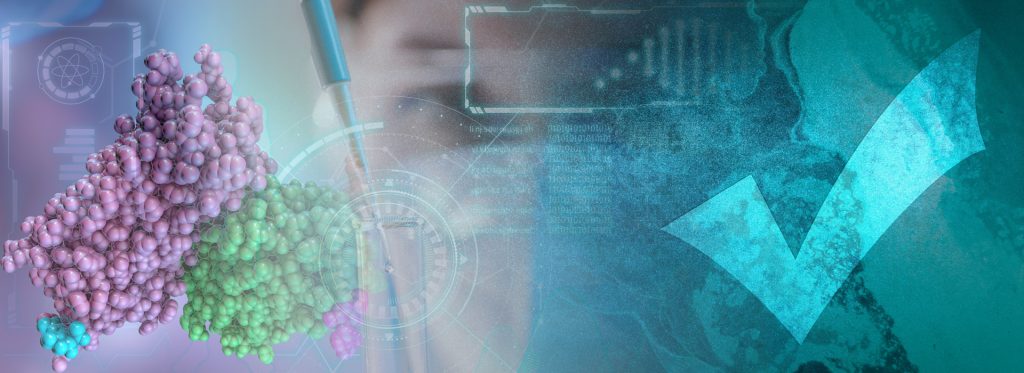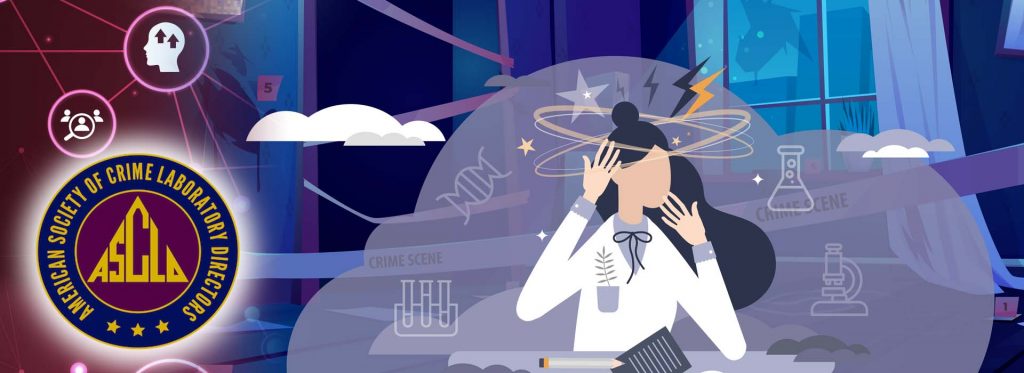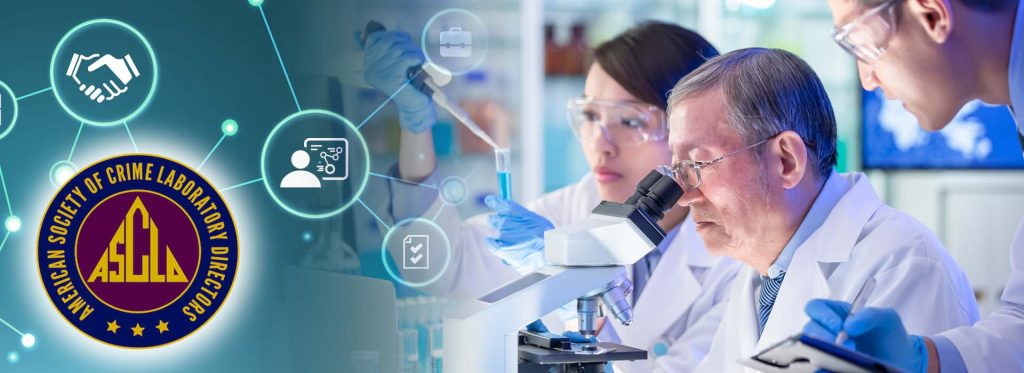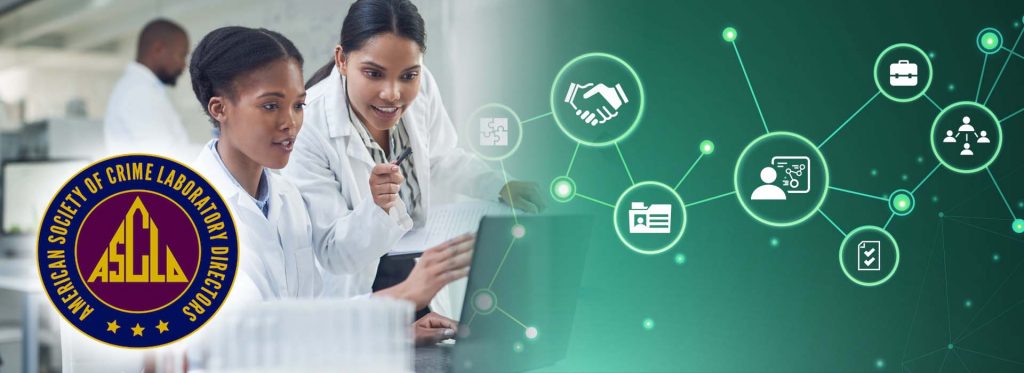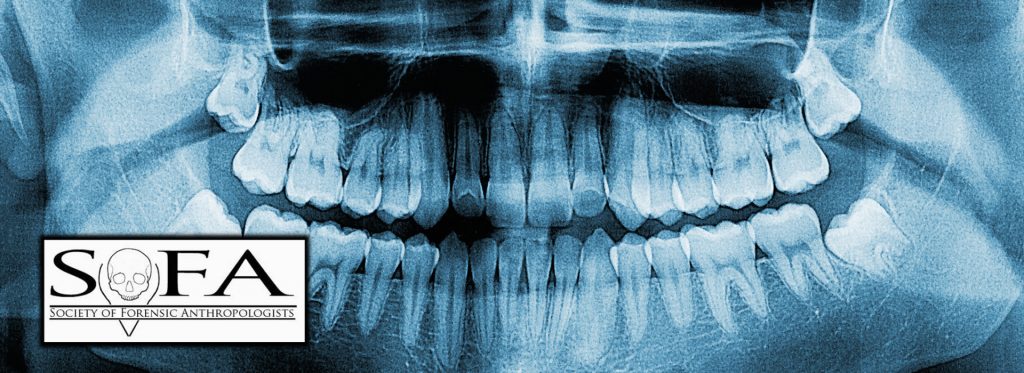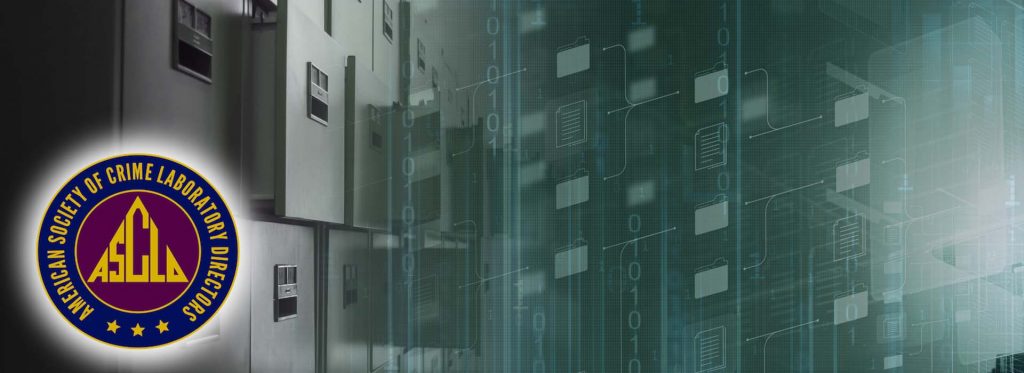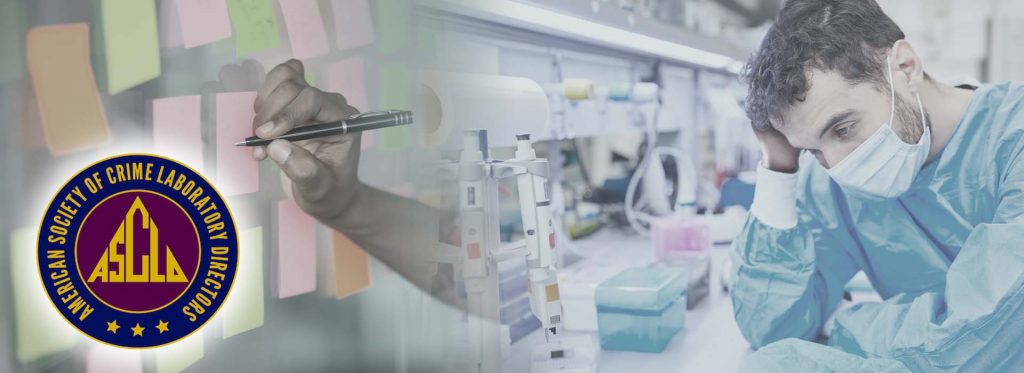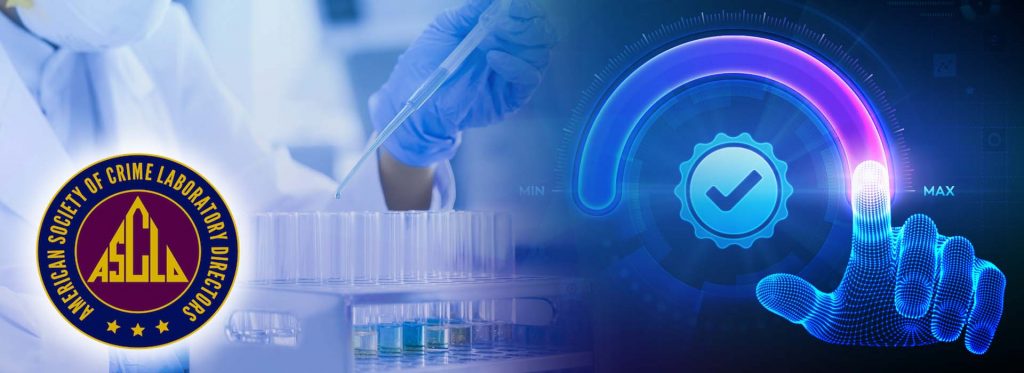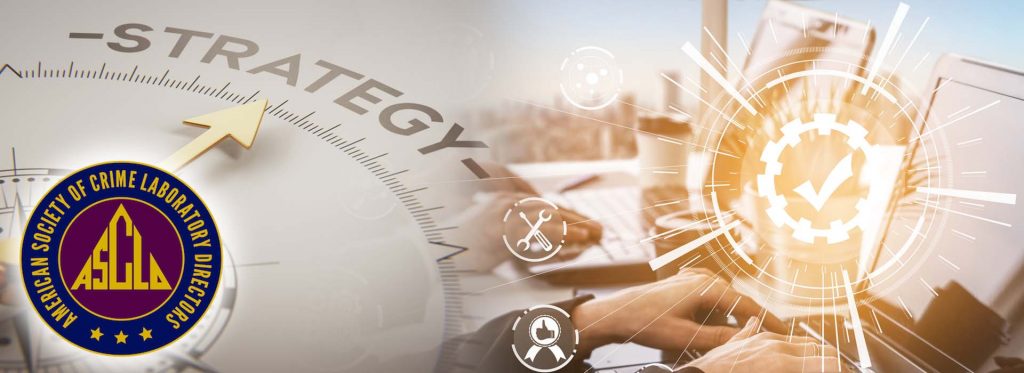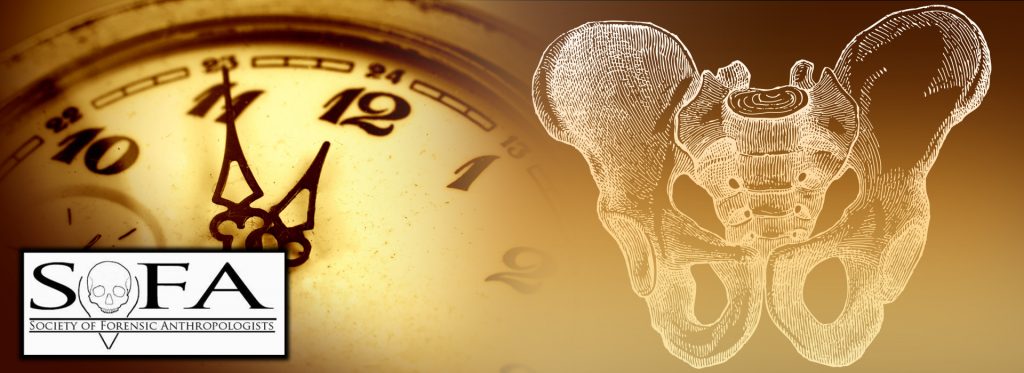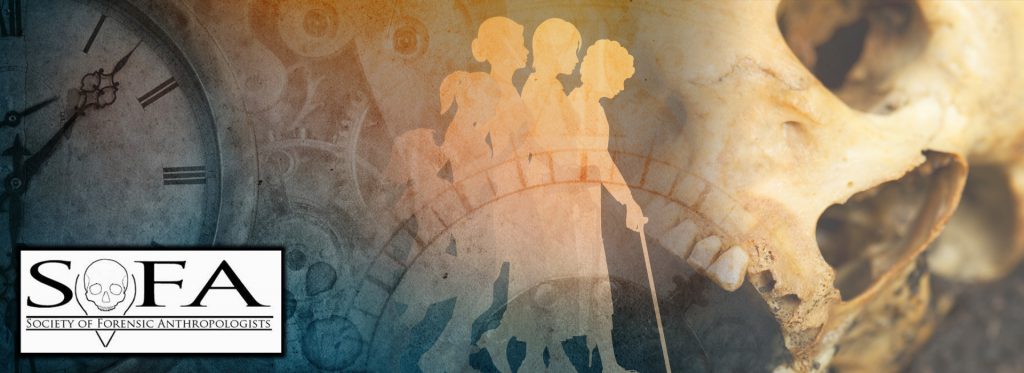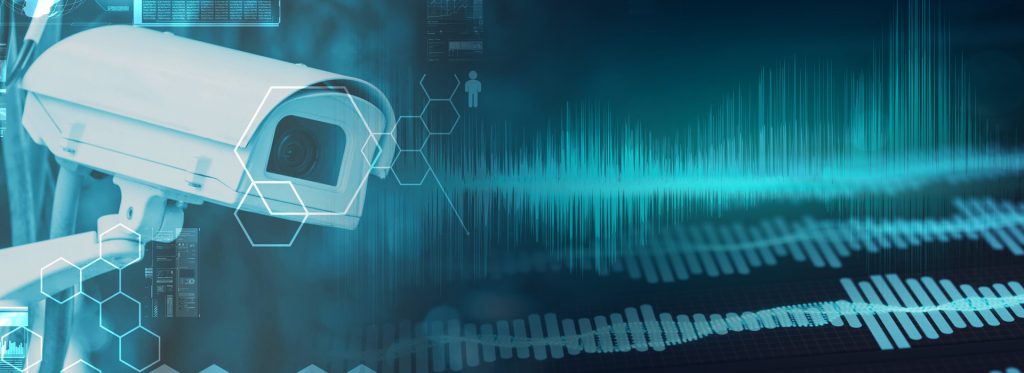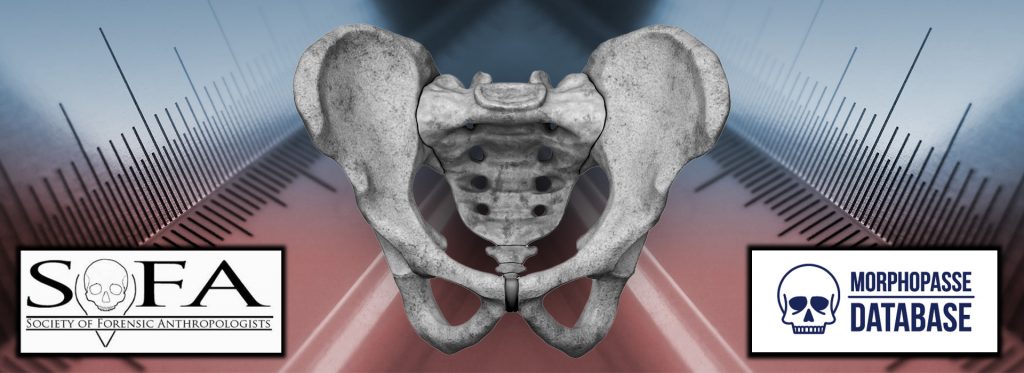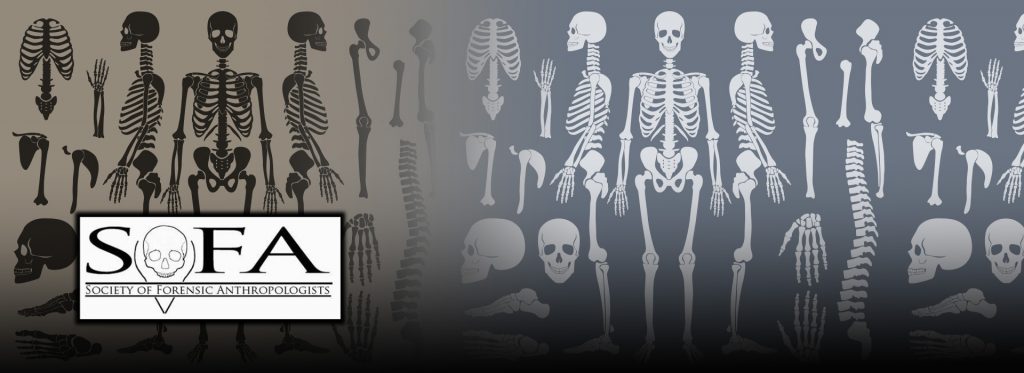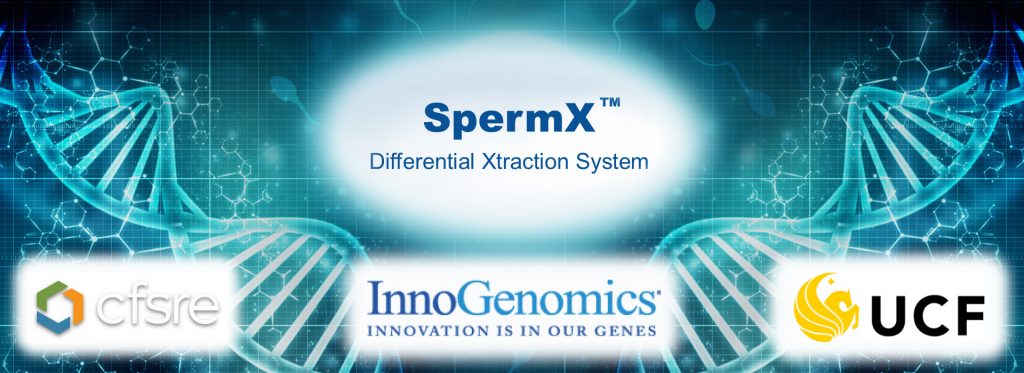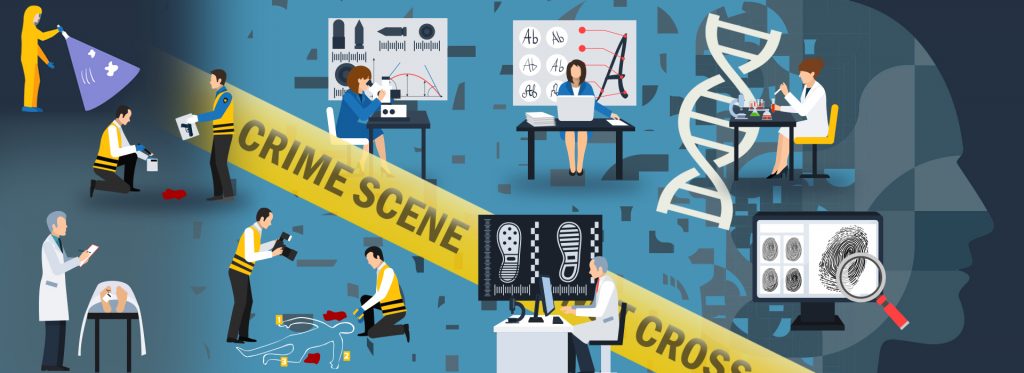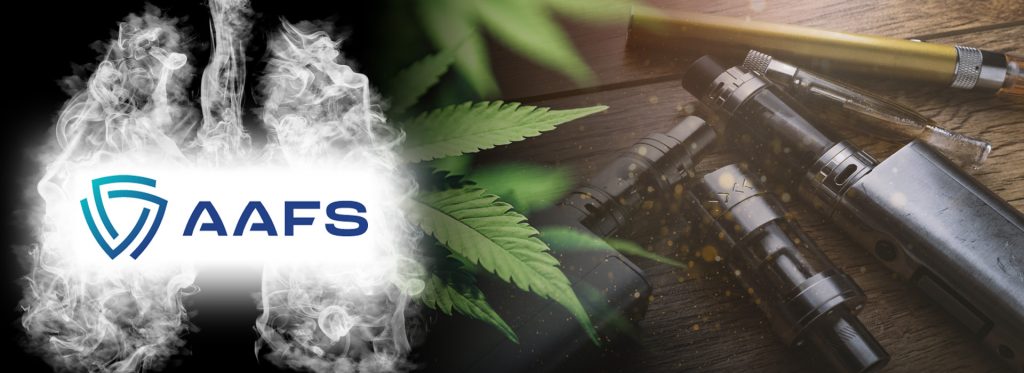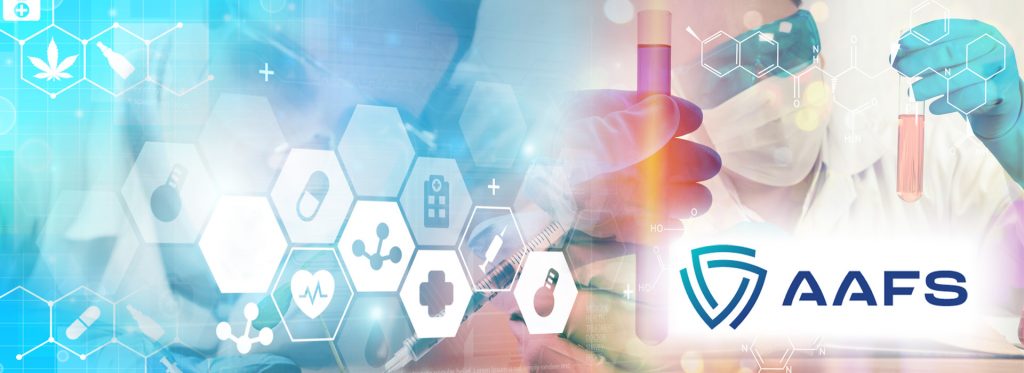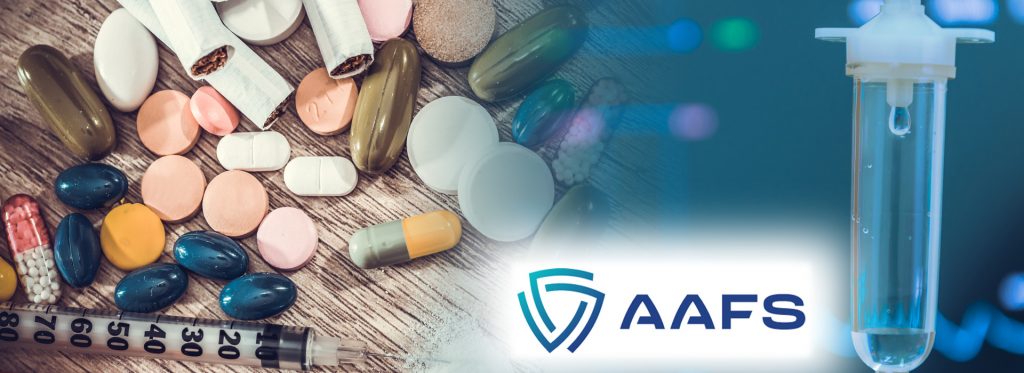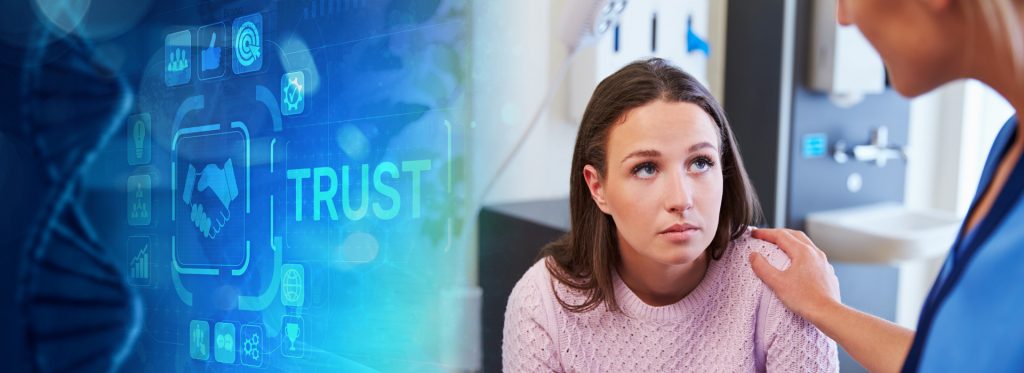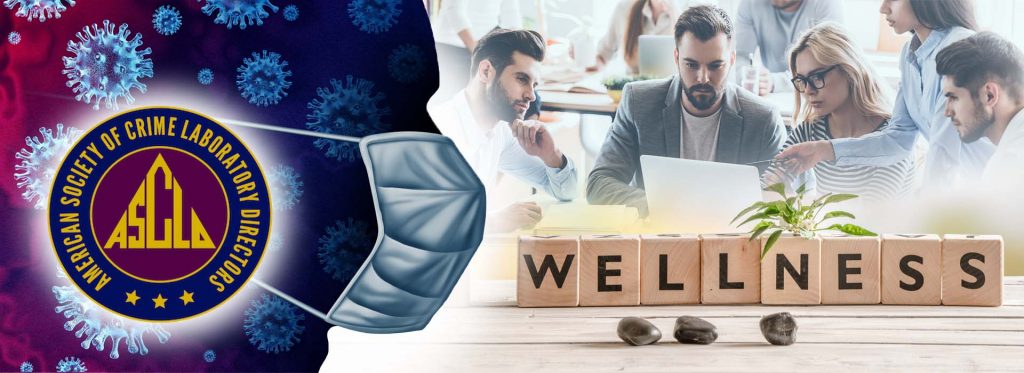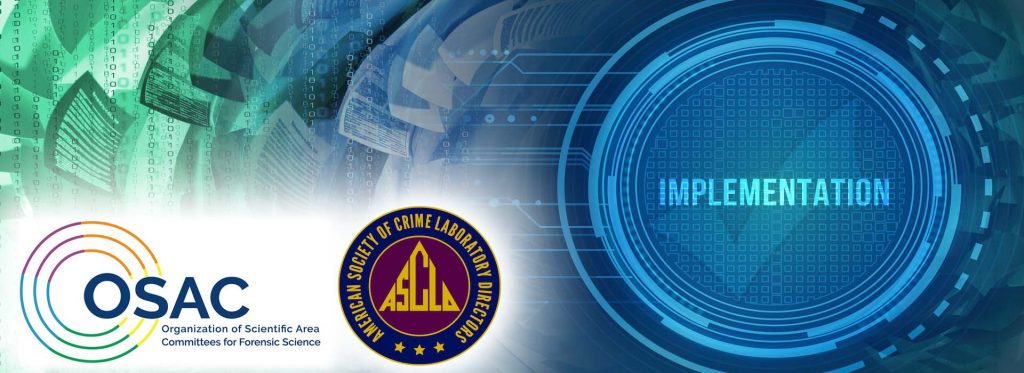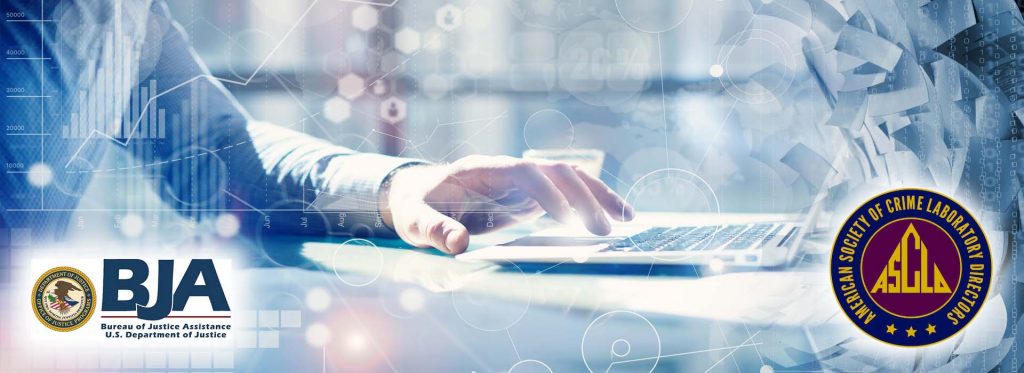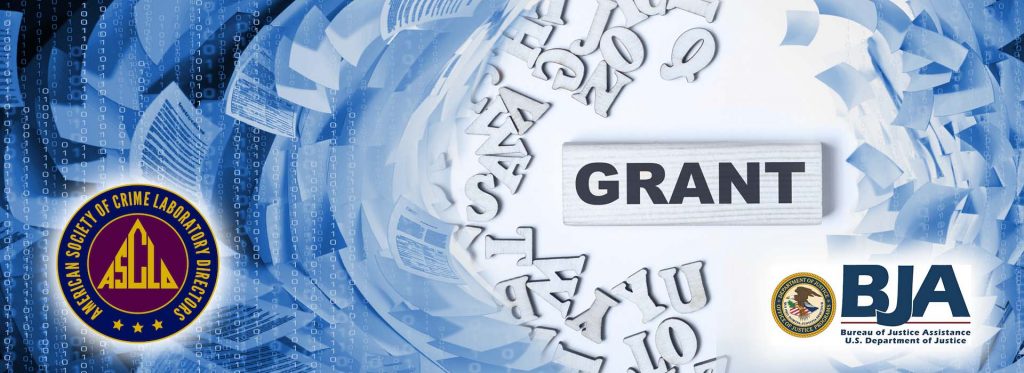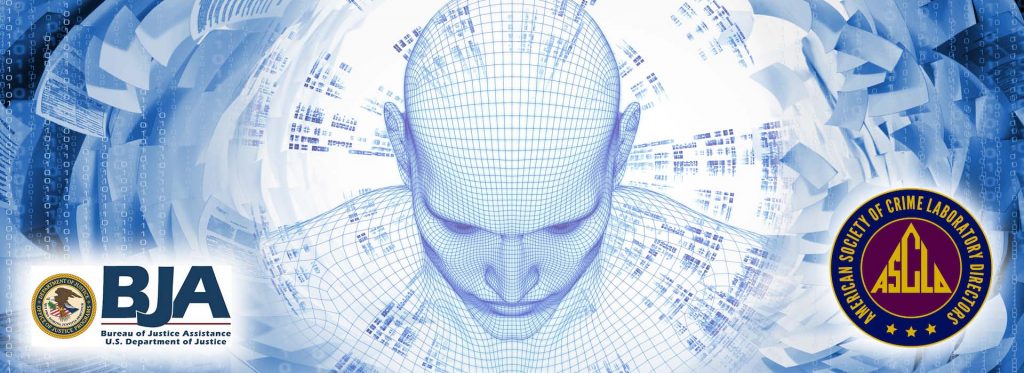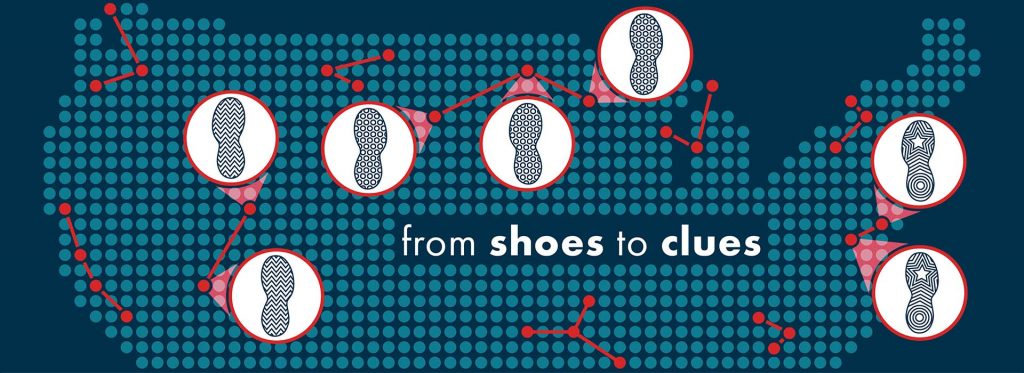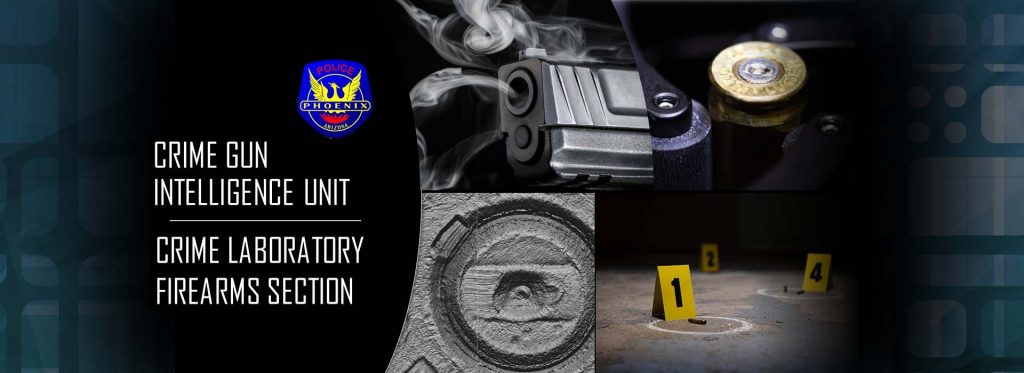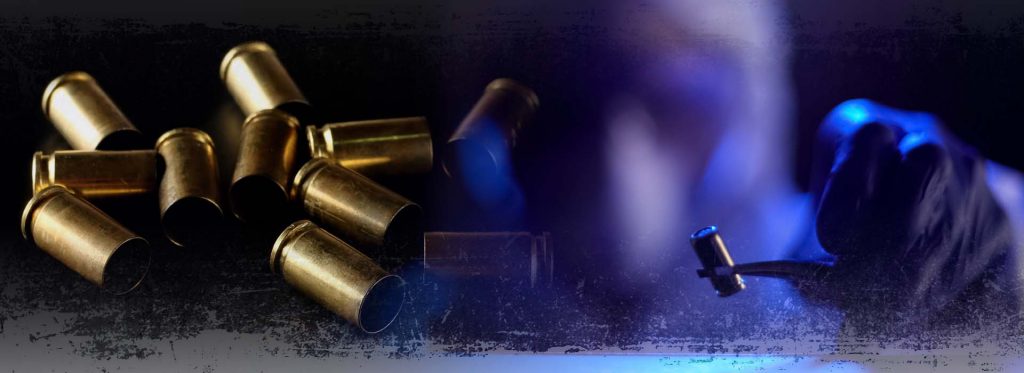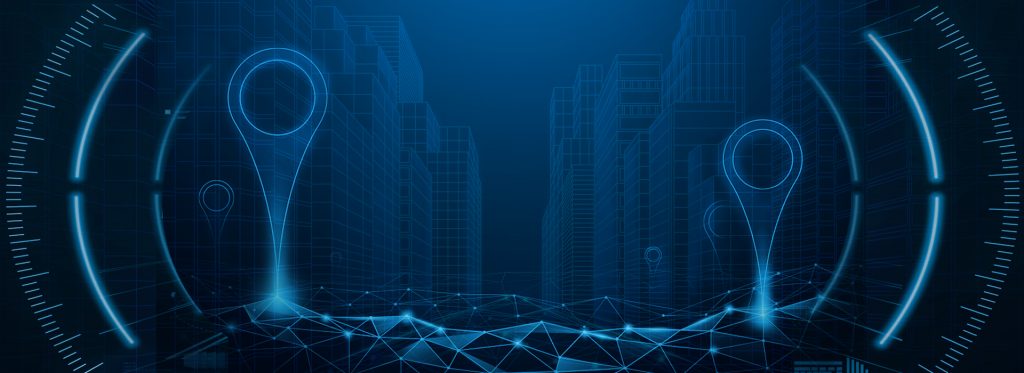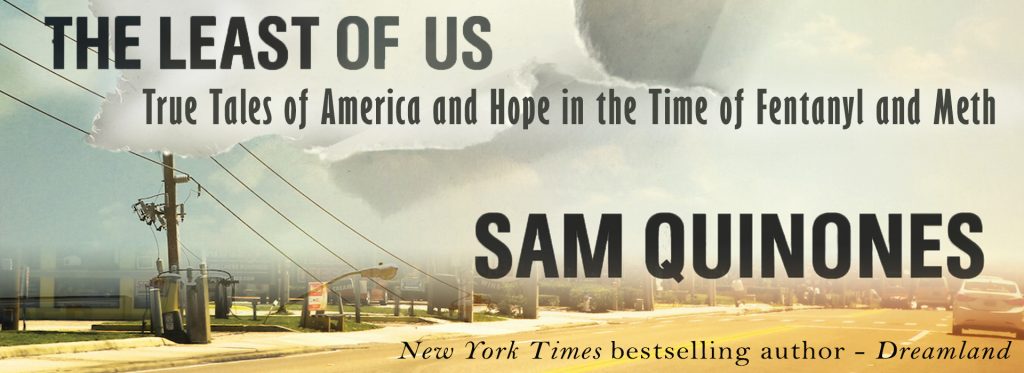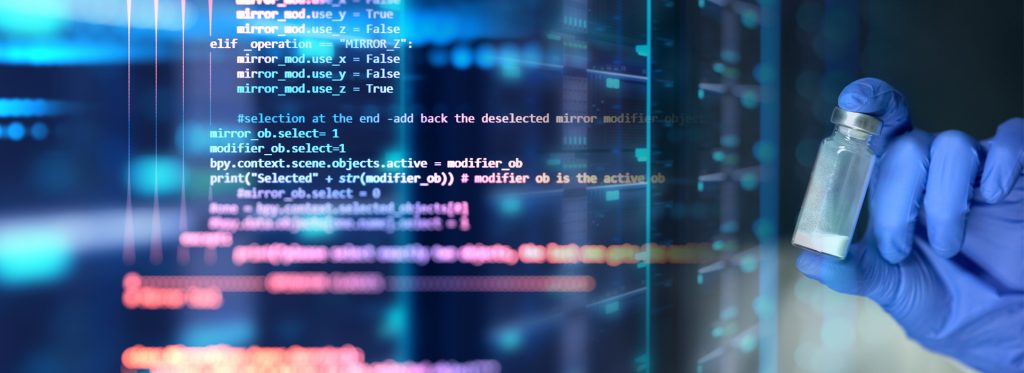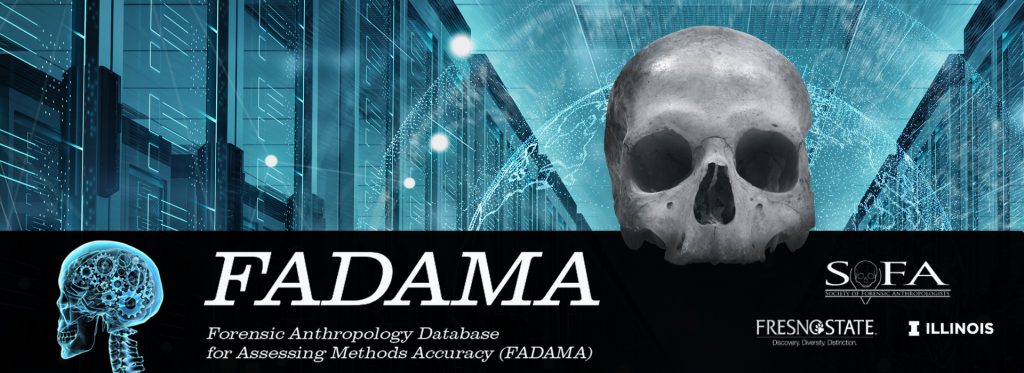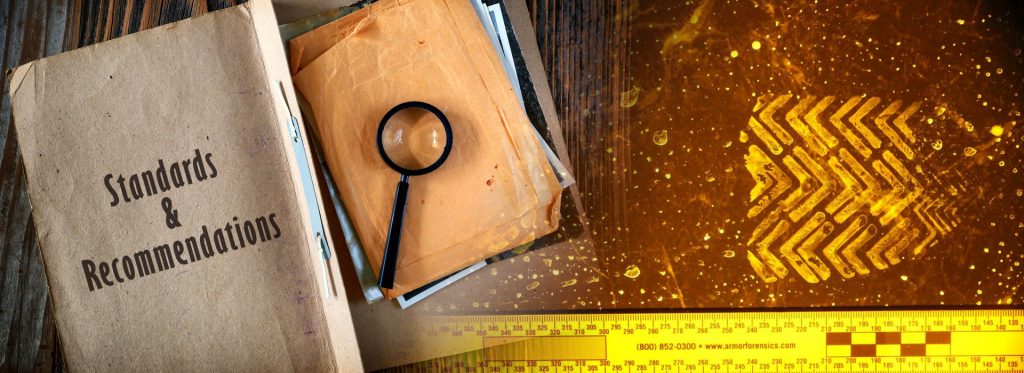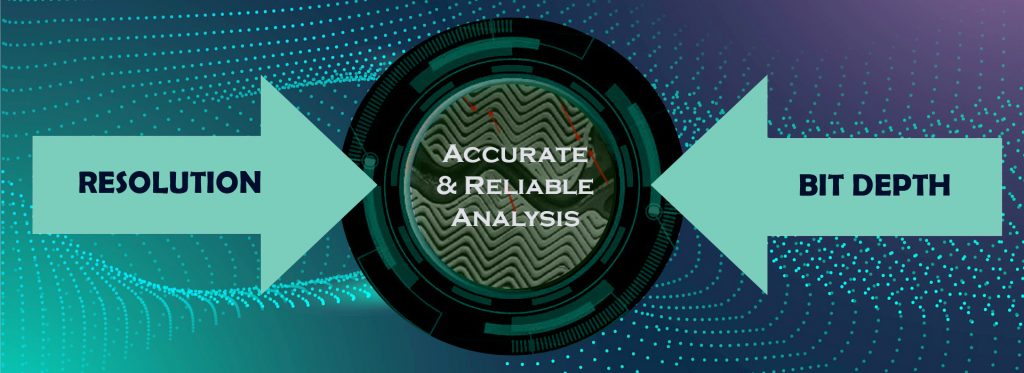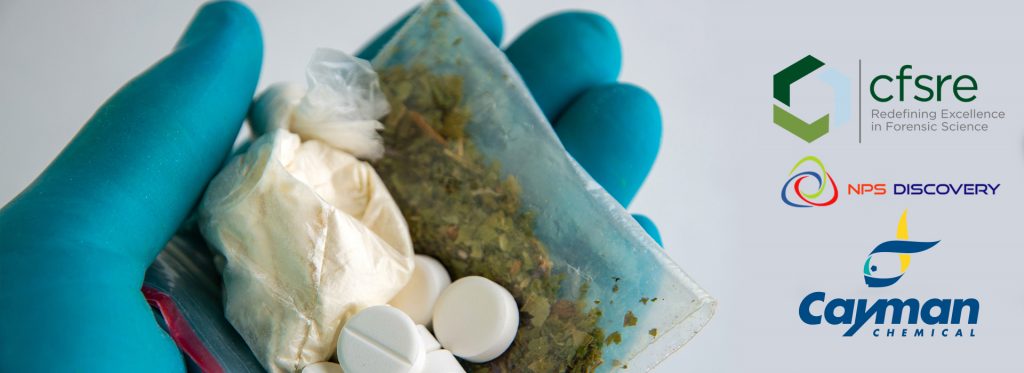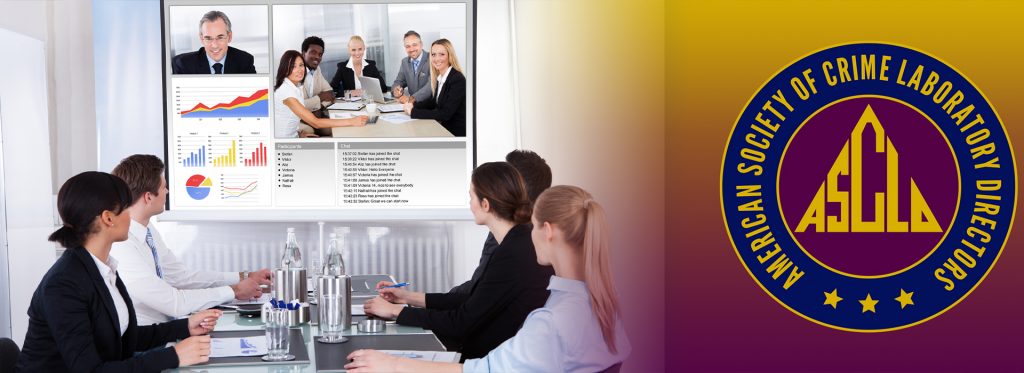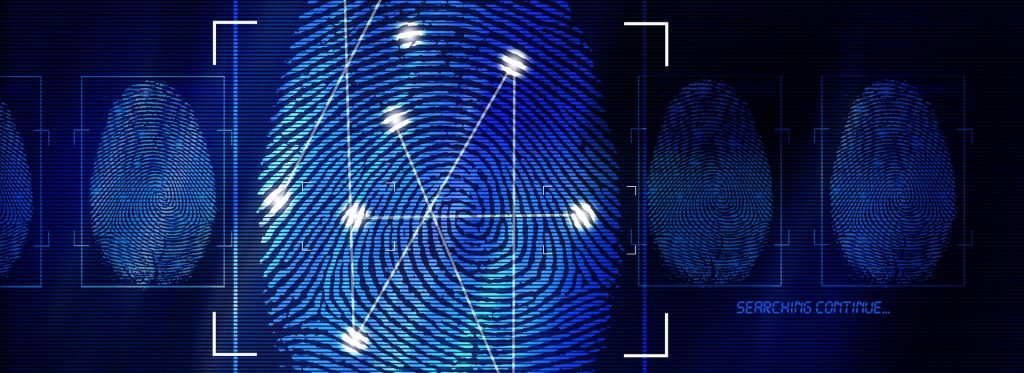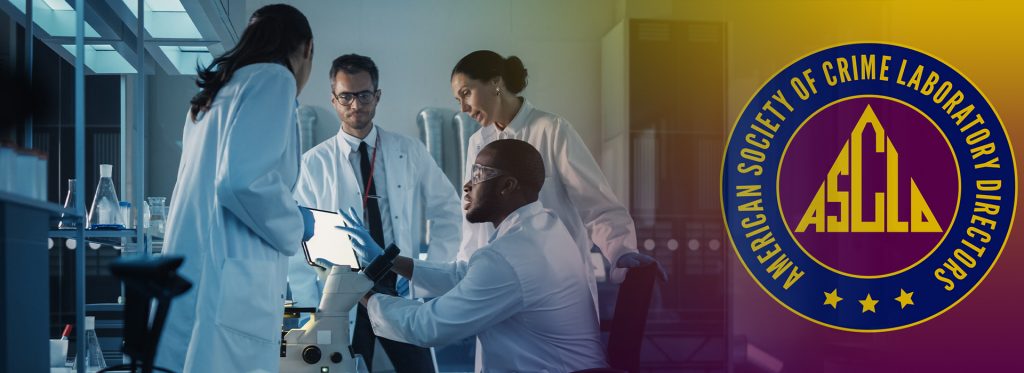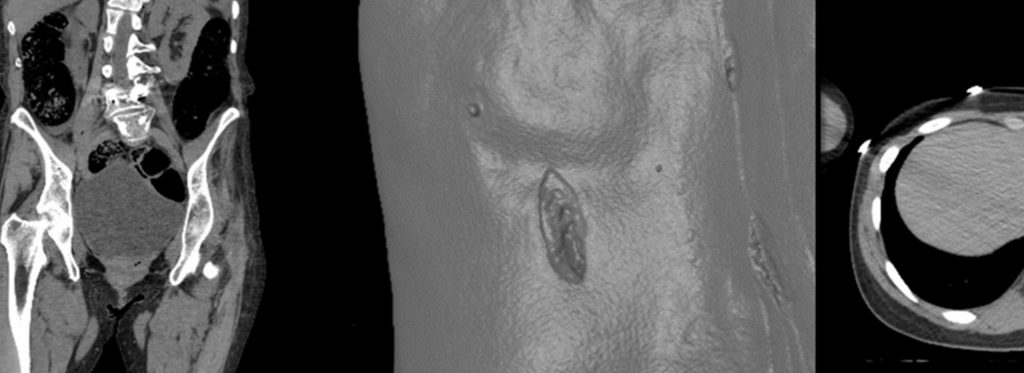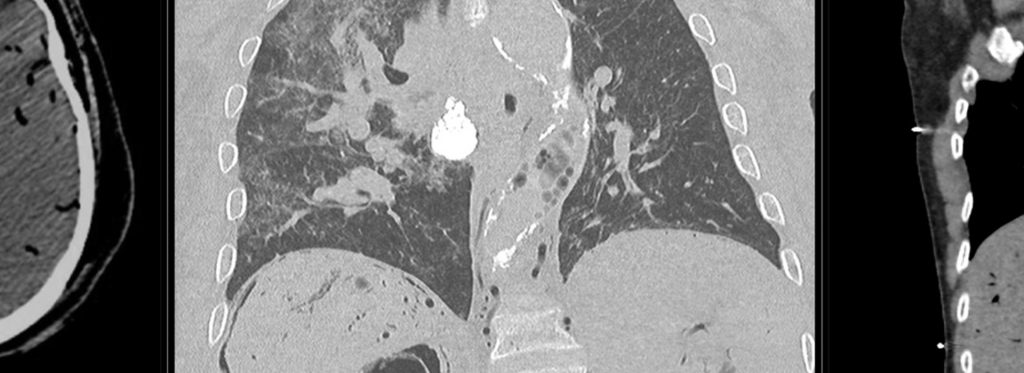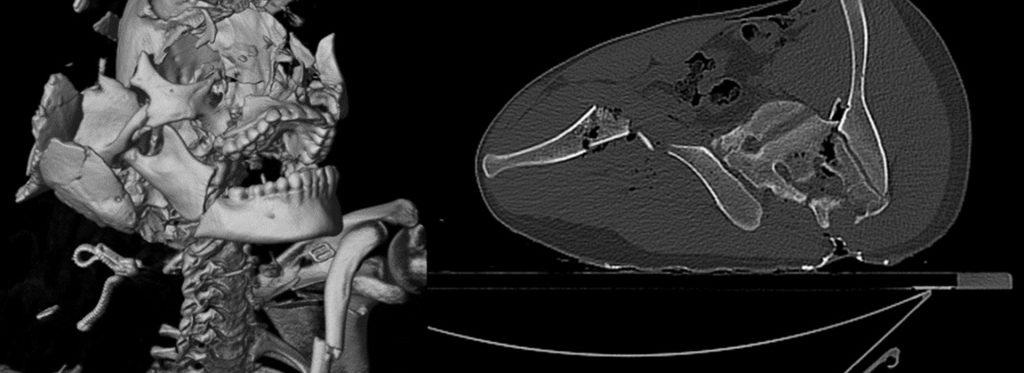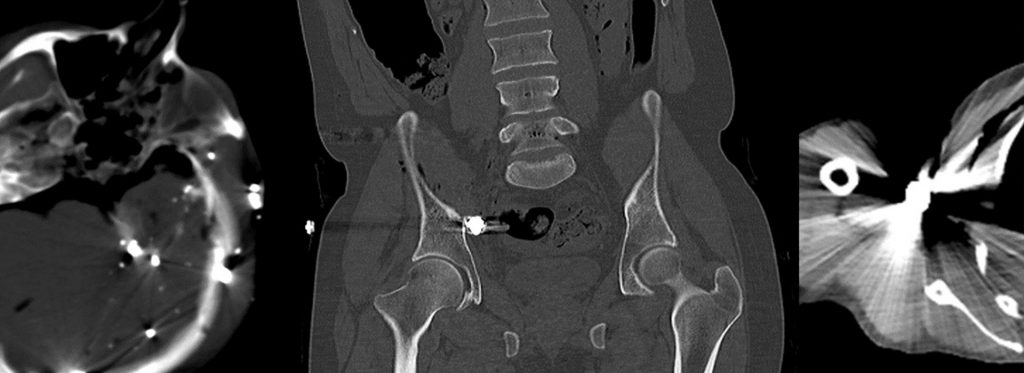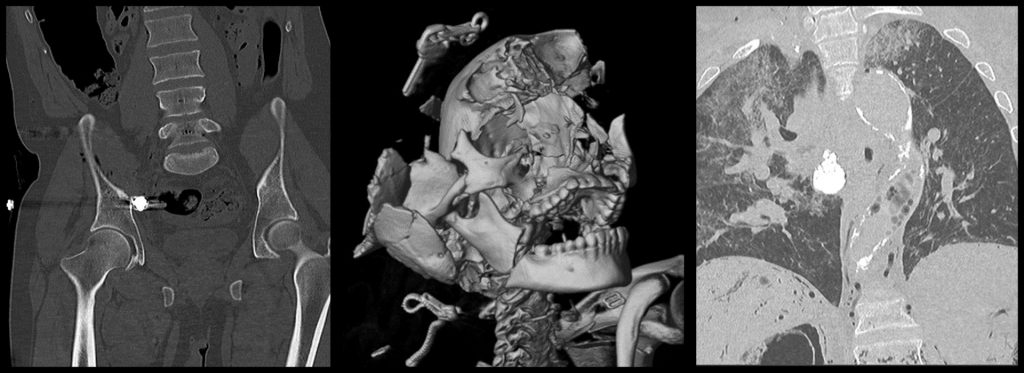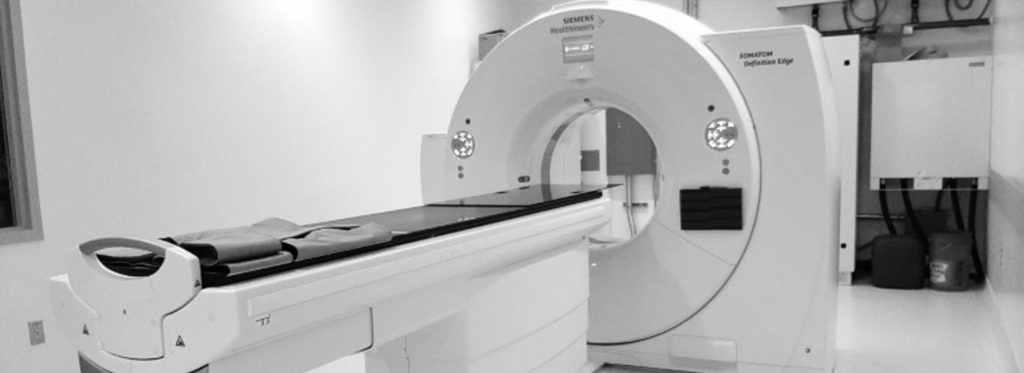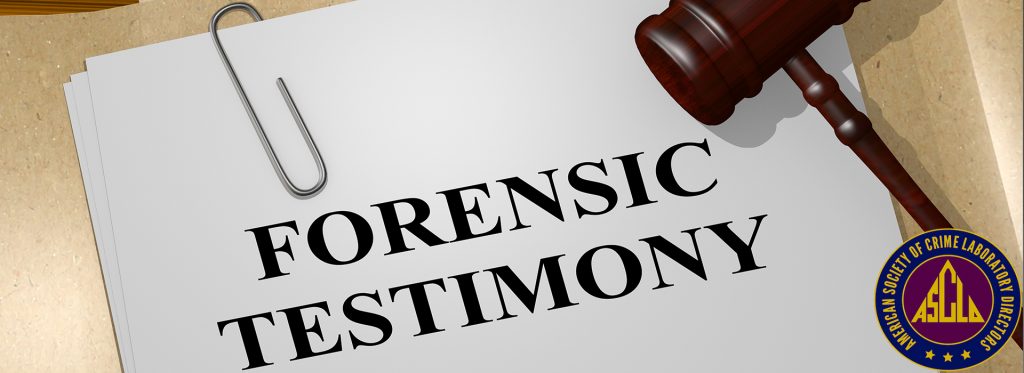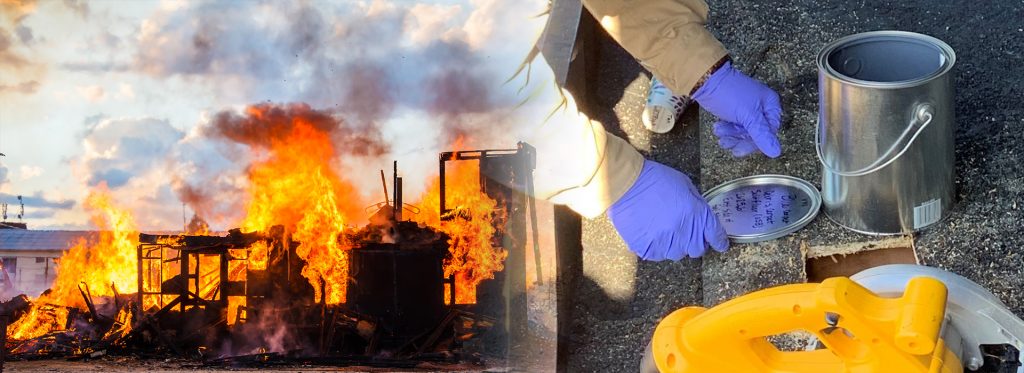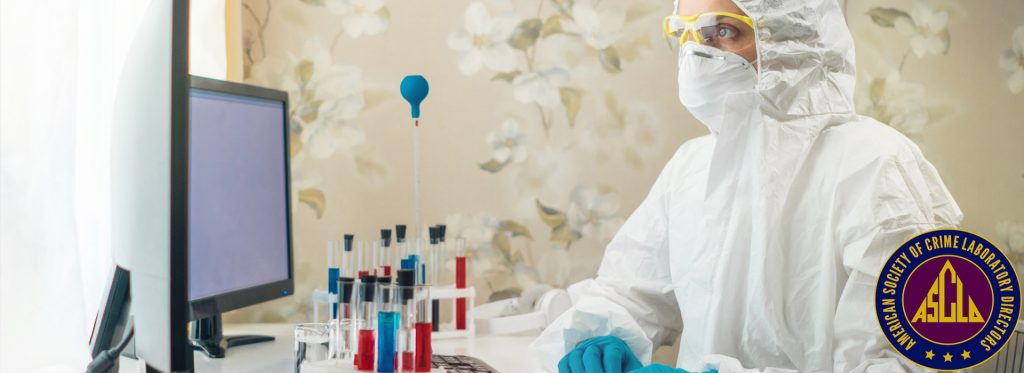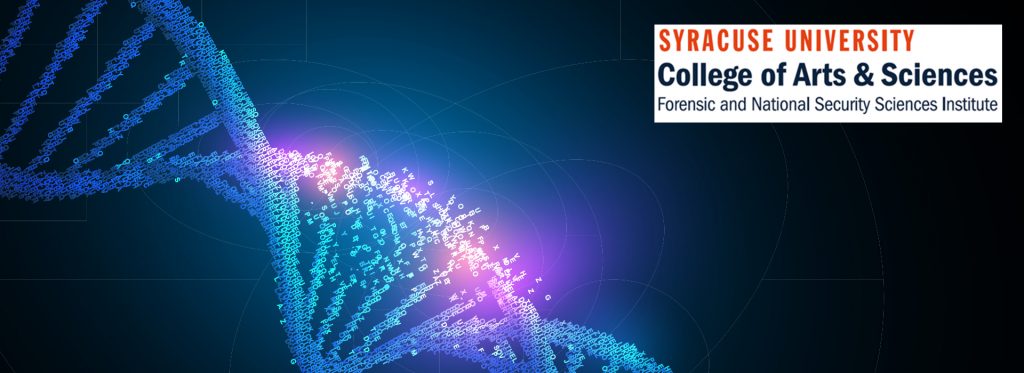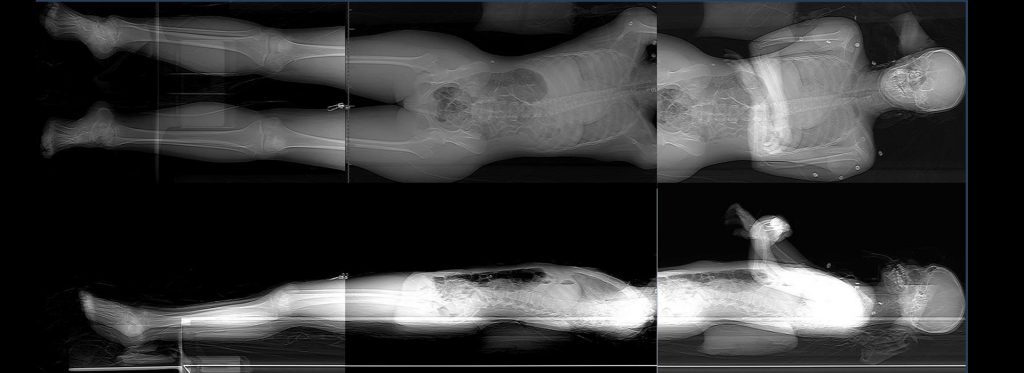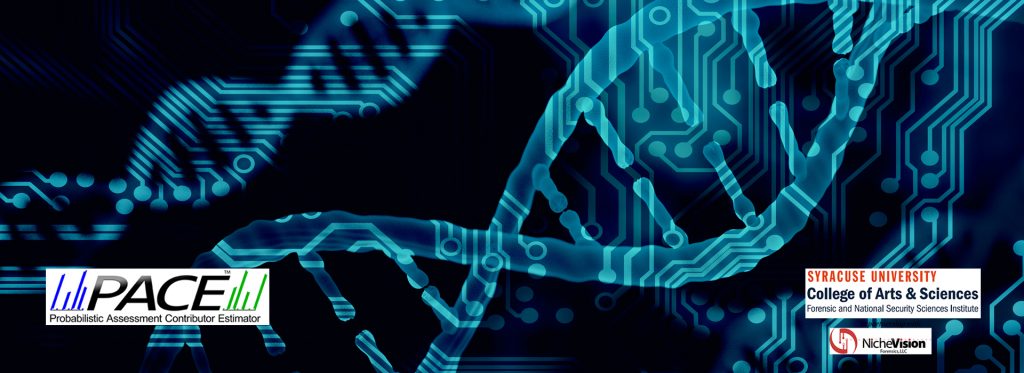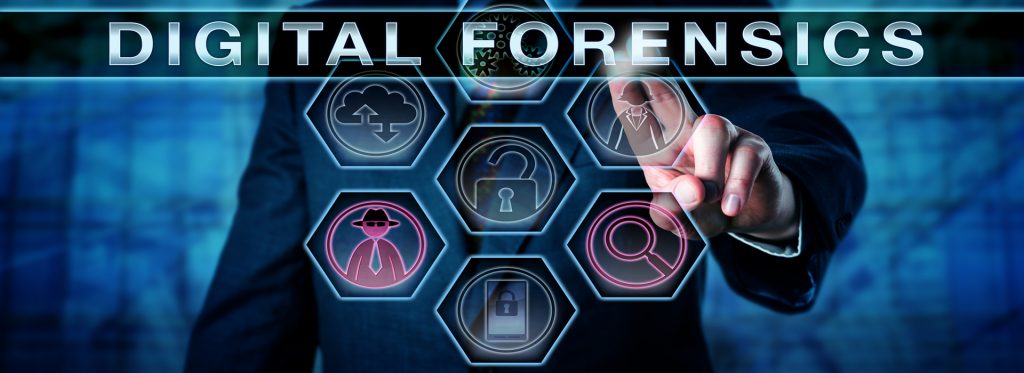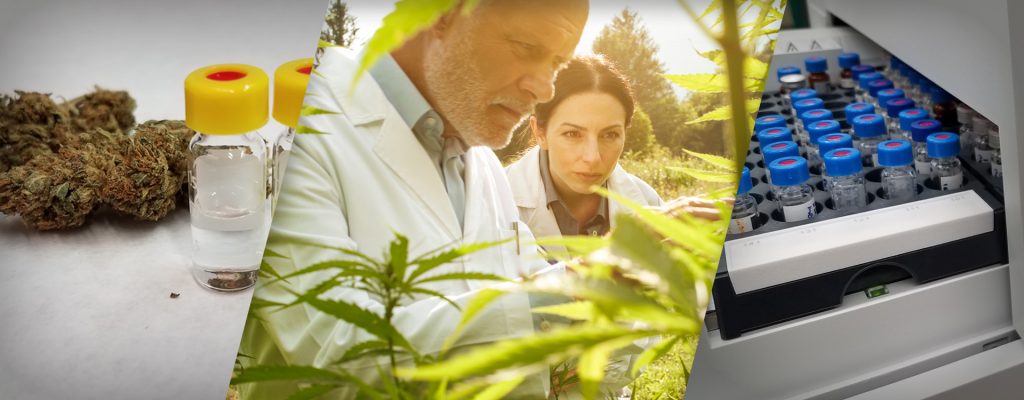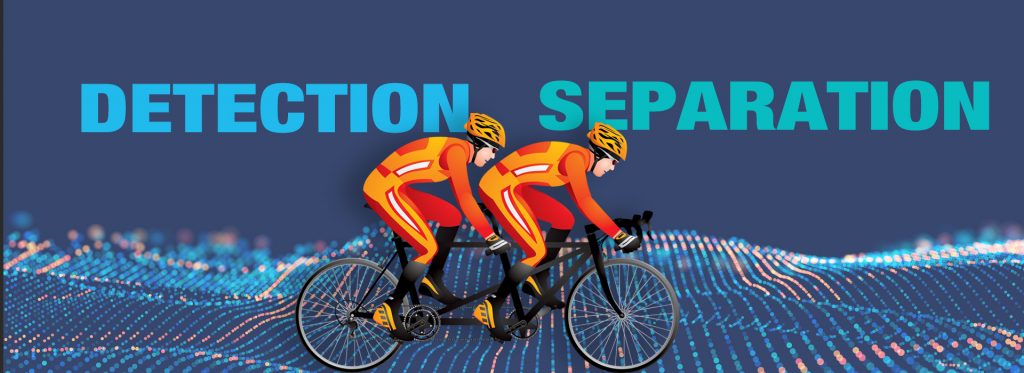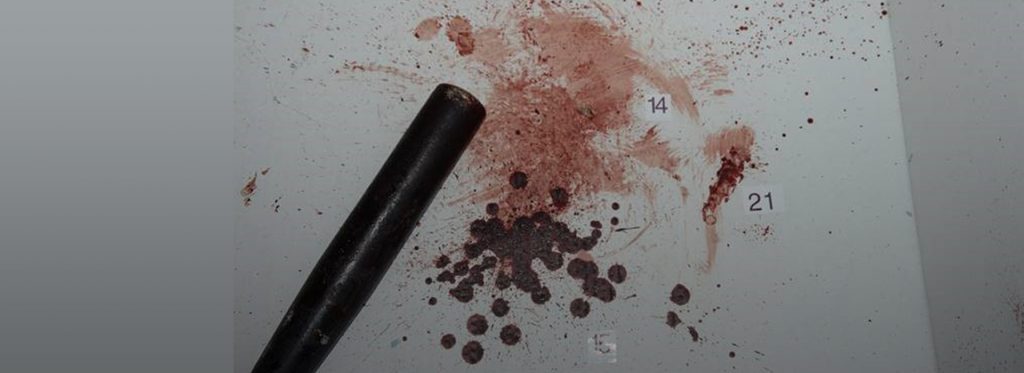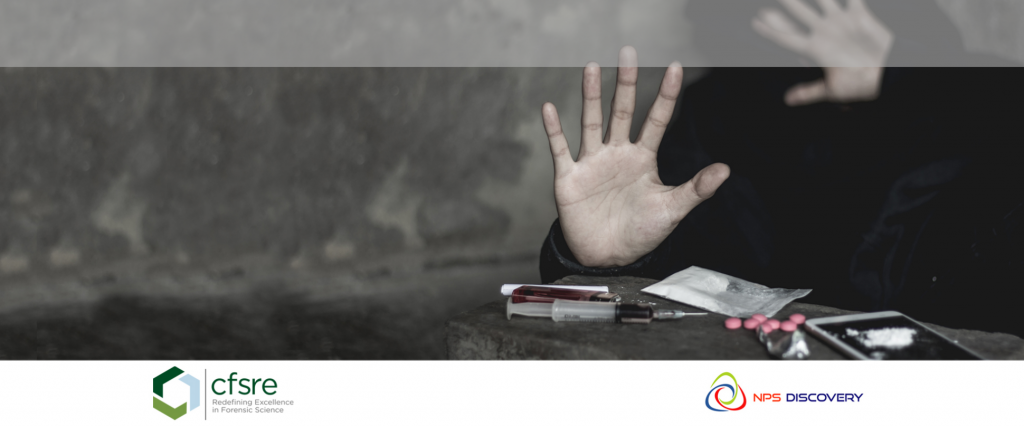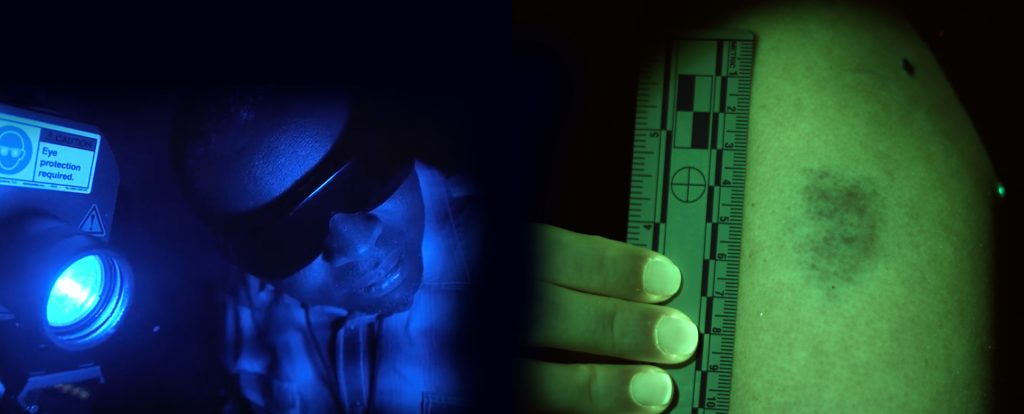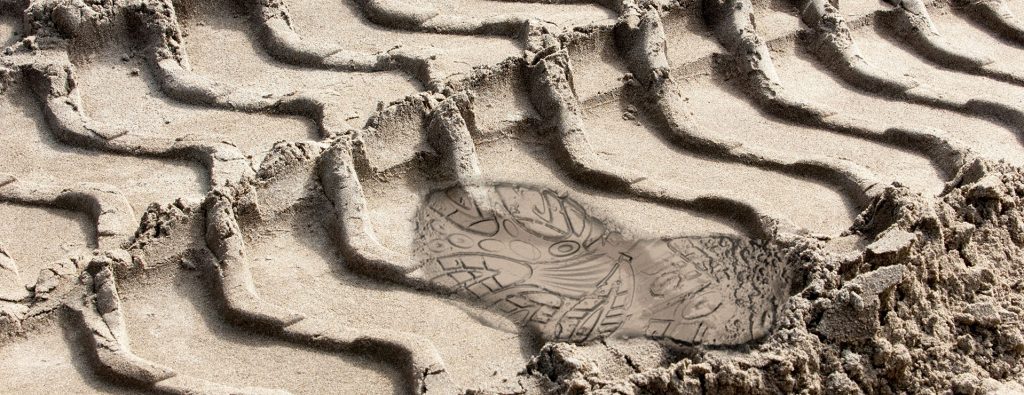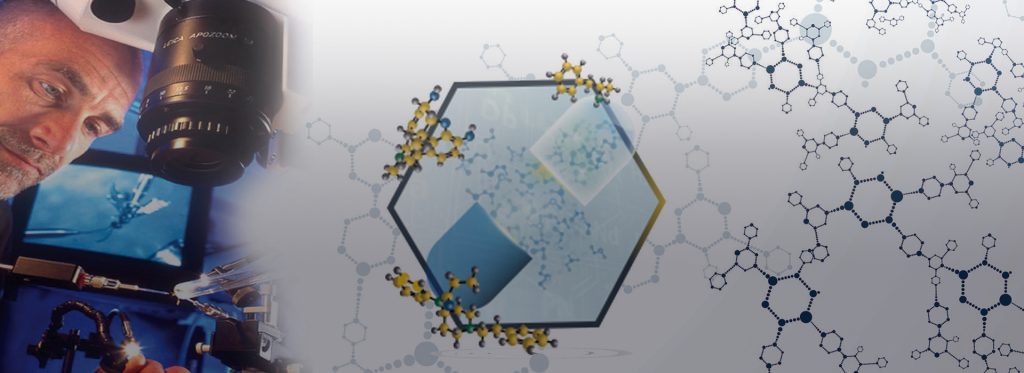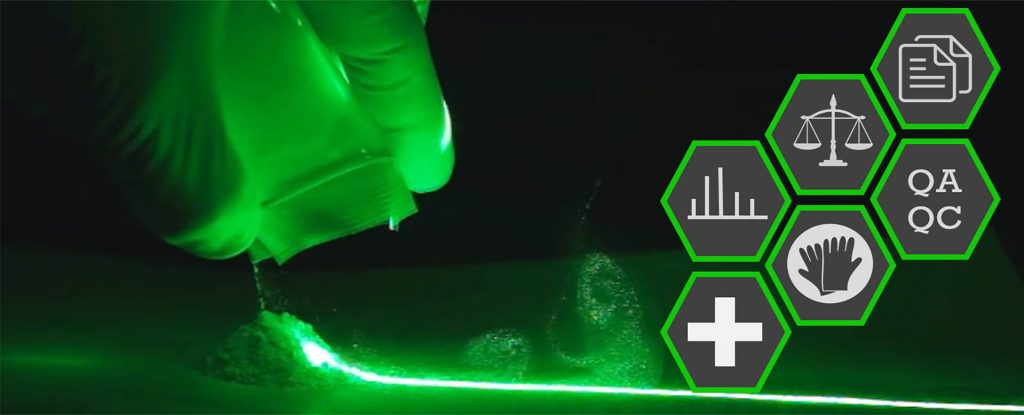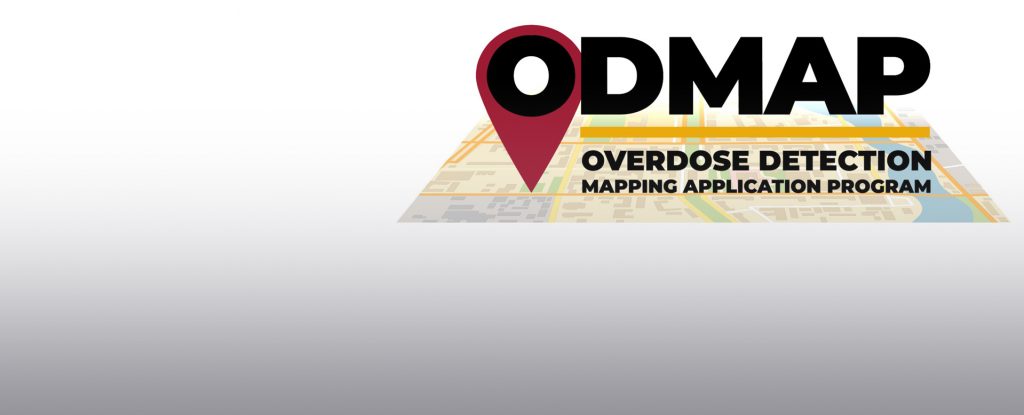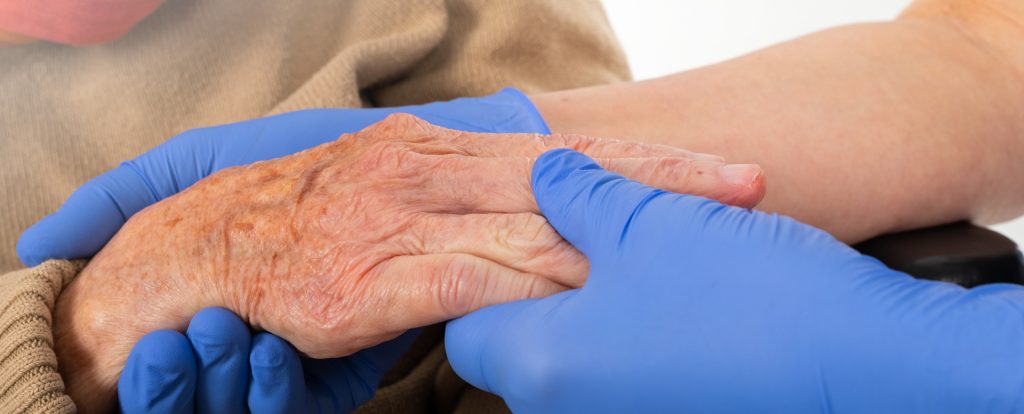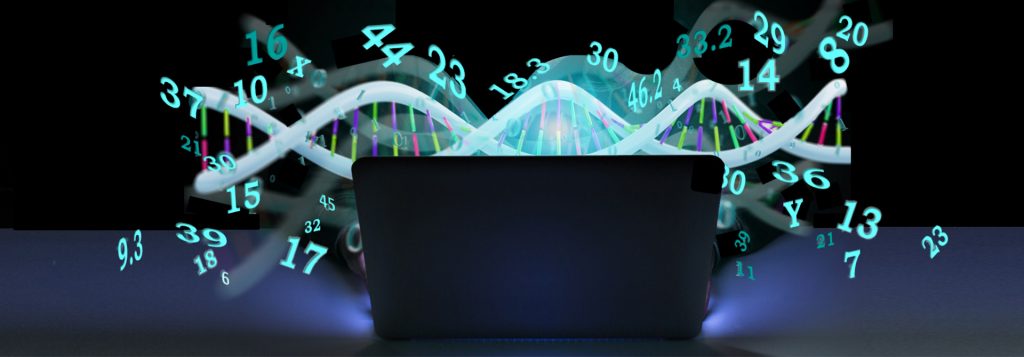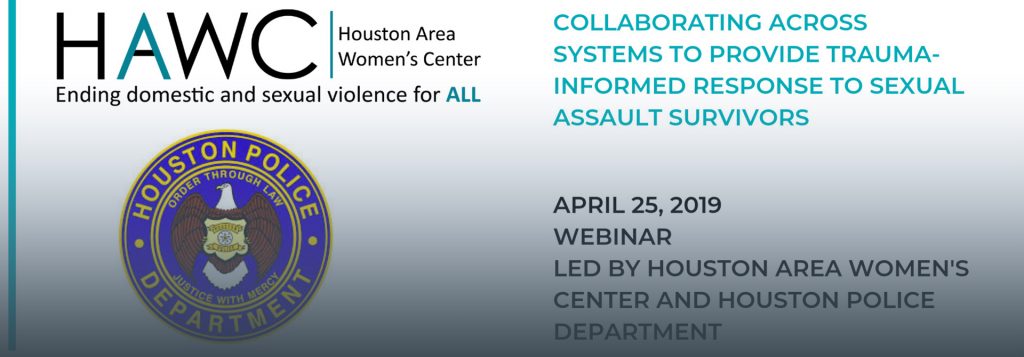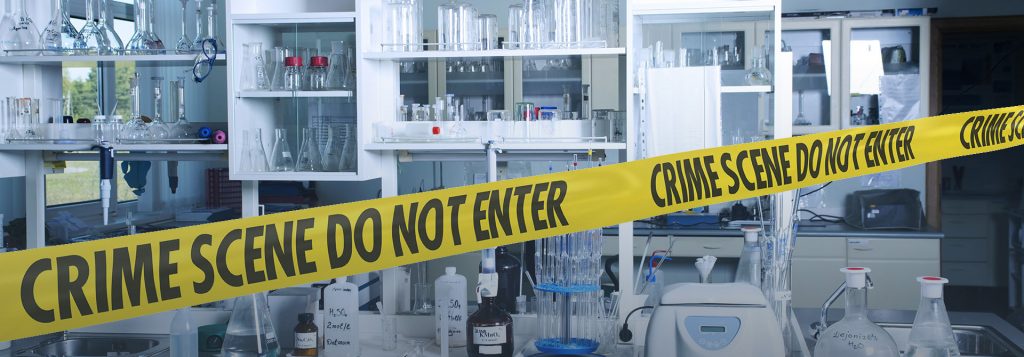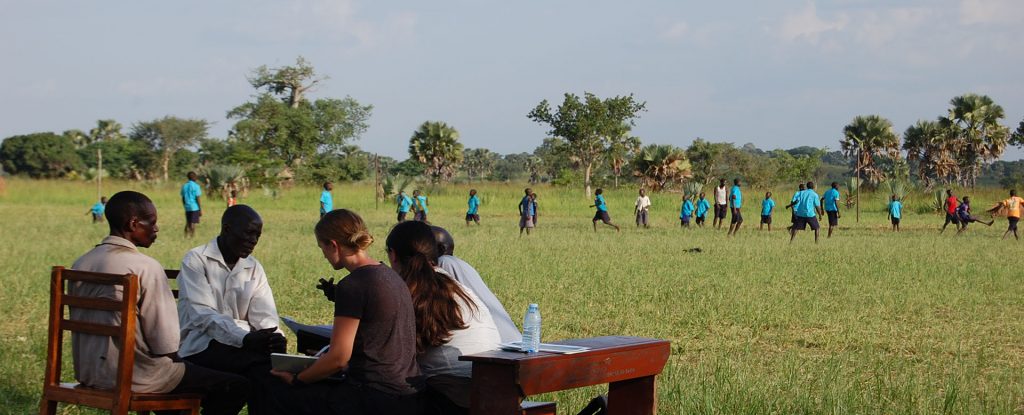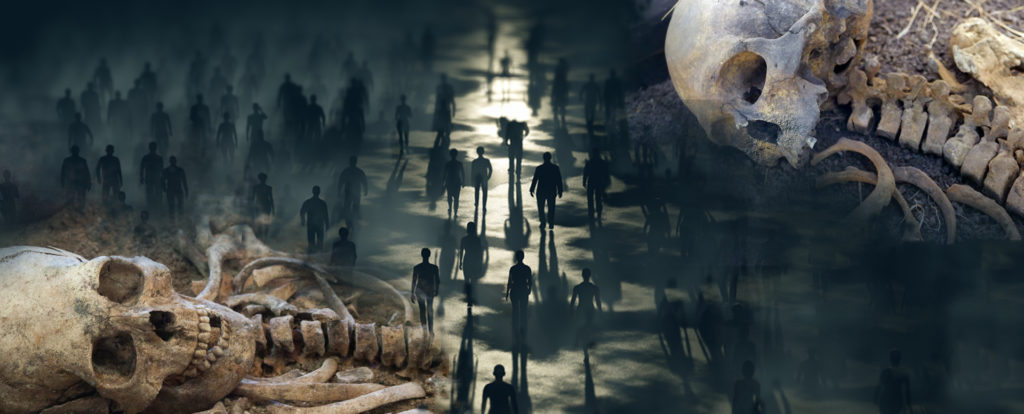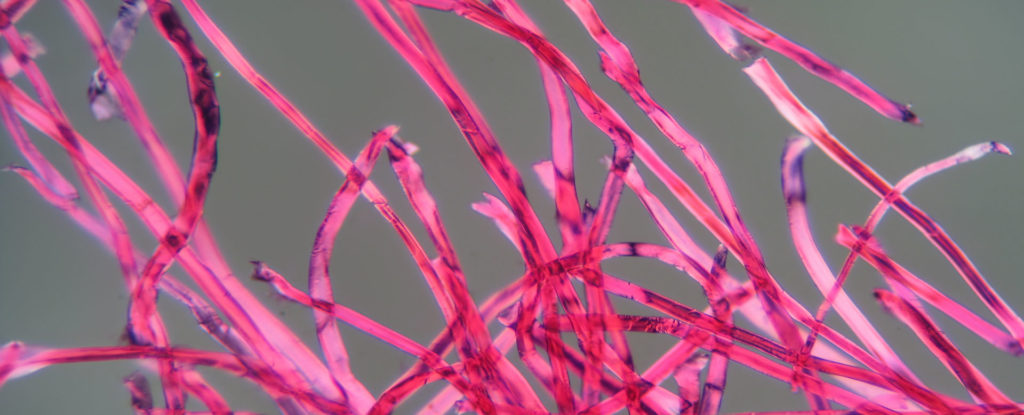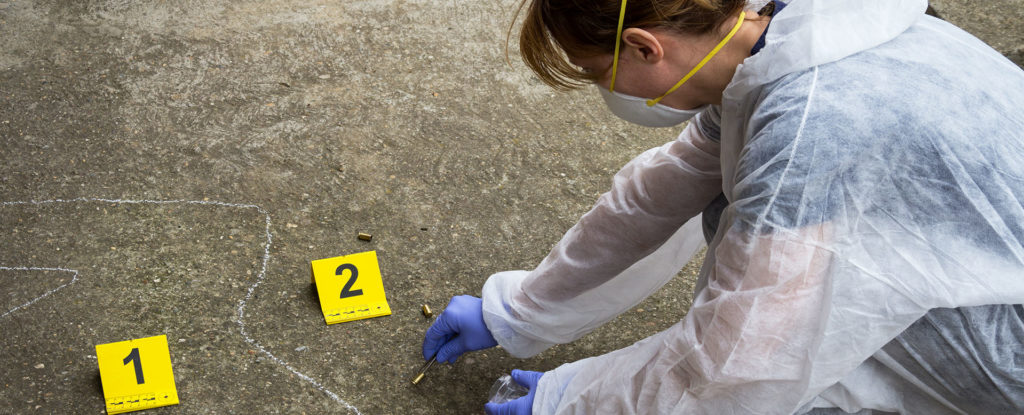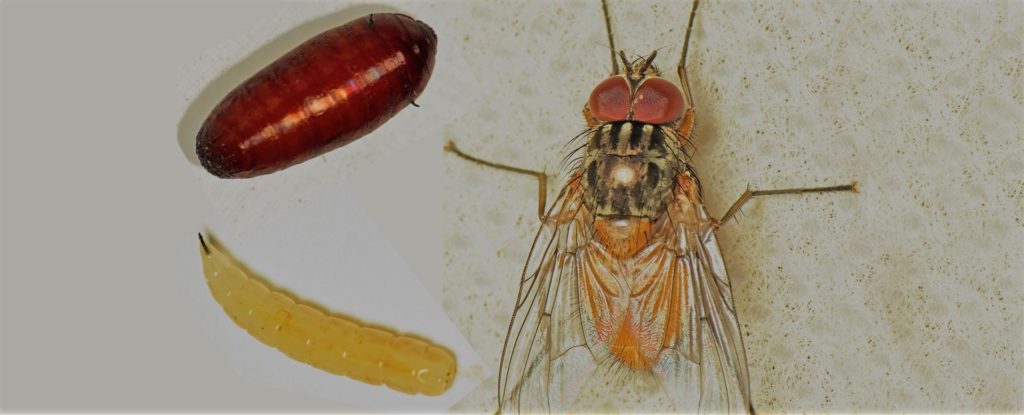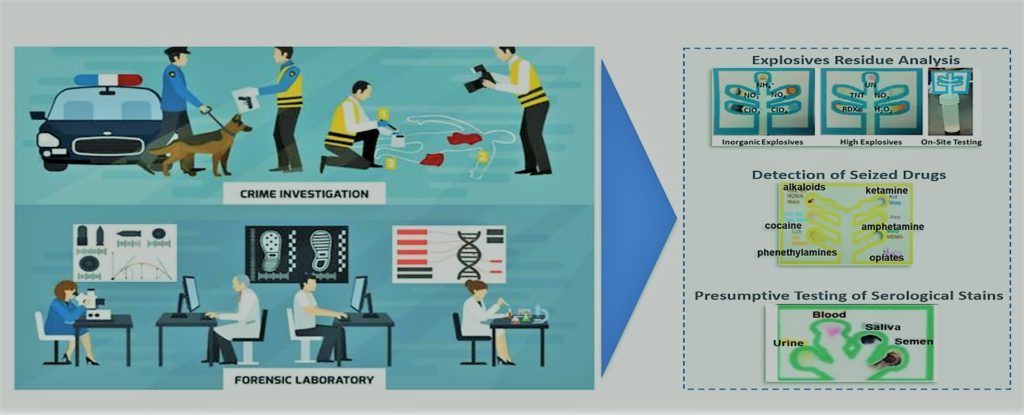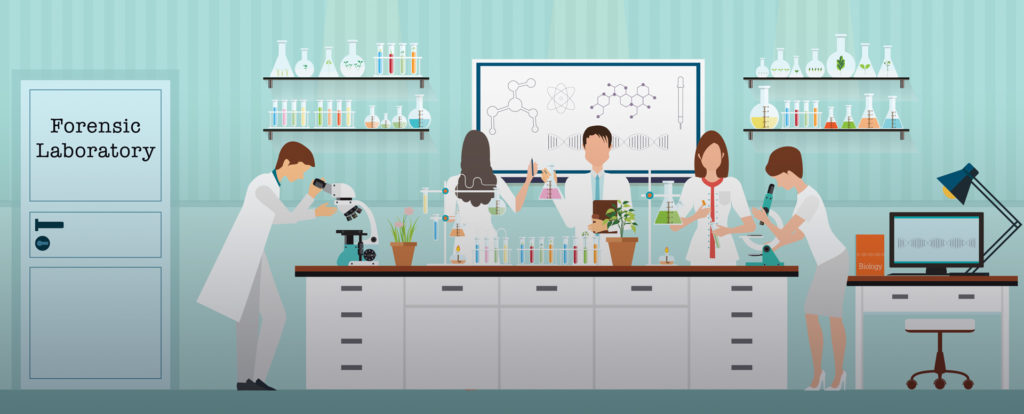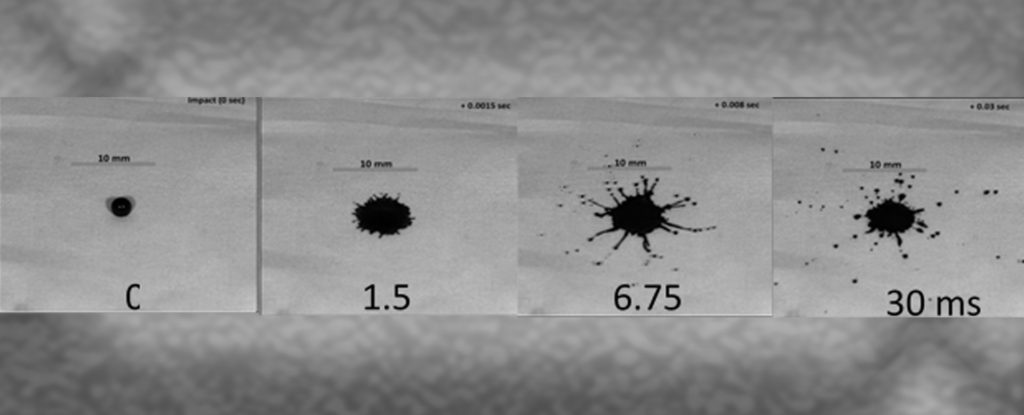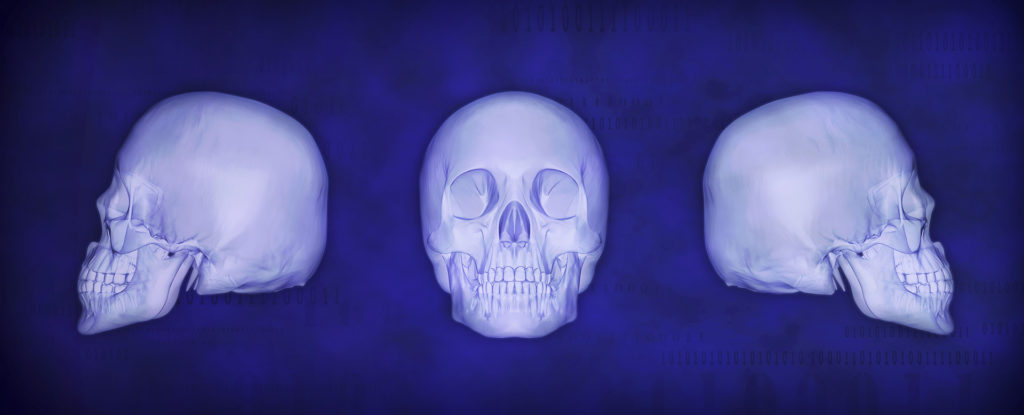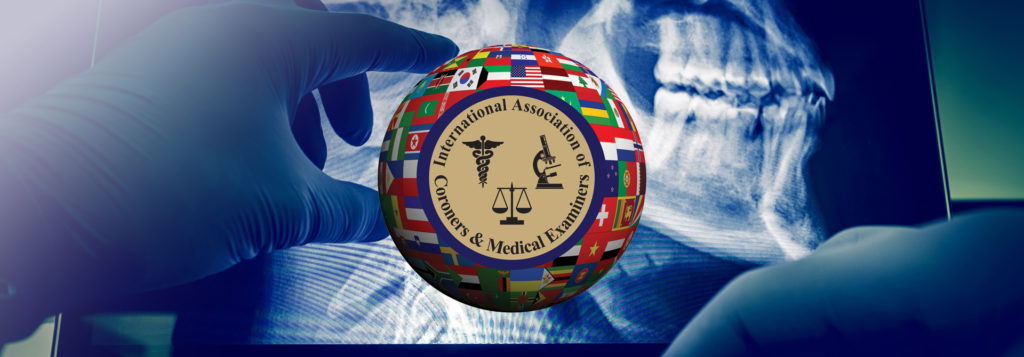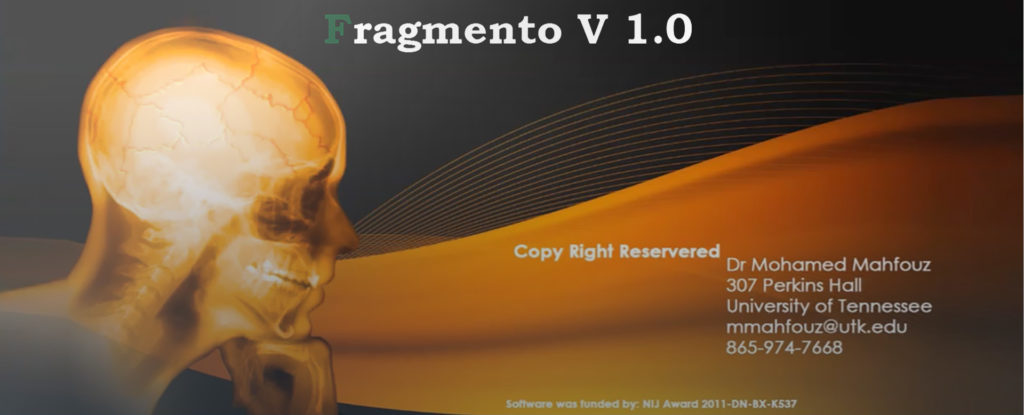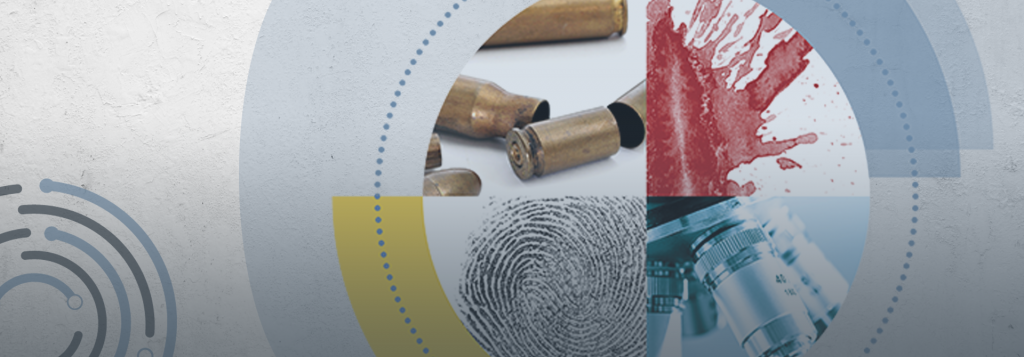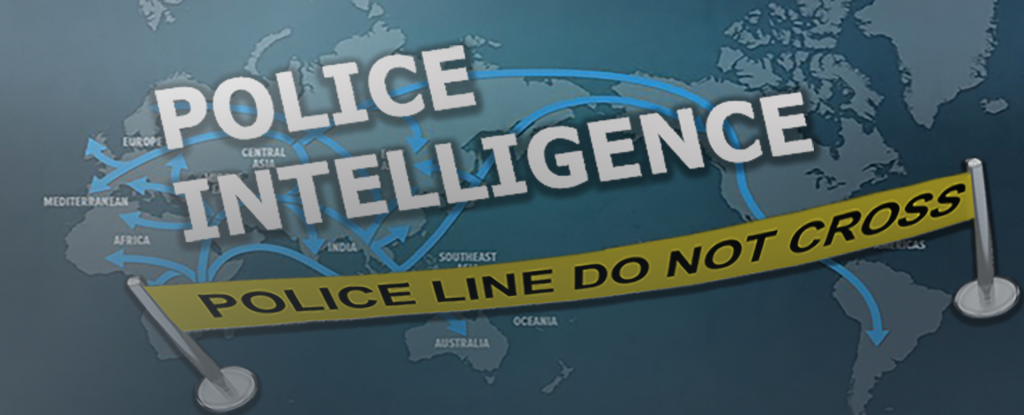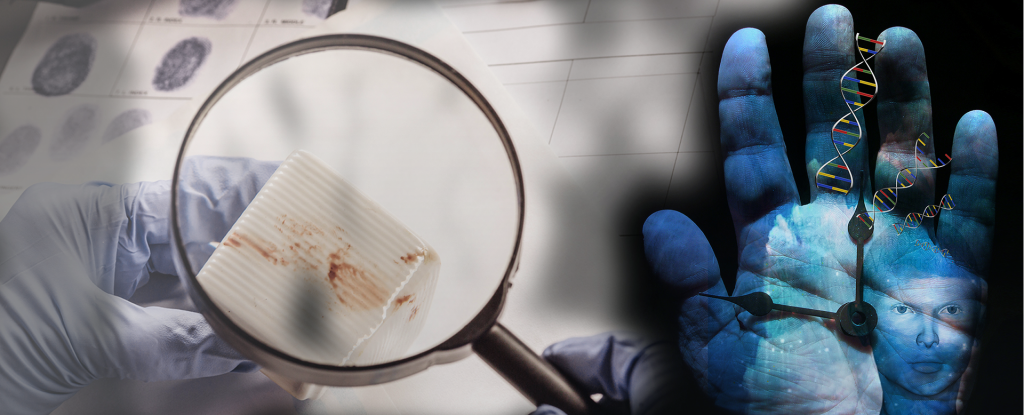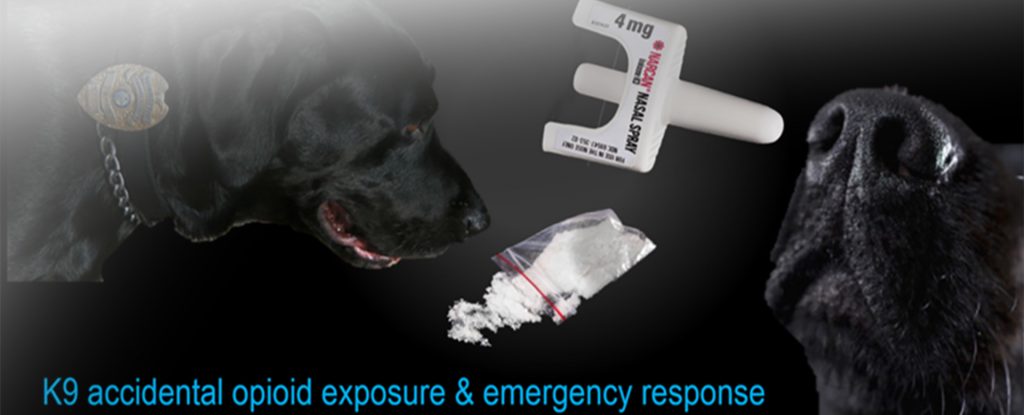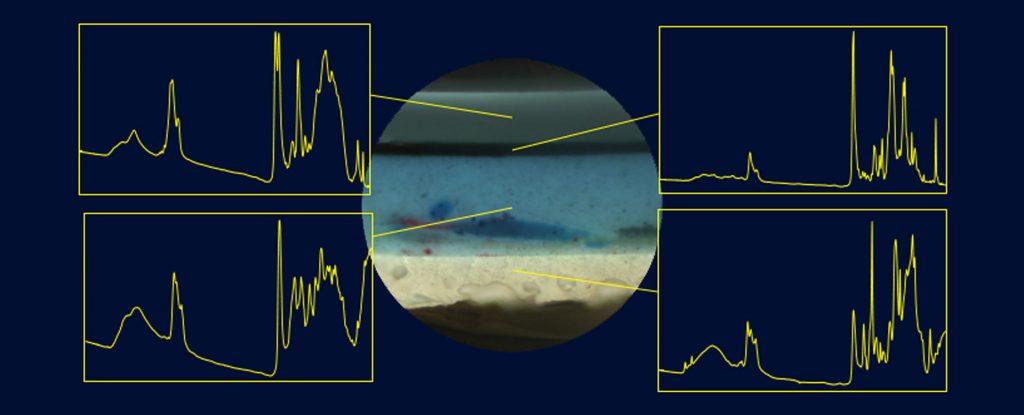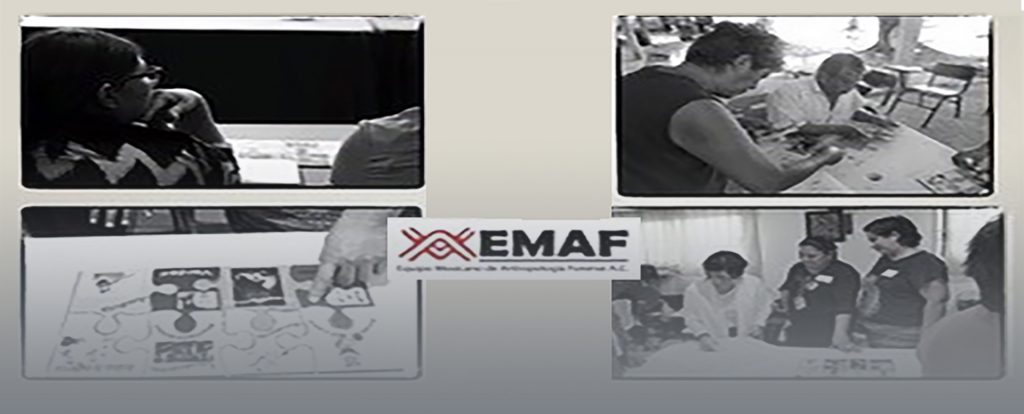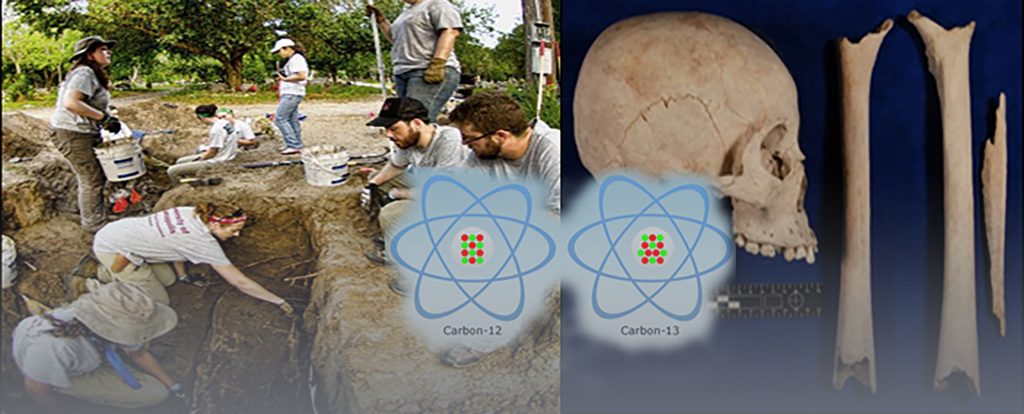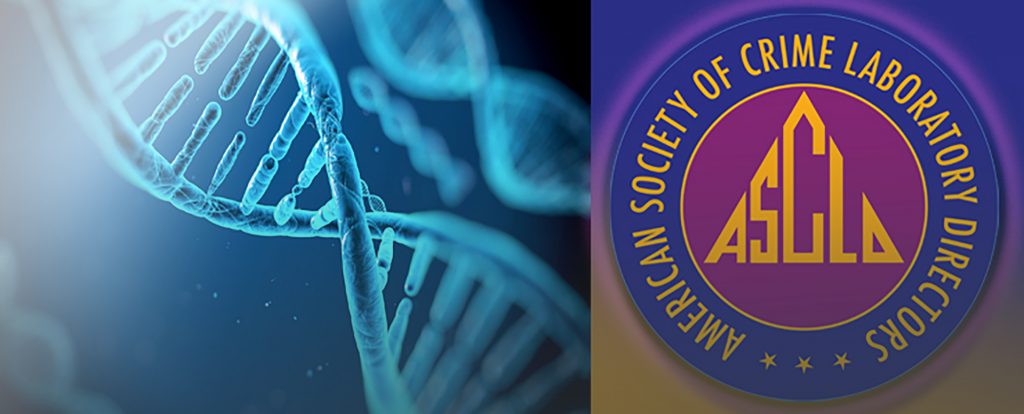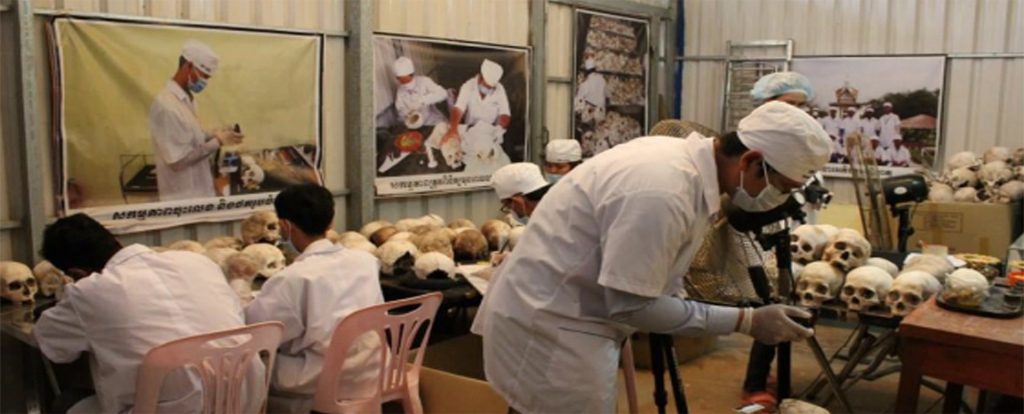All of our webinars, reports, podcast episodes, and other educational resources are available to the public at no cost.
Funding for the Forensic Technology Center of Excellence has been provided by the National Institute of Justice.
To filter, simply click on the topics below.
- All Webinars
- Anthropology (20)
- Biology & DNA (92)
- Crime Scene Investigation (50)
- Digital Evidence (6)
- Impression & Pattern (70)
- Laboratory Operations (74)
- Pathology & Medicolegal Death Investigation (85)
- Policy & Standards (54)
- Seized Drugs (30)
- Sexual Assault Response (38)
- Special Initiatives (87)
- Toxicology (50)
- Trace Evidence (40)
- Upcoming (15)
- Webinar Series (28)
MDI Myth: Next-Of-Kin Aren’t That Hard to Find
← Back to Webinar Series Page Thursday, October 17, 2024 | 1:00 PM – 2:00 PM Eastern Duration: 1 hour Overview Medicolegal Death Investigators (MDIs) serve a unique function in public service. MDIs respond to death scenes and work to…
MDI Myth: Nobody Cares About or Uses MDI Data
← Back to Webinar Series Page Thursday, November 7, 2024 | 1:00 PM – 2:00 PM Eastern Duration: 1 hour Overview The foundation of public health relies on timely, high-quality, and comprehensive death investigations. Understanding mortality trends and anomalies guides…
MDI Myth: Rapid Toxicology Screening Tools Can Replace Traditional Toxicology Testing – No Need to Confirm
← Back to Webinar Series Page Tuesday, October 8, 2024 | 1:00 PM – 2:00 PM Eastern Duration: 1 hour Overview This session will bust the myth that new toxicology screening tools can fully replace traditional toxicology testing. This session…
MDI Myth: We Don’t Need to Worry About Diversity in Medicolegal Death Investigation
← Back to Webinar Series Page Thursday, October 3, 2024 | 1:00 PM – 2:00 PM Eastern Duration: 1 hour Overview An organization with a strong Diversity, Equity, and Inclusion (DEI) based philosophy recognizes the diverse voices of the community…
MDI Myth: Talking with Decedent’s Families is Simple and Routine
← Back to Webinar Series Page Thursday, September 26, 2024 | 1:00 PM – 2:00 PM Eastern Duration: 1 hour Overview When people experience a traumatic event, they often remember how they were made to feel rather than what was…
2024 MDI MythBusters Webinar Series
Overview Following the conceptualization of the popular MythBusters television series (Discovery Channel 2003-2016), this webinar series explores evidence-based methods, operational decision making, and case study findings to prove or disprove common beliefs about medicolegal death investigation. It is widely accepted…
Assessing Stress Among MDI & Building Resilient Professionals
Tuesday, October 29, 2024 | 1:00 PM – 2:00 PM Eastern Duration: 1 hour Overview This webinar aims to address the critical issue of mental health and wellness for medicolegal death investigation (MDI) professionals, with a focus on preventing PTSD,…
The Forensic Examination and Comparison of Plastic Garbage Bags
This webinar originally occurred on August 20, 2024 Duration: 1 hour Overview Plastic bags are present in many criminal cases. They are frequently used by perpetrators of crimes for the disposal of evidence, bodies, or body parts. Even when useful…
Using Objective Criteria for Bloodstain Pattern Classification
This webinar originally occurred on August 1, 2024 Duration: 1 hour Overview The science of bloodstain pattern analysis evaluates bloodstain patterns present at a scene or on various objects, for the purpose of interpreting patterns in the context of the…
Evaluating a Statistical Method for Comparison of Mass Spectra of Novel Psychoactive Substance
← Back to Webinar Series Page This webinar originally occurred on July 25, 2024 Duration: 1 hour Overview Identification of novel psychoactive substances (NPS) based on comparisons of electron-ionization (EI) mass spectra continues to pose challenges in seized drug analysis.…
Foundational Statistics for Forensic Toxicology Webinar Series
Overview In the field of Forensic Toxicology, numerical data and statistics abound, appearing in quantitative analyses, quality control, measurement uncertainty, proficiency testing, method validation, experimental design, peer-reviewed journal articles, business analytics, and more. Foundational statistical knowledge is critical to understanding…
Quantitative Analysis Method for Tetrahydrocannabinol Isomers in Biological Matrices
← Back to Webinar Series Page This webinar originally occurred on June 25, 2024 Duration: 1 hour Overview Of recent, forensic toxicology laboratories have been grappling with the emergence of tetrahydrocannabinol isomers within biological specimens. Traditional methods for the identification…
LC-DAD with Optional ESI/MS: An Emerging Gold Standard for Hemp Compliance Testing
← Back to Webinar Series Page This webinar originally occurred on June 13, 2024 Duration: 1 hour Overview Hemp compliance testing is used to quantify total Δ9-tetrahydrocannabinol (Δ9-THC), including both Δ9-THC and its precursor, i.e., Δ9-tetrahydrocannabinolic acid (Δ9-THCA), to determine…
FITS—Functional Implementation of Thorough and Systematic Approaches for Fracture Examinations
This webinar originally occurred on June 4, 2024 Duration: 1 hour Overview The separation of materials such as tape, plastics, and textiles from their original source frequently occurs during violent activities, leaving distinct patterns along the fractured edges. These features…
2024 Cannabinoid Conundrum Webinar Series
Overview In the wake of success with the 2023 Cannabinoid Conundrum Webinar Series, the Forensic Technology Center of Excellence (FTCOE) proudly announces a collaborative partnership with cannabinoid and seized drug researchers whose projects receive support from the National Institute of…
Forensic Use of GPR and LiDAR Technology for Clandestine Grave Detection
This webinar originally occurred on April 18, 2024 Duration: 1 hour Overview George Mason University (GMU) has conducted a technology evaluation of LiDAR deployed on an Unmanned Aerial Vehicle (UAV) and ground-penetrating radar (GPR) for crime scene processing, specifically in…
A National Snapshot of Publicly Funded Crime Laboratory Operations
← Back to Webinar Series Page This webinar originally occurred on April 2, 2024 Duration: 1 hour Overview Crime labs perform a variety of forensic analyses for federal, state, and local criminal justice agencies, examining and reporting on physical evidence…
DEIA: What I learned from the AAFS Diversity Outreach Committee
← Back to Webinar Series Page This webinar originally occurred on March 28, 2024 Duration: 1 hour Overview This webinar introduces contemporary definitions and applications of diversity, equity, inclusion, and accessibility (DEIA), which differ from past interpretations. Modern applications will…
FBI Laboratory Decision Analysis Studies in Pattern Evidence Examinations
← Back to Webinar Series Page This webinar originally occurred on March 19, 2024 Duration: 1 hour Overview From 2007 through the present, the FBI Laboratory has led a series of decision analysis “black-box” studies aimed at evaluating the accuracy,…
We Did It! You can too! An Inside Perspective to Implementing Standards on the OSAC Registry
← Back to Webinar Series Page ← FTCOE ASCLD All Resources Page This webinar originally occurred on January 30, 2024Duration: 1 hour Overview There are many forensic science service providers (FSSPs) with a genuine interest in initiating standards implementation within…
2024 ASCLD Emerging Issues Webinar Series
← FTCOE ASCLD All Resources Page Overview Through a partnership with the American Society of Crime Laboratory Directors (ASCLD), the FTCOE is pleased to present another ASCLD Emerging Issues webinar series with tools you can use. Each webinar in this…
Physical Characteristics of Spatter Stains on Textiles
This webinar originally occurred on December 12, 2023Duration: 1 hour Overview Bloodstain pattern analysis (BPA) is a forensic technique for crime scene reconstruction, through analyzing bloodstains (e.g., size, shape, etc.) and their patterns (e.g., distribution, location, etc.) to recreate the…
Validation of a Confirmatory Proteomic Mass Spectrometry Body Fluid Assay
← Back to Webinar Series Page This webinar originally occurred on December 7, 2023Duration: 1 hour Overview With increasingly sensitive forensic methods for DNA detection, the source from which a DNA profile is obtained becomes increasingly important. Was an individual’s…
Improving Methods Using Machine Learning and Databases in Forensic Anthropology
← Back to Webinar Series Page This webinar originally occurred on December 5, 2023Duration: 1 hour Overview Part I: GeoFOR presented by Katherine Weisensee, Ph.D.Estimating the time since death, or the postmortem interval (PMI), poses a significant challenge to forensic…
Advances in Chemical Sorting of Commingled Remains
← Back to Webinar Series Page This webinar originally occurred on November 30, 2023 Duration: 1 hour Overview A major challenge in forensic anthropology is the development of efficient and effective methodologies for sorting skeletal remains in mixed assemblages. The…
Expert Forensic Communication: Best Practices and Common Pitfalls
← Back to Webinar Series Page Tuesday, November 28, 2023 | 1:00 PM – 2:00 PM Eastern Duration: 1 hour Overview As global events, from the pandemic to the fentanyl crisis and climate disasters, increasingly focus attention on the work…
Transient Workforce in Forensic Pathology: Challenges, Rewards, and Best Practices
← Back to Webinar Series Page This webinar originally occurred on November 16, 2023 Duration: 1 hour Overview A roadmap to successfully utilizing contract forensic pathologists, also known as locum tenens, will be presented by a Chief Medical Examiner and…
Advancing Research and Collaborative Research Partnerships in Forensic Science
← Back to Webinar Series Page ← FTCOE ASCLD All Resources Page This webinar originally occurred on November 14, 2023 Duration: 1 hour Overview With the ever-increasing volume of evidence being submitted to forensic laboratories coupled with the growing demand…
Body Fluid Identification and Classification
← Back to Webinar Series Page This webinar originally occurred on November 9, 2023 Duration: 1 hour Overview In the first installment of the R&D Webinar Series, Sarah Seashols-Williams, Ph.D., from Virginia Commonwealth University, will demonstrate the ability to classify…
Modern Death Investigation: Hub and Spoke Models for Adequate Workforce
← Back to Webinar Series Page This webinar originally occurred on November 7, 2023 Duration: 1 hour Overview This webinar describes the history, structure, and operations of the Virginia Office of the Chief Medical Examiner. The system includes four regional…
2023 NIJ Forensic Science R&D Webinar Series
Overview In this webinar series, the Forensic Technology Center of Excellence (FTCOE) proudly collaborates with forensic science researchers whose projects receive support from the National Institute of Justice (NIJ) research grant program. Presenters will highlight advancements in the forensic community…
National Center on Forensics Community-Focused Webinar Series
Overview In this webinar series, the National Center on Forensics (NCF) and FTCOE collaborate to deliver educational sessions based on specific needs identified by NCF research with community members. The NCF, funded by the National Institute of Justice, works specifically…
Molecular Autopsy Implementation Expert Panel
Overview The New York City Office of Chief Medical Examiner (NYC OCME) and the Forensic Technology Center of Excellence (FTCOE) delivered a virtual expert panel discussion focusing on the implementation of molecular autopsies. Dr. Yingying Tang, Director of the NYC…
Cannabinoid Conundrums Webinar Series Expert Panel
← Back to Webinar Series Page Thursday, August 3, 2023 | 1:00 PM – 3:00 PM EasternDuration: 2 hours Overview In the final installment of this webinar series, it is time to tackle the cannabinoid conundrums. Both public perception of…
Cannabinoid Pharmacology: Three Decades of Controlled Human Cannabinoid Administration Studies
← Back to Webinar Series Page This webinar originally occurred on August 1, 2023 Duration: 1 hour Overview Important research findings of three decades of controlled human cannabinoid administration studies conducted at the National Institute on Drug Abuse (NIDA), National…
Vaping in the Weeds: The Merging of the E-cigarette and Cannabis Industries
← Back to Webinar Series Page This webinar originally occurred on June 29, 2023 Duration: 1 hour Overview The modern e-cigarette was developed for the vaping of nicotine. The nicotine e-cigarette device and associated e-liquids were federally unregulated until 2016.…
Development of Analytical Methods for Measuring Δ9-THC in Cannabis Products
← Back to Webinar Series Page This webinar originally occurred on Tuesday, June 27, 2023Duration: 1 hour Overview With the passage of the 2018 Agricultural Improvement Act (Farm Bill), forensic laboratories have been tasked with differentiating seized cannabis samples as…
All Is Not Pot That’s Green: An Overview of THC Isomers
← Back to Webinar Series Page This webinar originally occurred on June 15, 2023Duration: 1 hour Overview THC isomers, also known as THC analogs or semi-synthetic cannabinoids, are a group of compounds structurally related to Δ9-tetrahydrocannabinol (Δ9-THC) that are often…
Labeling with Love or Lethal Consequences for CBD Containing Products
← Back to Webinar Series Page Thursday, May 18, 2023 | 1:00 PM – 2:00 PM EasternDuration: 1 hour Overview In this presentation, Dr. Lawrance Mullen will provide a landscape of the public health impact of cannabidiol (CBD), the importance…
Low Prosecution Rates in Sexual Assault Cases: Can We Make Sustainable Improvements?
← Back to Webinar Series Page Tuesday, April 25, 2023 | 1:00 PM – 2:00 PM EasternDuration: 1 hour Overview This webinar begins with contextual information about prosecution case outcomes in sexual assault cases of adult victims. The challenges in…
Research Clues to Appreciating a New Era of Cannabinoid Conundrums Webinar Series
Overview Use and abuse of various cannabinoids has seen significant growth over the past several years due to the Agricultural Improvement Act of 2018, also known as the Farm Bill. Proliferation of new cannabinoid products derived from cannabidiol has resulted…
Touch DNA Evidence Collection in Sexual Assault Cases: Knowledge to Inform Practice
← Back to Webinar Series Page This webinar originally occurred on April 18, 2023Duration: 1 hour Overview Touch DNA was a revolutionary concept when introduced in 1997. The application of touch DNA in sexual assault cases was tested in 2011…
Solving Violent Crime Through Lawfully “Owed” DNA: Outcomes of Efforts to Address Missed DNA Samples
← Back to Webinar Series Page This webinar originally occurred on April 11, 2023Duration: 1 hour Overview Lawfully owed DNA procedures have an immeasurable impact on the criminal justice system. Procedures do not fall on just one discipline in the…
Exploring the Link Between Dating Apps and Sexual Assault: Novel Research Findings
← Back to Webinar Series Page This webinar originally occurred on April 4, 2023Duration: 1 hour Overview Dr. Julie L. Valentine will share background information on dating app usage and user demographics to provide context for research findings on dating…
Stress, Trauma, and Burnout in Forensic Scientists
← Back to Webinar Series Page This webinar originally occurred on March 28, 2023Duration: 1 hour Overview The world of forensic science and death investigation is always unpredictable and demanding. Large caseloads, hazardous materials, traumatic evidence, and other complexities related…
Bridging Generational Gaps in the Laboratory
← Back to Webinar Series Page This webinar originally occurred on March 21, 2023 Duration: 1 hour Overview This webinar will address a common cross-cultural issue experienced every day in the crime laboratory and within the greater criminal justice community,…
How to Recruit and Retain Quality Employees
← Back to Webinar Series Page This webinar originally occurred on March 14, 2023 Duration: 1 hour Overview One of the biggest challenges that forensic laboratories face is hiring and retaining great employees. The loss of one person has a…
2023 Sexual Assault Awareness Month Webinar Series: Novel Research on Sexual Assault
Overview This April, in honor of Sexual Assault Awareness Month, the Forensic Technology Center of Excellence will be releasing a series of webinars covering topics related to novel research on various sexual assault topics. Tune in as our presenters discuss…
2023 ASCLD Emerging Issues Webinar Series
Overview Through a partnership with the American Society of Crime Laboratory Directors (ASCLD), the FTCOE is pleased to present the three-part webinar series titled, ASCLD Emerging Issues. Our subject matter experts will cover a variety of challenges that forensic laboratories…
Dental Morphology: The Informative but Lesser-Known Traits
← Back to Webinar Series Page This webinar originally occurred on February 8, 2023 Duration: 1.5 hours Overview Estimation of population affinity is a core component of the forensic anthropological biological profile. Most forensic anthropologists rely on craniometric1 and cranial…
Going All In – Laboratories With Completely Digital Systems
← Back to Webinar Series Page This webinar originally occurred on February 2, 2023 Duration: 1 hour Overview Change can be intimidating and making a transition to a paperless system can be daunting task. This presentation will discuss two perspectives…
Triaging Cases – Case Management and All That Means
← Back to Webinar Series Page This webinar originally occurred on January 31, 2023 Duration: 1 hour Overview This webinar will present laboratory managers with a discussion on case management in forensic science laboratories. All forensic science laboratories struggle with…
Maintaining a Positive Quality Culture During Change
← Back to Webinar Series Page This webinar originally occurred on January 24, 2023 Duration: 1 hour Overview This webinar will share insight into why it is important to have a positive quality culture within a laboratory. Attendees will see…
The Increased Value of Forensic Science to Lead Gun Crime Investigations
← Back to Webinar Series Page ← FTCOE ASCLD All Resources Page Part I originally occurred on January 16, 2024Duration: 1 hour Part II originally occurred on January 23, 2024Duration: 1 hour Overview The United States has seen the number…
The State of Standard Development & Tools for Assessing and Implementing Standards
← Back to Webinar Series Page This webinar originally occurred on January 17, 2023 Duration: 1.5 hours Overview This webinar will introduce attendees to the Organization of Scientific Area Committees for Forensic Science (OSAC) Registry of Standards, the International Organization…
Age Estimation from the Pubic Symphysis: Back to Basics
← Back to Webinar Series Page This webinar originally occurred on January 11, 2023 Duration: 1.5 hours Overview Estimating age at death is a critical step in the creation of the biological profile of unidentified remains. While anthropologists use a…
ASCLD Train the Director Webinar Series
Related Resource FTCOE ASCLD All Resources Funding for this Forensic Technology Center of Excellence webinar has been provided by the National Institute of Justice, Office of Justice Programs, U.S. Department of Justice. The opinions, findings, and conclusions or recommendations expressed in…
Digital Caseload Processing with the NIST National Software Reference Library
This webinar originally occurred on December 13, 2022 Duration: 1 hour Overview The National Software Reference Library (NSRL) is supported by federal, state, and local law enforcement as well as the National Institute of Standards and Technology (NIST) to promote…
Transition Analysis 3 Age-at-Death Estimation: Past, Present, and Future
← Back to Webinar Series Page This webinar originally occurred on December 7, 2022Duration: 1.5 hours Overview Whether the goal is to estimate the age of a single individual or those in a larger skeletal assemblage, accurate and precise estimates…
Audio Forensic Analysis Procedures for User Generated Audio Recordings
This webinar originally occurred on November 29, 2022 Duration: 1 hour Overview The widespread use of handheld smartphones and other devices capable of recording audio and video means that user generated recordings (UGRs) are increasingly presented as evidence in criminal…
Forensic Fractography of Bone: A New Model for Skeletal Trauma Analysis
← Back to Webinar Series Page This webinar originally occurred on November 2, 2022 Duration: 1.5 hours Overview Fractography is a tool for studying material failure. Analysis of cracks and fractures can reveal information about how, why, and where a…
Skeletal Sex Estimation and Practitioner Use of MorphoPASSE
← Back to Webinar Series Page This webinar originally occurred on October 5, 2022 Duration: 1.5 hours Overview Skeletal sex estimation is one of the most important aspects of the biological profile as it narrows the population essentially by half…
Society of Forensic Anthropologists Webinar Series
Overview The Society of Forensic Anthropologists (SOFA) is a non-profit organization comprised of active American Academy of Forensic Science members who are forensic anthropology practitioners. SOFA promotes communication and cooperation among forensic anthropologists and is committed to professional growth and…
Developing Critical Thinking Skills via Table-Top Exercises
← Back to Risk Management for Forensic Laboratories Webinar Series This webinar originally occurred on August 23, 2022 Duration: 1 hour Overview Good decision-making in times of crisis and high stress can be the difference between success and failure. It’s…
Hair Root Staining – What Can Hematoxylin Do for Your Laboratory?
This webinar originally occurred on August 16, 2022 Duration: 1 hour Overview Hair evidence collected as part of a forensic investigation has the potential to provide valuable source information through DNA analysis of its root. In the years prior to…
Interlaboratory Comparison of SpermX and Conventional Differential Extractions
This webinar originally occurred on August 11, 2022 Duration: 1 hour Overview Scientists from three participating laboratories – University of Central Florida (UCF), Center for Forensic Science Research and Education (CFSRE), and InnoGenomics (IGT) – presented results obtained from mock…
Risk Management for Forensic Laboratories Webinar Series
Overview This webinar series explores the benefits of using risk-based thinking and risk management principles to assist in managing forensic laboratories. By employing a risk-based approach, laboratory managers better understand their decisions’ effects and impact on laboratory activities. From evaluating…
What Keeps You Awake at Night: Risk, Leading Change, and Challenging Decisions
← Back to Risk Management for Forensic Laboratories Webinar Series This webinar originally occurred on July 26, 2022 Duration: 1 hour Overview In a recent conversation, the Colonel of the Missouri State Highway Patrol (MSHP) asked the presenter, the Director…
Using Risk Management to Optimize Forensic Laboratory Operations
← Back to Risk Management for Forensic Laboratories Webinar Series This webinar originally occurred on June 30, 2022Duration: 1 hour Overview The use of risk management has been historically absent from the management of forensic science laboratories. While ISO 31000…
Human Factors in Forensic Science Practice
This webinar originally occurred on June 21, 2022Duration: 1 hour Overview Human factors may encompass any way in which people’s psychological or physiological attributes affect a system or process. Physiological considerations include things like the ergonomics of laboratory workstations or…
Narcotic Concealment Methods in U.S. Customs and Border Protection and the Emergence of Counterfeit Tablets Containing Fentanyl in the United States
← Back to Unseen Threats Webinar Series This webinar originally occurred on May 26, 2022Duration: 1 hour Overview With nearly 6,000 miles of border to patrol and screening passengers and cargo at over 130 airports, seaports, and land border crossings,…
Electronic Cigarettes: A Tangle of Regulation, Public Health, and Public Safety Issues
← Back to Unseen Threats Webinar Series This webinar originally occurred on May 24, 2022 Duration: 1 hour Overview While modern electronic cigarettes (ECIG) were invented as an effective alternate method for nicotine delivery, the unregulated cannabis industry and recreational…
Things Are Not What They Seem: A Collection of Interesting Case Studies from the Medical Examiner Scene Queens
← Back to Unseen Threats Webinar Series This webinar originally occurred on May 19, 2022Duration: 1 hour Overview With the rise of illicit fentanyl, fentanyl analogues, synthetic cathinones, xylazine, and other substances adulterating many traditional street drugs, users often have…
Drug Use Impact on Native People in Minnesota
This webinar originally occurred on May 10, 2022 Duration: 1 hour Overview This presentation will review substance use disorder treatment admissions and impacts on Native people residing in Minnesota. Special attention will be paid to the geographic areas of the…
Terrestrial LiDAR Scanners: Guidelines for Use in Criminal Justice Applications
This webinar originally occurred on May 3, 2022Duration: 1 hour Overview Terrestrial LiDAR scanning devices (also known as terrestrial laser scanning devices, TLS) acquire complex geometric data that capture a three-dimensional representation of a scene. This technology can be used…
Trauma-Informed Investigations for Sexual Assault Cases
← Back to 2022 Sexual Assault Awareness Month Webinar Series This webinar originally occurred on April 26, 2022 Duration: 1 hour Overview This webinar will highlight the importance of conducting a trauma-informed interview of a victim of sexual assault. Trauma-informed…
Unseen Threats: A Webinar Series from the AAFS Opioids and Emerging Drugs Ad-Hoc Committee
Overview This webinar series is based on the one-day workshop (“Unseen Threats”) that was sponsored by the Opioids and Emerging Drugs Ad-Hoc Committee at the 2022 American Academy of Forensic Sciences (AAFS) Annual Meeting. To follow up on this workshop,…
Strangulation in Sexual Assault Cases: Considerations for Evidence Collection and Supporting Healing
← Back to 2022 Sexual Assault Awareness Month Webinar Series This webinar originally occurred on April 14, 2022Duration: 1 hour Overview In addition to providing medical care and support to victims of sexual assault, Sexual Assault Nurse Examiners (SANEs) collect…
Pandemic Impacts in the Workplace: Employee Wellness, Returning to the Office, & Remote Testimony
← Back to ASCLD Train the Director Series This webinar originally occurred on April 12, 2022Duration: 1 hour Overview Employers have endured many operational changes due to the pandemic. During the pandemic, employers have faced numerous challenges, such as how…
Sexual Assault Kit Evidence Tracking: The Idaho State Police Forensic Services Experience
← Back to 2022 Sexual Assault Awareness Month Webinar Series This webinar originally occurred on April 7, 2022Duration: 1 hour Overview The Idaho State Police Forensic Services agency has designed a sexual assault kit evidence tracking system to effectively track…
Legalization of Marijuana: The Journey of Marijuana Laws in Colorado and Ohio
← Back to ASCLD Train the Director Series This webinar originally occurred on April 5, 2022Duration: 1 hour Overview The decriminalization of hemp and legalization of marijuana is not a new topic across the United States. With 37 states allowing…
Application of the OSAC Registry of Standards to Forensic Science Service Providers’ Quality Systems
← Back to ASCLD Train the Director Series This webinar originally occurred on March 31, 2022Duration: 1 hour Overview Since its official inception in 2014, the National Institute of Standards and Technology (NIST) Organization of Scientific Area Committees (OSAC) for…
BJA Forensic Grants 101 – Award Management
← Back to ASCLD Train the Director Series This webinar originally occurred on March 24, 2022Duration: 1 hour Overview The Bureau of Justice Assistance (BJA) is part of the U.S. Department of Justice’s (DOJ) Office of Justice Programs (OJP) and…
BJA Forensic Grants 101 – Grant Application and Award Acceptance
← Back to ASCLD Train the Director Series This event originally occurred on March 17, 2022.Duration: 1 hour Overview The Bureau of Justice Assistance (BJA) is part of the U.S. Department of Justice’s (DOJ) Office of Justice Programs (OJP) and…
BJA Forensic Grants 101 – Forensic Grant Opportunities
← Back to ASCLD Train the Director Series This webinar originally occurred on March 10, 2022 Duration: 1 hour Overview The Bureau of Justice Assistance (BJA) is part of the U.S. Department of Justice’s (DOJ) Office of Justice Programs (OJP)…
2022 Sexual Assault Awareness Month Webinar Series: Exploring Current Trends in Sexual Assault Response
Overview This April, in honor of Sexual Assault Awareness Month, the Forensic Technology Center of Excellence will be releasing a series of webinars covering topics related to sexual assault response reform. Tune in as our presenters discuss sexual assault kit…
Forensic Analysis of Cosmetics
This webinar originally occurred on February 17, 2022. Duration: 1 hour Overview What is in a cosmetic? Cosmetics are a huge part of many people’s daily routine, but the science behind these quick fixes is still somewhat of a mystery…
U.S. National Footwear Database System Feasibility Study
This webinar originally occurred on February 15, 2022. Duration: 1 hour Overview Shoeprints at crime scenes, along with suspects’ footwear, are routinely collected and analyzed by qualified examiners in crime laboratories and forensic units to identify, include, or exclude suspects’…
A Unique Approach to a Crime Gun Intelligence Center with the Inclusion and Support of 3D Virtual Comparison Technologies
This webinar originally occurred on February 10, 2022. Duration: 1.5 hours Overview Any effective Crime Gun Intelligence Program relies on the expeditious processing of firearms-related evidence to achieve the goal of intelligence led firearms-based investigations. The possible intelligence gained through…
The Effect of Time on Rusted Firearm Identification
← Back to Firearm and Toolmarks Webinar Series This webinar originally occurred on January 6, 2022 Duration: 1 hour Overview Since the development of early firearms in the mid-1200s, the best material for making critical parts for weapons has been…
Two-Pronged Study of Bullets Fired by Consecutively Rifled Barrels
← Back to Firearm and Toolmarks Webinar Series This webinar originally occurred on December 16, 2021 Duration: 1 hour Overview The 2016 President’s Council of Advisors on Science and Technology (PCAST) Report brought forensics, and specifically firearms identification, into the…
Glock Pistol Toolmarks: A Literature Review and Introduction of Undocumented Toolmarks
← Back to Firearm and Toolmarks Webinar Series This webinar originally occurred on December 14, 2021 Duration: 1 hour Overview Glock pistols are well known for their generally distinctive class characteristics and the numerous toolmarks that they create on fired…
Exploration of Breech Face Subclass Characteristics
← Back to Firearm and Toolmarks Webinar Series This webinar originally occurred on December 9, 2021 Duration: 1 hour Overview Subclass characteristics are caused by damage, defects, and/or wear on a cutting tool that transfers to a small group of consecutively…
Firearm and Toolmarks Webinar Series
Overview With the implementation of new technologies like 3D virtual microscopy, updates to the language used in testimony and reporting, and new research including black box studies, it is a pivotal time for the forensic pattern disciplines, especially firearm and…
Molecular Identification of Insects Relevant to Medicolegal Casework
This webinar originally occurred on December 2, 2021 Duration: 1 hour Overview Accurate insect identification is critical to their use in estimation of time of colonization (TOC) and post-mortem interval (PMI) during medicolegal death investigations. Insect specimens are currently identified…
Harnessing Data to Implement Real-Time Data-Driven Overdose Response Strategies
← Back to MDI Webinar Series This webinar originally occurred on December 7, 2021 Duration: 1 hour Overview In response to the lack of real-time reporting of both non-fatal and fatal overdoses across the United States, the Washington/Baltimore High Intensity…
Death Certification by the Medical Examiner/Coroner in Drug-Related Deaths
← Back to MDI Webinar Series This webinar originally occurred on November 30, 2021 Duration: 1 hour Overview Considering the steadily rising number of overdose deaths in recent years, public health systems rely on the vital role of medicolegal death…
Data Systems Imperative in 21st Century Forensic Services
← Back to MDI Webinar Series This webinar originally occurred on November 16, 2021 Duration: 1 hour Overview Forensic science and service providers are, almost universally, experiencing a two-fold challenge to achieve effective results: diminishing resources and increasing demands for…
MDI Considerations for Prescription Drug Monitoring Programs
← Back to MDI Webinar Series This webinar originally occurred on November 4, 2021 Duration: 1 hour Overview Medical examiners and coroners use a variety of data sources to complete a medicolegal death investigation (MDI) and make determinations on a…
The Importance of Data to the MDI Community and Stakeholders
← Back to MDI Webinar Series This webinar originally occurred on November 2, 2021 Duration: 1 hour Overview Many stakeholders rely on medicolegal death investigation (MDI) data to support efforts that help save lives and promote justice. These stakeholders include…
Medicolegal Death Investigation (MDI) Webinar Series
Overview The medicolegal death investigation (MDI) system, which includes Medical Examiner and Coroner offices, serves a fundamental role for supporting public safety by conducting death scene investigations, performing forensic autopsies, providing cause and manner of death determinations, and completing death…
Sam Quinones | International Award-Winning Author – The Least of Us: True Tales of America and Hope in the Time of Fentanyl and Meth
This webinar originally occurred on October 28, 2021 Duration: 1 hour Overview Sam Quinones is a Los Angeles-based freelance journalist and an international award-winning author of four books of narrative nonfiction. Quinones’ latest book, The Least of Us: True Tales…
DART-MS Data Interpretation Tool and Other Resources for Seized Drug Analysis
This webinar originally occurred on October 21st, 2021 Duration: 1 hour Overview Over the past several years, emerging drugs and novel psychoactive substances have increased the challenge of seized drug analysis. Many laboratories have turned to new technology to improve…
Mapping Technologies for Crime Scenes
This webinar originally occurred on October 14, 2021 Duration: 1 hour Overview Traditionally, crime scene processing has involved manual measurements to construct diagrammatic representations of crime scenes. This is labor and time-intensive and does not necessarily yield a complete representation…
Overdose Fatality Investigation Techniques: Lessons Learned from Project ECHO
This webinar originally occurred on October 7, 2021 Duration: 1 hour Overview State and territorial public health agencies rely on timely and accurate overdose mortality data to drive effective prevention initiatives. As the number of overdose deaths in the United…
Introduction to the Forensic Anthropology Database for Assessing Methods Accuracy
This webinar originally occurred on August 31, 2021 Duration: 1 hour Overview Data availability is the cornerstone of progression of any scientific inquiry. For forensic anthropologists, the data sources are limited, as they must be contextually appropriate (temporal, geographical, etc.)…
Footwear Evidence Conclusions: A Discussion of Standards, Recommendations, and Structure
This webinar originally occurred on September 30, 2021 Duration: 1 hour Overview It can be challenging to write reliable, accurate conclusions that meet the expectations of stakeholders that oversee and use footwear evidence reports. Some of the challenges associated with…
Best Practices for Digital Image Processing
This webinar originally occurred on August 5, 2021 Duration: 1 hour Overview In the criminal justice community, digital images are used for scientific analysis and comparison. Unfortunately, many digital images are not always captured with the necessary clarity required for…
Image Quality and Clarity: The Keys to Forensic Digital Image Processing
This webinar originally occurred on August 3, 2021 Duration: 1 hour Overview The ability to accurately and reliably analyze and compare forensic digital images relies on two key elements: image quality and image clarity. Most forensic examiners understand that resolution…
Multiple Perspectives on Overdose Fatality Reviews
This webinar originally occurred on July 27, 2021Duration: 1 hour Overview This webinar provided an overview of overdose fatality reviews (OFRs) with a specific focus on engaging partnerships with coroners, medical examiners, and medicolegal death investigators. The presenters highlighted OFRs…
Novel Psychoactive Substance Naming Conventions & Challenges
This webinar originally occurred on July 22, 2021 Duration: 1 hour Overview Novel psychoactive substances (NPS) present many challenges for the forensic scientist, including the various ways that they are named and how those names are used – both scientifically…
ASCLD Train the Director – Best Practices for Engaging Participants in Video Conferences
← Back to Series This webinar originally occurred on July 7, 2021 Duration: 1 hour Overview In this webinar, attendees learned a variety of strategies to keep participants engaged in an online meeting environment. First, attendees learned about the importance…
Microhaplotypes: A Comprehensive Forensic DNA Marker
This webinar originally occurred on June 22, 2021 Duration: 1 hour Overview In this presentation, the subject matter expert discussed the current status of the research conducted in the GW-FMB lab on a new multi-function DNA marker and its potential…
ASCLD Train the Director – Successful Onboarding in Crime Laboratories
← Back to Series This webinar originally occurred on June 16, 2021 Duration: 1 hour Overview Onboarding involves integrating a new employee into your organization. Also known as organizational socialization, onboarding is an important process that sometimes becomes an afterthought…
A Comprehensive Look at LatentSleuth
This webinar originally occurred on June 8, 2021 Duration: 1 hour Overview LatentSleuth is a novel software toolset designed for (and with direct feedback from) latent print examiners. The toolset includes a small-scale automated fingerprint identification system (AFIS) matcher that leverages a novel matching…
ASCLD Train the Director – Firearms 3D Technology: Advantages and Value for Implementing 3D Technologies
← Back to Series This webinar originally occurred on June 2, 2021 Duration: 1 hour Overview This presentation demonstrated the effectiveness of integrating 3D technology into the forensic firearms/toolmarks discipline and the decision analysis used for selecting samples for virtual…
ASCLD Train the Director – Developing an Unbiased Culture in Your Laboratory
← Back to Series This webinar originally occurred on May 26, 2021 Duration: 1 hour Overview This webinar facilitated a discussion about bias in a crime laboratory. Questions discussed included: what is bias in forensics? How can it impact your…
PMCT Potpourri of Unnatural Deaths
← Back to Series – This webinar originally occurred on May 18, 2021 Duration: 1 hour Overview In the sixth and final webinar, participants were introduced to the use of PMCT in the investigation of a variety of unnatural deaths…
PMCT of Natural Deaths
← Back to Series – This webinar originally occurred on May 11, 2021 Duration: 1 hour Overview In the fifth webinar, participants were introduced to the use of PMCT in the investigation of natural deaths. At the New Mexico OMI, a…
PMCT of Blunt Force Trauma
← Back to Series – This webinar originally occurred on May 4, 2021 Duration: 1 hour Overview This webinar introduced participants to the use of PMCT in the diagnosis of blunt force trauma. PMCT scan may be used to diagnose…
PMCT of Gunshot Wounds
← Back to Series This webinar originally occurred on April 27, 2021 Duration: 1 hour Overview In the third webinar, participants were introduced to the use of PMCT for examining decedents with gunshot wounds, both homicidal and self-inflicted. At the…
Overview of PMCT for Pathologist Triage
← Back to Series – This webinar originally occurred on April 20, 2021 Duration: 1 hour Overview In the second webinar, participants were introduced to the use of PMCT as a triage tool in a busy forensic pathology practice. Participants…
Post-Mortem Computed Tomography Webinar Series
Overview Post-mortem computed tomography (PMCT) is a valuable tool for medicolegal death investigation. PMCT examination may be used to supplement traditional autopsy or anthropological examinations. Further, PMCT combined with external examination may be used as an alternative to full autopsy…
PMCT Basics: Facility and Technical Aspects
← Back to Series – This webinar originally occurred on April 13, 2021 Duration: 1 hour Overview In the first webinar, participants were introduced to x-ray computed tomography (CT) and some key differences between CT and traditional x-ray. The basic…
ASCLD Emerging Issues: COVID-19 Webinar Series
Overview The COVID-19 pandemic has had an immeasurable impact on workplaces around the world. Organizations have had to rapidly implement operational changes in order to ensure the safety of workers and the continued timely delivery of products and services. Through…
ASCLD Emerging Issues: COVID-19 – Wellness and Operations
← Back to ASCLD COVID-19 Series ← Back to Forensic Workforce Resiliency Series This webinar originally occurred on March 29, 2021 Duration: 1 hour Overview COVID-19 has had an enormous effect on the workforce, and not just in the areas…
ASCLD Emerging Issues: COVID-19 – Remote Testimony
← Back to Series This webinar originally occurred on March 24, 2021 Duration: 1 hour Overview The COVID-19 pandemic has had an immeasurable impact on workplaces around the world. Organizations have had to rapidly implement operational changes in order to…
Advancing Fire Scene Investigations with Field Portable Technologies
← Additional Portable Instrumentation for On-Scene Fire Debris Analysis Resources This webinar originally occurred on April 6, 2021. Duration: 1.5 hours Overview This multi-year effort evaluated the application and limitations of field portable Gas Chromatography/Mass Spectrometry (GC/MS) systems. The testing included three bench-top burns,…
Lessons Learned from Proficiency Test Results in Bloodstain Pattern Analysis
This webinar originally occurred on April 15th, 2021 Duration: 1 hour Overview The Daubert ruling by the Supreme Court established “the known or potential rate of error” as one of several factors to be used when assessing the scientific reliability…
ASCLD Emerging Issues: COVID-19 – Remote Work in the Forensic Lab
← Back to Series This webinar originally occurred on March 17, 2021 Duration: 1 hour Overview The COVID-19 pandemic has had an immeasurable impact on workplaces around the world. Organizations have had to rapidly implement operational changes in order to…
Stability and Persistence of Touch DNA for Forensic Analysis
This webinar originally occurred on March 11, 2021 Duration: 1 hour Overview Touch DNA evidence (i.e. the low quantities of DNA that can be left behind when someone touches an object) is of increasing importance in criminal investigations. However, many…
Structural Characterization of Emerging Synthetic Drugs by Mass Spectrometry
This webinar originally occurred on March 5, 2021 Duration: 1 hour Overview The main focus of this webinar is on the use of isotope labeling, multi-stage mass spectrometry (MSn), ion spectroscopy, and accurate mass measurements with high resolution mass spectrometry…
Preemptive Approach to Combatting and Characterizing Emerging Synthetic Opioids
This webinar originally occurred on February 8, 2021 Duration: 1 hour Overview This webinar described how preemptive synthesis and characterization of potent psychoactive substances from the literature can aid forensic scientists in the identification of unknowns appearing in samples emerging…
Novel Synthetic Opioids in Oral Fluid: Analytical Methods and Prevalence
This webinar originally occurred on February 11, 2021 Duration: 1 hour Overview Opioid use has risen dramatically, creating public safety concerns. Synthetic opioids can be hundreds of times more potent than heroin and can produce severe intoxications and even fatalities…
Utility of Microbes in Forensic Science
This webinar originally occurred on January 20, 2021 Duration: 1 hour Overview The presenter discussed the definition of forensic microbiology, a timeline of when it first became popular, and how it differs from molecular epidemiology. The webinar then covered differences…
Emerging Methods for Body Fluid Analysis
This webinar originally occurred on January 14, 2021 Duration: 1.5 hours Overview The Forensic Technology Center of Excellence hosted a panel of subject matter experts to discuss emerging methods for body fluid analysis. This webinar is broken up into three…
Deaths in Custody: A Comprehensive Review
← Back to MDI Webinar Series We are thrilled to offer ABMDI Continuing Education Credits for this webinar. See below for details. This webinar originally occurred on December 2, 2020 Duration: 1 hour Overview Join the Deputy Chief Medical Examiner…
An Automated Single Cell Separation Technique to Improve Mixture Deconvolution
This webinar originally occurred on November 12, 2020 Duration: 1 hour Overview Although the interpretation of mixed DNA samples is commonplace in forensic analyses, complex samples often present interpretational challenges. These complexities are introduced through a variety of environmental, biological,…
Network Forensics: Challenges and Tools
This webinar originally occurred on August 12, 2020 Duration: 1 hour Overview In response to criminal investigations involving digital evidence, law enforcement needs forensically sound tools to acquire, evaluate, process, and present the data to the court. In the case…
Effects of DNA Extraction Methods on Recovery, Degradation, and Loss
This webinar originally occurred on August 20, 2020 Duration: 1 hour Overview DNA recovered from forensic and ancient DNA (aDNA) sources is generally expected to be in low copy number and degraded in strand length. However, considering the following equation,…
Taking 3D Measurements with NMDID Images
← Back to Series – This webinar originally occurred on October 28, 2020 Duration: 1 hour Overview This webinar will introduce the audience to viewing and collecting data from 3D medical imaging modalities (CT/MRI) using the open source 3D Slicer…
Opening and Viewing NMDID Image Data
← Back to Series – This webinar originally occurred on Wednesday, October 21, 2020 Duration: 1 hour Overview In the third webinar, participants will learn about the image data included in the New Mexico Decedent Image Database. Post-mortem computed tomography…
Accessing and Utilizing Metadata from NMDID
← Back to Series – This webinar originally occurred on October 14, 2020 Duration: 1 hour Overview In the second webinar, participants will explore the types of data included in the New Mexico Decedent Image Database. The Data Dictionary contains…
The New Mexico Decedent Image Database Webinar Series
Overview The New Mexico Decedent Image Database (NMDID) is a new resource for research in any field that can draw on computed tomography scans of humans. The database contains de-identified scans of over 15,000 individuals; all were deceased at the…
Overview of Accessing the NMDID Database and Searching
← Back to Series – This webinar originally occurred on October 7th, 2020 Duration: 1 hour Overview The New Mexico Decedent Image Database (NMDID) is a new resource for research in any field that can draw on computed tomography scans…
PACE™: Rapid and Automated Artifact Identification and Number of Contributor Prediction
This webinar originally occurred on July 28, 2020 Duration: 1 hour Overview The PACE™ software introduces a fully continuous, machine learning tool to the forensic DNA community that enables fast and accurate artifact management and predicts the number of contributors…
Intact Low Explosives Analysis with an Emphasis on Microscopical Methods
This webinar originally occurred on July 16, 2020 Duration: 1.5 hours Overview The presenters in this webinar will discuss intact low explosives analysis with an emphasis on microscopical methods. They will cover basic terminology for explosives, the rationale of low…
Validation and Tutorial of NOCIt for Determining the Number of Contributors
This webinar originally occurred on July 14, 2020 Duration: 1 hour Overview Forensic DNA signal is notoriously challenging to interpret and requires the implementation of computational tools that support its interpretation. While data from high-copy, low-contributor samples result in an…
ASCLD Emerging Issues: Employee Wellness Webinar Series
Overview Providing training and education to our membership is a core mission for ASCLD. Despite the unfortunate cancellation of our annual symposium this year, the Symposium Planning and Training and Education Committees found a way to bring timely and relevant…
ASCLD Emerging Issues: Employee Wellness – Tackling Employee Wellness: The Phoenix Police Department’s Crime Lab Approach
← Back to ASCLD Employee Wellness Series ← Back to Forensic Workforce Resiliency Series This webinar originally occurred on June 18th, 2020 Duration: 1.5 hours Overview Organizations often struggle with building supportive organizational cultures, employee morale, and interpersonal relationships. The…
ASCLD Emerging Issues: Employee Wellness – Drug Exposures in the Forensic Laboratory: What We Know, What We Can Learn
← Back to ASCLD Employee Wellness Series This webinar originally occurred on June 25, 2020 Duration: 1.5 hours Overview The recent rise in the illicit trade of highly toxic, synthetic drugs such as fentanyl has introduced a new set of…
ASCLD Emerging Issues: Employee Wellness – Stress, Vicarious Trauma, and Resiliency for Forensic Science Professionals
← Back to ASCLD Employee Wellness Series ← Back to Forensic Workforce Resiliency Series This webinar originally occurred on June 11, 2020 Duration: 1.5 hours Overview The phenomena of vicarious traumatization, compassion fatigue, and burnout have been described since the…
Managing an Accredited Digital Forensics Laboratory
This webinar originally occurred on July 1, 2020 Duration: 1 hour Overview In a 1-hour presentation, this webinar will address challenges unique to managing digital forensics laboratories seeking or maintaining accreditation. Participants will explore current challenges facing digital forensics laboratories…
Ventilation Limited Fires: Considerations for Fire Pattern Analysis
This webinar originally occurred on June 10, 2020 Duration: 1 hour Overview During the past decade, the UL Firefighter Safety Research Institute has conducted research examining fire-fighting tactics. This research found that factors such as construction materials, contents, size, and…
Identifying an Unknown Paint System Using the RCMP PDQ Program
This webinar originally occurred on April 8, 2020 Duration: 1.5 hours Overview Using a typical OEM paint system, the PDQ Maintenance Team will walk through the best practices to efficiently use the database and spectral libraries to identify the most…
The Sequel – Marijuana or Hemp: From Farm Bill to Forensic Analysis
← View the Previous Marijuana or Hemp Webinar This webinar originally occurred on March 25, 2020 Duration: 2 hours Overview Due to the overwhelming attendance and interaction for the first Marijuana or Hemp: From Farm Bill to Forensic Analysis webinar that was…
Recent Advances in Tandem Separation and Detection Techniques for the Analysis of Emerging Drugs
This webinar originally occurred on March 19, 2020 Duration: 1 hour Overview The use of tandem separation and detection techniques can be thought of as a tandem bicycle: one passenger is the separation technique and the other passenger is the…
ASCLD Train the Director – Marijuana Analysis in a New Frontier: Two State Laboratory Approaches
← Back to Series This webinar originally occurred on March 5th, 2020 Duration: 1.5 hours Overview After the Agriculture Improvement Act of 2018 (Farm Bill) was enacted in December 2018, many states rushed to make changes to their own laws…
Results of a Black Box Study on the Accuracy and Reliability of Palm Print Comparisons
This webinar originally occurred on March 12, 2020 Duration: 1 hour Overview In 2011, a team of researchers from the FBI and Noblis published in the Proceedings of the National Academy of Sciences the first large-scale black box study measuring…
ASCLD Train the Director – Toxicology: Instrumentation, Methodology, and Workflows
← Back to Series This webinar originally occurred on February 6, 2020 Duration: 1.5 hours Overview Legacy workflows in toxicology generally involve a drug class screen followed by a gas chromatography/mass spectroscopy (GC/MS) and liquid chromatography mass spectroscopy (LC/MS-MS) confirmation…
The Time to Analyze is Now: DNA Evidence in Groping Sexual Assault Cases
This webinar originally occurred on January 29, 2020 Duration: 1.5 hours Overview This webinar built on the concepts presented in the webinar “The Time to Collect is Now: DNA Evidence in Groping Sexual Assault Cases” presented by Dr. Julie Valentine.…
ASCLD Train the Director – Investigative Genetic Genealogy: Background and Crime Lab Strategy
← Back to Series This webinar originally occurred on January 23, 2020 Duration: 1.5 hours Overview Investigative Genetic Genealogy is a recently developed technique that generates new leads on previously unsolved cases where DNA from the suspect is present at…
ASCLD Train the Director – Quality Assurance: Beyond Accreditation
← Back to Series This webinar originally occurred on January 9, 2020 Duration: 1.5 hours Overview Accreditation and quality assurance are two terms that are commonly used within the forensic science community. Many forensic laboratory mission statements incorporate the word…
Marijuana or Hemp: From Farm Bill to Forensic Analysis
This webinar originally occurred on January 15, 2020 Duration: 2 hours Overview Attendees heard from experts in agricultural policy, hemp industry analytical testing, and the DEA Special Testing and Research laboratory to obtain a better understanding of the issues that…
Communicating Conclusions in Bloodstain Pattern Analysis
This webinar originally occurred on December 11, 2019 Duration: 1.5 hours Overview The results of a bloodstain pattern analysis are communicated through written reports and courtroom testimony. Principles of communication science will be discussed and explained to develop the audience’s…
UNODC Early Warning Alert System: Forensic Tools for New Psychoactive Substances
← Back to Series This webinar originally occurred on December 3, 2019 Duration: 1 hour Overview The United Nations Office on Drugs and Crime (UNODC) Early Warning Advisory (EWA) on new psychoactive substances (NPS) was launched in June 2013 as…
Providing Forensic Healthcare and Support to Native Communities
← Back to Series This webinar originally occurred on February 27, 2020 Duration: 1.5 hours Overview Awareness of how to provide culturally appropriate and trauma informed services to the American Indian/Alaska Native (AI/AN) community is important for forensic examiners. This…
Forensic Epidemiology: Monitoring Fatal Drug Overdose Trends
← Back to Series This webinar originally occurred on February 11, 2020 Duration: 1 hour Overview Given the vital role of medical examiners and coroners (ME/C) in recognizing emerging trends in drug overdose deaths, partnering epidemiologists with ME/C offices can…
The Next Wave: Applying Lessons Learned from Opioids and PolyDrug Critical Incidents in Addressing Emerging Drug Threats
← Back to Series This webinar originally occurred on November 12, 2019 Duration: 1 hour Overview By participating in this webinar, participants were able to discuss the breadth, diversity, and array of substance and substance combinations as well as the…
Rapid and Effective Identification of Organic and Inorganic Gunshot Residues
This webinar originally occurred on November 20, 2019 Duration: 1.5 hours Overview Forensic laboratories and law enforcement personnel provide valuable support in the reconstruction of events and the assessment of the value of evidence in firearm-related investigations. The scientific validity…
Detection and Visibility of Bruises Using Alternate Light: From Science to Practice
This webinar originally occurred on October 30, 2019 Duration: 1 hour Overview Bruising is one of the most common types of soft tissue injury noted on victims of violence, including those suffering intimate partner violence, sexual assault, child abuse, and…
Handling Difficult and Disturbing Forensic Cases for Coroners and Medical Examiners
← Back to Series This webinar originally occurred on October 17, 2019 Duration: 1 hour Overview There are over 2000 medical examiner and coroner offices throughout the United States. All are involved in determining the cause and manner of death…
Portable Advanced 3D Imaging for Footwear and Tire Impression Capture
This webinar originally occurred on October 23, 2019 Duration: 1.5 hours Overview This webinar will explain the principles and capabilities of a fully automated portable system with an easy-to use-graphical user interface (GUI) for shoe and tire impression capture. We…
Improving National Laboratory Capability and Capacity to Measure Human Exposure to Synthetic Opioids
← Back to Series This webinar originally occurred on September 3, 2019 Duration: 1 hour Overview The CDC laboratory at the National Center for Environmental Health is collaborating with public, private, and academic laboratories to respond to the opioid overdose…
Opioids & Emerging Drug Threats – Integrating Public Safety and Health Data for a Forensic Response Webinar Series
Overview Building on the momentum of the National Opioid and Emerging Drug Threats Policy and Practice Forum held earlier this year in Washington, D.C., the Forensic Technology Center of Excellence (FTCOE) will assist the National Institute of Justice (NIJ) in…
Digital and Multimedia Forensics: The Impact of Disturbing Media
← Back to Series This webinar originally occurred on August 28, 2019 Duration: 1 hour Overview Within the law enforcement and digital forensics communities, people will say, “What do they expect? It’s part of the job – they should be…
The Opioid Epidemic: An Update from the Coroner/ME Perspective
This webinar originally occurred on July 24, 2019Duration: 50 minutes Overview Between 2016 and 2017, overdose deaths increased from 63,632 to 70,237. Of these, 47,600 overdose deaths involved opioids. In 2017, West Virginia, Ohio, Pennsylvania, Kentucky, and the District of…
Medicolegal Death Investigation: Locating and Notifying Next of Kin & Donation 101
This webinar originally occurred on July 23, 2019 Duration: 1.75 hours Overview Locating and notifying the next of kin is an important part of medicolegal death investigation. This presentation provided examples of resources at the scene and online to assist…
Understanding the Impact of Drug Background Levels in Forensic Laboratories
← Back to Series This webinar originally occurred on August 13, 2019 Duration: 2 hours Overview As drugs become increasingly potent and analytical instrumentation becomes more sensitive, the need to understand and monitor drug background levels is becoming imperative. Background…
A Campus-Wide Response to Sexual Misconduct: Best Practices
← Back to Series This webinar originally occurred on August 7, 2019 Duration: 1.5 hours Overview This webinar highlights the dynamics of campus sexual assault that may be specific to, or heightened in the context of, a college or university…
Using ODMAP to Harness Data and Accelerate Action
← Back to Series This webinar originally occurred on July 16, 2019 Duration: 1 hour Overview The Overdose Detection Mapping Application Program (ODMAP) provides near real-time suspected overdose surveillance data across jurisdictions to support public safety and to mobilize an…
Module 8: Probabilistic Genotyping Summation and Special Topics
← Back to Series This module originally occurred on July 17, 2019 Duration: 4 hours Overview Module 8: Probabilistic Genotyping Summation and Special Topics Throughout the Probabilistic Genotyping of Evidentiary DNA Typing Results virtual workshop series, we have reviewed aspects of DNA…
Cradle to Cane: Investigation of Crimes Against Vulnerable Victims
This webinar originally occurred on March 21-23, 2017 Duration: 14 hours Overview: In 2017, the National Institute of Justice, Charleston Southern University, the Forensic Technology Center of Excellence, and the Shaken Baby Alliance worked together to create and host “From Cradle to Cane: Investigation of Crimes…
MODULE 7: Uncertainty and Limitations of Probabilistic Genotyping Systems
← Back to Series This module originally occurred on June 26, 2019 Duration: 4 hours Overview Module 7: Uncertainty and Limitations of Probabilistic Genotyping Systems Has a person of interest contributed DNA to a mixture obtained from evidence? Is that…
MODULE 6: Probabilistic Genotyping in Court
← Back to Series This module originally occurred on June 19, 2019 Duration: 4 hours Overview Module 6: Probabilistic Genotyping in Court Biological modeling, statistical theory, and the computer processing of probabilistic genotyping systems are based on long- standing principles,…
Module 5: Representation of Statistical Weight to Stakeholders and the Court
← Back to Series This module originally occurred on June 12, 2019 Duration: 4 hours Overview Module 5: Representation of Statistical Weight to Stakeholders and the Court Forensic DNA experts in the U.S. generally have experience in communicating evidentiary weight…
MODULE 4: VALIDATION OF PROBABILISTIC GENOTYPING SYSTEMS FOR CASEWORK USAGE
← Back to Series This module originally occurred on May 29, 2019 Duration: 4 hours Overview Module 4: Validation of Probabilistic Genotyping Systems for Casework Usage The Scientific Working Group on DNA Analysis Methods (SWGDAM) and other bodies have published…
MODULE 3: PROBABILISTIC GENOTYPING SOFTWARE AND OUTPUT
← Back to Series This module originally occurred on May 22, 2019 Duration: 4 hours Overview Module 3: Probabilistic Genotyping Software and Output Over a dozen probabilistic genotyping software programs are commercially available or accessible as freeware. This module presents…
MODULE 2: STATISTICAL GENETICS AND THE MECHANISMS OF PROBABILISTIC GENOTYPING
← Back to Series This module originally occurred on May 8, 2019 Duration: 4 hours Overview Module 2: Statistical Genetics and the Mechanisms of Probabilistic Genotyping Probabilistic genotyping is a tool that uses computing power to aid in the identification…
GROWING THE FORENSIC NURSING SPECIALTY
This webinar originally occurred on May 21, 2019 Duration: 1.5 hours Overview Over the past three decades, Forensic Nursing has emerged as a health care discipline to inform communities of interest and to continually improve the quality of care for…
A Therapeutic Response to Suspected Elder Abuse
This webinar originally occurred on May 9th, 2019 Duration: 1.5 hours Overview Recognizing elder abuse and neglect is challenging and can made more difficult if the victim fears losing their independence. This webinar explores a therapeutic response to elder abuse,…
Online Workshop Series: Probabilistic Genotyping Of Evidentiary DNA Typing Results
Overview The Federal Bureau of Investigation Laboratory has partnered with the National Institute of Justice’s Forensic Technology Center of Excellence to create a series of online workshops aimed at increasing knowledge, understanding, and the reliable application of probabilistic genotyping to…
Rapid DNA’s Role in Disaster Victim Identification
This webinar originally occurred on May 2nd, 2019Duration: 1.5 hours Overview Historically DNA technology has been used as a last resort in the identification of disaster victims. Traditional DNA testing can be a lengthy process and can be costly having…
Module 1: The Elements of DNA Profile Interpretation and Probabilistic Genotyping
← Back to Series This module originally occurred on May 1, 2019 Duration: 4 hours Overview Module 1: The Elements of DNA Profile Interpretation and Probabilistic Genotyping Based on the review of various forms of STR typing results and factors…
Neurophysiology and Overcoming Trauma: Understanding Individual Challenges
This webinar originally occurred on April 30, 2019 Duration: 1.5 hours Overview This webinar explores how personal experiences and unique traumas create commonly felt physical symptoms and investigates how the brain functions reflect a reaction to danger, an action to…
Collaboration Enhances Trauma-Informed Response to Sexual Assault Survivors
This live webinar originally occurred on April 25, 2019 Duration: 1.5 hours Overview The Houston Area Women’s Center’s & Houston Police Department’s experiences will provide attendees greater insight into how collaboration across community- and systems-based advocacy can enhance law enforcement’s…
Emerging Research in Toxicology & Drugs
← Back to Series This webinar originally occurred on April 23, 2019 Duration: 1.5 hours Overview Forensic science research and development plays a key role in the advancement of the practice of forensic science, as noted by the 2009 National…
Surviving Sexual Assault – It Takes A Village
This webinar originally occurred on April 11, 2019 Duration: 1.5 hours Overview Listening to the experiences of sexual assault survivors is an important step to fully understand how the criminal justice system plays a pivotal role in a survivor’s journey…
Emerging Research in Forensic Biology
← Back to Series This webinar originally occurred on April 9, 2019 Duration: 1.5 hours Overview Forensic science research and development plays a key role in the advancement of the practice of forensic science, as noted by the 2009 National…
Emerging Research in Forensic Chemistry
← Back to Series This webinar originally occurred on April 4, 2019 Duration: 1.5 hours Overview Forensic science research and development plays a key role in the advancement of the practice of forensic science, as noted by the 2009 National…
HHRRC – Building Forensic Capacity Post-Conflict: Lessons from Uganda
← Back to Series This webinar originally occurred on March 28, 2019 Duration: 1.5 hours Overview This presentation introduces research conducted in Uganda at the nexus of forensic science and transitional justice, highlighting a large-scale forensic investigation and human identification…
Emerging Research in Medicolegal Death Investigations
← Back to Series This webinar originally occurred on March 14, 2019 Duration: 1.5 hours Overview Forensic science research and development plays a key role in the advancement of the practice of forensic science, as noted by the 2009 National…
HHRRC – Stable Isotope Analysis in a Humanitarian Context
← Back to Series The webinar originally occurred on March 12, 2019 Duration: 1.5 hours Overview This webinar will introduce stable isotope analysis and its validity as analytical tool in establishing the geographic origin and life history of unidentified individuals…
The Time to Collect is Now: DNA Evidence in Groping Sexual Assault Cases
This webinar originally occurred on February 27, 2019 Duration: 1.5 hours Overview Improving the overall response to sexual assault includes understanding how touch DNA evidence impacts groping sexual assault cases. This webinar will illustrate the importance of these cases and…
Emerging Research in Firearms and Toolmarks
← Back to Series This webinar originally occurred on February 26, 2019 Duration: 1.5 hours Overview Forensic science research and development plays a key role in the advancement of the practice of forensic science, as noted by the 2009 National…
ASCLD Train the Director – Quality Assurance in the Forensic Laboratory
← Back to Series This webinar originally occurred on February 21, 2019 Duration: 1 hour Overview This course explains transitioning from 17025:2005 to 17025:2017 and the lessons learned. This is the fifth webinar in the ASCLD Train the Director Webinar…
ASCLD Train the Director – Trace Evidence for the Crime Laboratory
← Back to Series This webinar originally occurred on February 14, 2019 Duration: 1 hour Overview This course serves as an overview of the trace evidence discipline for the crime laboratory administration. This is the fourth webinar in the ASCLD…
HHRRC – Isotopes Aiding Identification of Undocumented Border Crosser Human Remains
← Back to Series This webinar originally occurred on February 6, 2019 Duration: 1.5 hours Overview This webinar highlights the theory and methods of isotopic analysis to explain how it can be used to assist in the identification of human…
ASCLD Train the Director – NIBIN Challenges and Opportunities
← Back to Series This webinar originally occurred on January 24, 2019 Duration: 1 hour Overview This is the first webinar in the ASCLD Train the Director Webinar Series. Crime Gun Intelligence utilizes evidence-based technology to provide law enforcement a…
ASCLD Train the Director – Digital Forensics: An Overview for the Laboratory Manager
← Back to Series This webinar originally occurred on January 31, 2019 Duration: 1 hour Overview This webinar will provide an overview of the field of digital forensics for the laboratory administrator. This is part of the ASCLD Train the…
ASCLD Train the Director – Fire Debris Analysis is Not Black Magic!
← Back to Series This webinar originally occurred on February 7, 2019 Duration: 1 hour Overview The webinar will introduce those laboratory managers with fire debris analysis sections to the nuances of fire debris analysis. This is part of the…
Investigating Sexual Assault of Elder Victims
← Back to Series This webinar originally occurred on January 22, 2019 Duration: 1.5 hours Overview Sexual assault investigations within the elderly population require a unique and collaborative response. This webinar highlights strategies to improve support services and case outcomes…
Psychological Survival in a Violent Career
← Back to Series Part One of this webinar originally occurred in 2018 Duration: 1.5 hours Part Two (Follow-Up) of this webinar originally occurred on May 30, 2019 Duration: 1.5 hours Overview Dr. David Christiansen discussed some of the relevant…
Responding to Sexual Assault Victims of Color
← Back to Series This webinar originally occurred on November 29, 2018 Duration: 1 hour Overview A deeper understanding of the trauma experienced by people of color and its impact on their experience in the criminal justice system provides the…
Variability in Blow-Fly Development – Research and Implications for PMI Practice
This webinar originally occurred on November 7, 2018 Duration: 2 hours Overview Dr. Leon Higley’s work to characterize blow-fly species indicates that there is variation within a single population–the bell curve is wide. Dr. Higley will share his research and…
Advancing Research Initiatives and Combatting the Human Trafficking Epidemic
This webinar originally occurred on November 1, 2018 Duration: 1 hour Overview Trafficking in persons is a multi-faceted global epidemic which has seen a significant increase in public awareness. However, there is a substantial need to expand capacities and technologies…
Estimating Blow Fly Age and Reducing Error in Postmortem Interval Cases
This webinar originally occurred on October 24, 2018 Duration: 2 hours Overview Insect evidence can provide valuable information during death investigations. Forensic entomologists estimate the ages of the immature insects like blow flies, which can provide useful information regarding timelines…
New SWGDAM Recommendations on Communicating Likelihood Ratios
This webinar originally occurred on October 18, 2018 Duration: 2 hours Overview SWGDAM recently issued recommendations on genotyping results reported as likelihood ratios, designed to promote consistency among laboratories. Members of the committee will discuss the recommendations and their foundations.…
Paper Microfluidic Devices for Fieldable Forensic Testing
This webinar originally occurred on October 3, 2018 Duration: 1 hour Overview A suite of paper microfluidic devices for detecting explosives, drugs and serology has now been developed. These devices are not much larger than a postage stamp and can…
Novel Forensic Chemistry Research from Early-Career Scientists
This webinar originally occurred on September 19, 2018 Duration: 1.5 hours Overview National Forensic Science Week recognizes the contribution that forensic science makes to the criminal justice system. Throughout the week, the Forensic Technology Center of Excellence (FTCOE) will be…
Making a Forensic Scientist: A Recipe for Success
This webinar originally occurred on September 21, 2018 Duration: 2 hours Overview This webinar will discuss the challenges facing forensic science today and provide advice for entry-level practitioners on skills needed to succeed as a forensic scientist. National Forensic Science…
Mixtures, Microhaps, and Modeling, Oh My!! Cutting-Edge Research in Forensic DNA Analysis from Early-Career Scientists
This webinar originally occurred on September 18, 2018 Duration: 1.5 hours Overview During National Forensic Science Week, early-career researchers that were awarded FTCOE travel sponsorships to the prestigious Gordon Research Conference and Seminar will present novel projects in forensic DNA…
Humanitarian and Human Rights Resource Center Webinar Series
Overview The Humanitarian and Human Rights Resource Center (HHRRC) of the American Academy of Forensic Sciences (AAFS) with support from the National Institute of Justice’s Forensic Technology Center of Excellence provides needed resources and support to apply modern forensic science…
Forensic Workforce Resiliency: Vicarious Trauma & Workplace Stress Webinar Series
Overview Professionals throughout the criminal justice system are exposed to the aftermath of violent crime and its victims. These individuals may include forensic nurses, crime scene investigators, forensic practitioners, medicolegal death investigators, and other professionals in related fields. Research has…
The Vicarious Trauma Toolkit – an Evidence-informed Resource for Organizations
← Back to Series This webinar originally occurred on September 13, 2018 Duration: 1.5 hours Overview Vicarious trauma is an occupational challenge for forensic science professionals whose work entails continuous contact with victims of crime and violence, and the analysis…
Improving Sexual Assault Response within Special Populations Webinar Series
Overview Creating a victim-centered response to sexual assault within special populations is a critical component of improving support services to victims, maintaining victim engagement in the criminal justice process, and improving sexual assault case outcomes. A victim’s first impression of…
Small Bloodstains on Textiles – What Can They Tell Us?
This webinar originally occurred on September 12, 2018 Duration: 1 hour Overview This webinar will explore the interaction of blood with the multiple structures that occur within a simple textile and how these structures affect small bloodstains. One of the…
3D-ID-Geometric Morphometric Classification of Crania for Forensic Scientists Software Best Practices
This webinar originally occurred on August 16, 2018 Duration: 1 hour Overview Attendees will be introduced to the new features of the new software release, how to maximize results, and how to best interpret results for forensic casework application. The…
Providing Gender Inclusive Care to Victims of Sexual Assault
← Back to Series This webinar originally occurred on August 30, 2018 Duration: 1 hour Overview This webinar will discuss considerations to best serve sexual assault victims of LGBTQ community, particularly transgender survivors, and present case studies to illustrate gender…
2018 IAC&ME Training Symposium
Overview This year, the IAC&ME hosted a combined Basic and Advanced Medicolegal Death Investigation (MDI) course in addition to its general conference program in Las Vegas, Nevada. This year’s program provided another excellent opportunity to learn from some of the…
Webinar: Identifying Seized Drugs using Mass Spectral Library Searching
This webinar originally occurred on August 7th, 2018 Duration: 1 hour Overview The rapid spread of designer drugs has introduced significant identification challenges to the forensic science community. This webinar discusses how Mass Spectrometry and the “Hybrid Search” can be…
Three Part Online Workshop Series: Best Practices Guidance for Advancing Research Initiatives and Combatting the Synthetic Drug Epidemic
Overview The Center for Forensic Science Research and Education (CFSRE) is a world-leading center in novel drug identification and interpretation. The CFSRE is working in association with NIJ’s Forensic Technology Center of Excellence (FTCOE), led by RTI International, to deliver…
Leadership Series
Overview Every forensic science professional is a leader. Our society relies on the credibility and fairness of the criminal justice system. Forensic scientists play an important and fundamental role in the criminal justice community and are key to keeping our…
Webinar: Transition to Impact – Bringing Research to Practice [ARCHIVAL]
Overview Enabling great research to have impact in the forensics community requires transitioning knowledge from the lab to the market. Come learn about the steps you can take to improve the likelihood of your research impacting practice. Technology and knowledge…
Computerized Reconstruction of Fragmentary Skeletal Remains
Overview In this webinar, we will introduce a newly developed software tool called “Fragmento”. Viewers will be able to learn how to use Fragmento to sort and assemble skeletal fragmentary remains and reconstruct the full bone and biological profile. In…
Genes of a Feather Stick Together: Evaluating Linked Markers
← Back to Series This webinar originally occurred in 2018 Duration: 1 hour Overview New DNA analysis kits used in kinship testing may contain loci that are potentially linked. This project will examine if three pairs of exhibit linkage and…
DNA Kinship Testing Webinar Series
Overview DNA kinship tests are proposed as a method within the Department of Homeland Security (DHS) for confirming the presence of a biological relationship between two individuals for immigration purposes, preventing human trafficking, and identifying mass disaster victims. This webinar…
2018 NIJ R&D Symposium Series Forensic Anthropology
← Back to Series Overview Morning Session I: Forensic Anthropology The NIJ Research and Development (R&D) Program funds both basic or applied R&D projects that will: (1) increase the body of knowledge to guide and inform forensic science policy and…
2018 NIJ R&D Symposium Series Forensic Biology / DNA
← Back to Series Overview Afternoon Session II: Forensic Biology / DNA The NIJ Research and Development (R&D) Program funds both basic or applied R&D projects that will: (1) increase the body of knowledge to guide and inform forensic science…
2018 NIJ R&D Symposium Series Trace Microbiome
← Back to Series Overview Afternoon Session I: Trace Microbiome The NIJ Research and Development (R&D) Program funds both basic or applied R&D projects that will: (1) increase the body of knowledge to guide and inform forensic science policy and practice,…
2018 NIJ R&D Symposium Series Controlled Substances & Toxicology
← Back to Series Overview Morning Session II: Controlled Substances & Toxicology The NIJ Research and Development (R&D) Program funds both basic or applied R&D projects that will: (1) increase the body of knowledge to guide and inform forensic science…
Evaluate Population-Specific Sibship During Kinship Analysis
← Back to Series This webinar originally occurred in 2018 Duration: 1 hour Overview – This webinar will provide an overview of what kinship analysis programs are currently in use and will provide an in-depth analysis of how population-based allele…
Evaluating the Use of DNA Analysis for Family Reunification
← Back to Series This webinar originally occurred on March 14th, 2018 Duration: 1 hour Overview DNA analysis allows for testing relationships (kinship) between two individuals in situations that vary from legal immigration to claimed parentage testing. This webinar focuses…
Cost-Benefit Analysis of Kinship Testing Involving Siblings
← Back to Series This webinar originally occurred in 2018 Duration: 1 hour Overview This webinar aims to improve the knowledge on kinship testing involving siblings and provides a cost-benefit analysis of practices involving the use of additional reference siblings…
Regional Fentanyl Trends, Safety & Field Testing Technology
← Back to Series Overview Regional fentanyl trends in Phoenix and Pittsburgh will be discussed along with safety concerns with unknown white powders. Handheld field testing technology will also be discussed including RAMAN and IMS. This webinar will discuss trends…
2018 IPTES Plenary – Closing Keynote Speaker Adam Benforado
Overview IPTES was designed to bring together practitioners and researchers to enhance information-sharing and promote collaboration among the impression, pattern, and trace evidence analysts, law enforcement, and legal communities. This original Live Webinar took place on 01/25/2018. The National Institute…
2018 IPTES – Trace Evidence Breakout Day 2 PM
Overview IPTES was designed to bring together practitioners and researchers to enhance information-sharing and promote collaboration among the impression, pattern, and trace evidence analysts, law enforcement, and legal communities. This original Live Webinar took place on 01/25/2018. The National Institute…
2018 IPTES – Trace Evidence Breakout Day 2 AM – Part 2
Overview IPTES was designed to bring together practitioners and researchers to enhance information-sharing and promote collaboration among the impression, pattern, and trace evidence analysts, law enforcement, and legal communities. This original Live Webinar took place on 01/25/2018. The National Institute…
2018 IPTES – Trace Evidence Breakout Day 2 AM – Part 1
Overview IPTES was designed to bring together practitioners and researchers to enhance information-sharing and promote collaboration among the impression, pattern, and trace evidence analysts, law enforcement, and legal communities. This original Live Webinar took place on 01/25/2018. The National Institute…
2018 IPTES – Impression & Pattern Breakout – Day 2 PM
Overview IPTES was designed to bring together practitioners and researchers to enhance information-sharing and promote collaboration among the impression, pattern, and trace evidence analysts, law enforcement, and legal communities. This original Live Webinar took place on 01/25/2018. The National Institute…
2018 IPTES – Impression & Pattern Breakout Day 2 AM – Part 2
Overview IPTES was designed to bring together practitioners and researchers to enhance information-sharing and promote collaboration among the impression, pattern, and trace evidence analysts, law enforcement, and legal communities. This original Live Webinar took place on 01/25/2018. The National Institute…
2018 IPTES – Impression & Pattern Breakout Day 2 AM – Part 1
Overview IPTES was designed to bring together practitioners and researchers to enhance information-sharing and promote collaboration among the impression, pattern, and trace evidence analysts, law enforcement, and legal communities. This original Live Webinar took place on 01/25/2018. The National Institute…
2018 IPTES – Trace Evidence Breakout Day 1 PM
Overview IPTES was designed to bring together practitioners and researchers to enhance information-sharing and promote collaboration among the impression, pattern, and trace evidence analysts, law enforcement, and legal communities. This original Live Webinar took place on 01/24/2018. The National Institute…
2018 IPTES – Impression & Pattern Breakout Day 1 PM
Overview IPTES was designed to bring together practitioners and researchers to enhance information-sharing and promote collaboration among the impression, pattern, and trace evidence analysts, law enforcement, and legal communities. This original Live Webinar took place on 01/24/2018. The National Institute…
2018 IPTES Plenary – Statistics & Testimony From Practitioner
Overview IPTES was designed to bring together practitioners and researchers to enhance information-sharing and promote collaboration among the impression, pattern, and trace evidence analysts, law enforcement, and legal communities.This original Live Webinar took place on 01/24/2018. The National Institute of…
2018 IPTES Plenary – Opening Remarks & Statistical Approaches
Overview IPTES was designed to bring together practitioners and researchers to enhance information-sharing and promote collaboration among the impression, pattern, and trace evidence analysts, law enforcement, and legal communities. This original Live Webinar took place on 01/24/2018. The National Institute…
Investigative DNA Testing Implementation
← Back to Series Overview This webinar will discuss the technical and operational aspects of implementing forensic investigative DNA testing. DNA based prediction of physical appearance can provide investigators with useful leads when a DNA profile generates no hits. Currently,…
Webinar: A Close Look at 3D Microscopy for Firearms Identification [Archival]
Overview Firearms identification is undergoing a major change in capability with the adoption of optical topography, which provides a 3D view of the surface of a bullet or cartridge case to capture the full range of subclass and individual characteristics.…
Collaboration in the Fight Against Fentanyl
← Back to Series Overview This webinar will identify partnerships and innovative efforts in the whole of government approach to identify and interdict fentanyl analogs, as well as to heighten awareness and strengthen legal mechanisms for dealing with the illicit…
DNA Methylation-Based Age Prediction & Body Fluid ID
← Back to Series Overview In this webinar you will discover how multiplex assays targeting CpG sites can be used to predict the age of an individual and determine the body fluid of origin of a sample. The ability to…
The NC Statewide Medical Examiner System Laboratory Approach
← Back to Series Overview This webinar will focus on the North Carolina Medical Examiner System and the toxicology laboratory that serves the system. Included will be information on the changing landscape of death certification and changes to the laboratory…
Emerging Forensic Research Webinar Series
Overview The goal of this webinar series is to disseminate novel research that is being completed within the forensic community. This series will be the platform for forensic research dissemination and will include both active and completed research projects. Research…
The Evolution Of SNPs As A Forensic Marker
← Back to Series Overview This webinar will review the history of SNPs as forensic markers and discuss the design and development of large SNP multiplexes for use on massively parallel sequencing platforms for forensic and missing person identification. The…
2018 NIJ Forensic Science R&D Symposium
Overview The Forensic Technology Center of Excellence (FTCOE) assisted the National Institute of Justice (NIJ) in hosting the annual NIJ Forensic Science Research and Development (R&D) Symposium on February 20th, 2018 at the 70th Annual American Academy of Forensic Sciences…
The Opioid Overdose Epidemic in America: CDC Response
← Back to Series Overview In this Webinar, the Centers for Disease Control and Prevention (CDC) will present an overview of the opioid overdose epidemic and its public health burden, followed by a description of the multi-faceted public health approach.…
The Industry’s Role in Responding to the Opioid Crisis
← Back to Series Overview This webinar will describe the role that the reference material manufacturer plays by providing the tools needed to respond to the current opioid epidemic. Whether by rapidly providing authentic reference standards of novel emerging drugs…
Predict Human Appearance From DNA Focusing On Pigmentation
← Back to Series This webinar originally occurred on October 25, 2017 Duration: 2 hours Overview Principles, methods and applications of DNA-based prediction of human appearance traits for forensic and anthropological use with specific insights into eye, hair, and skin…
Making The Case For Prevention: Fighting The Opioid Epidemic
← Back to Series Overview This webinar focuses on universal and primary prevention efforts to address prescription drug misuse and abuse; and the use of innovative analytic techniques to evaluate their effectiveness. The current response to the opioid epidemic has…
Opioids and Death Investigation: A “Perfect Storm”
← Back to Series Overview The scope of the opioid epidemic presents unprecedented challenges to the medical examiner and coroner community. This webinar will explore the intersection of the opioid epidemic with the work of America’s medical examiners and coroners.…
Strategies & Considerations for Trace Detection of Fentalogs
← Back to Series Overview This webinar provides strategies & considerations for the trace detection of fentanyl and its analogs. The focus will be on TD-DART-MS and IMS analysis as well as understanding the fate of fentanyl residues that are…
Opioid Crisis – A Public Health Enemy Webinar Series
Overview Rates of opioid use and misuse have reached epidemic proportions and are impacting many aspects of both criminal justice and forensic sciences programs. Opioid addiction is the driving force behind this increase in use with more than 2.5 million…
Forensic DNA: The Beginning of the SNP Era
Overview The field of forensics is constantly evolving. While short tandem repeats (STRs) are currently used in all forensic DNA laboratories for human identification, single nucleotide polymorphisms (SNPs) have emerged as new markers of interest. These new markers present several…
Record Linkage of CODIS Profiles with SNP Genotypes
← Back to Series Overview This webinar will describe a method for assessing whether a set of genotypes at the CODIS microsatellite markers is drawn from the same person as a set of genome-wide SNP genotypes. Forensic-genetic work in the…
Opioid Substances: A Threat to Animal Welfare & Safety
← Back to Series Overview The opioid crisis has impacted animal welfare and safety several ways. This webinar will review risks to pets of opioid abusers and working K9s and will make recommendations to help keep K9s safe, including risk…
Dreamland – Sam Quinones Explores America’s Opiate Epidemic
← Back to Series Overview Sam Quinones is a Los Angeles-based freelance journalist and author of three books of narrative nonfiction. His latest book is Dreamland: The True Tale of America’s Opiate Epidemic (Bloomsbury, 2015), for which he traveled across…
Fentalogs – Pharmacology, Toxicology & Analytical Approaches
← Back to Series Overview We will review the chemistry of fentanyl, its analogs and precursors, their pharmacology and relative potency, and approaches to identifying novel fentanyl analogs in forensic toxicology casework. Fentanyl and its analogs, sometimes called “The Fentalogs”,…
Webinar: Automotive Paint Binders Using Infrared Spectroscopy
Overview This lecture describes the identification of automotive paint binders using infrared spectroscopy, with an emphasis on key absorptions to seek when examining such spectra. Infrared spectroscopy is one of the main tools used by the forensic paint examiner to…
Opioids and the Drain on Laboratory Resources
← Back to Series Overview This webinar uses data from Project FORESIGHT to examine the effects of the opioid crisis on the demands for laboratory resources and the direct and indirect effects on the work of forensic laboratories. The dramatic…
Identify Synthetic Opioids using Ambient Ionization TOF-MS
← Back to Series Overview This webinar will present the results of the evaluation of Direct Sample Analysis Time-of-Flight Mass Spectrometry to provide rapid identification of eighteen fentanyl analogs and related synthetic opioid. As of March 2016, the Drug Enforcement…
2016 National Institute of Justice Forensic Science Research and Development Symposium
Date July 2016 Overview The 2016 NIJ Research and Development Symposium is intended to promote collaboration and enhance knowledge transfer of NIJ-funded research. The NIJ Research and Development (R&D) Program funds both basic or applied R&D projects that will (1)…
Conference Proceedings: 2015 Impression, Pattern, and Trace Evidence Symposium
Date December 2015 Overview This report was published in RTI Press, a global publisher of peer-reviewed, open-access publications on a broad range of topics. The areas of focus reflect RTI’s multidisciplinary research, our expertise in social and laboratory sciences, and our…
HHRRC – A Review of Forensic Anthropology in Mexico
← Back to Series The webinar originally occurred on June 2nd, 2017 Duration: 1 hour Overview This webinar provided an overview of the development of forensic anthropology worldwide, but above all in Mexico, and how our team has adapted by…
HHRRC – Stable Isotope Forensics & Unknown Persons Investigations
← Back to Series This webinar originally occurred on May 24, 2017 Duration: 2 hours Overview This webinar discussed applications of stable isotope analysis for predicting region of origin of unidentified border crossers found within the United States. Participants will…
Furensics – Animal DNA in Criminal Investigations
This webinar originally occurred on June 29, 2017 Duration: 1 hour Overview This webinar provides an overview of the Veterinary Genetics Laboratory Forensic Unit at UC Davis and the types of cases encountered in a non-human DNA laboratory. Also included…
ASCLD Webinar Series: DNA Standards and Guidelines Part 2
This webinar originally occurred on May 25, 2017 Duration: 2 hours Overview Forensic DNA Analysis, and in particular interpreting complex DNA mixtures and calculating statistics, can be challenging. The technology is ever more sensitive and analysts are testing a wider…
HHRRC – Analysis and Conservation of Human Remains in Cambodia
← Back to Series The webinar originally occurred on May 16th, 2017 Duration: 1 hour Overview This presentation provides an introduction to the work conducted in Cambodia to analyze/preserve human remains from violence committed by the Khmer Rouge. Specifically the…
2015 NIJ Forensic Science R&D Symposium
Overview The Forensic Technology Center of Excellence (FTCOE) assisted the National Institute of Justice (NIJ) in hosting the annual NIJ Forensic Science Research and Development (R&D) Symposium on February 17, 2015 at the American Academy of Forensic Sciences (AAFS) meeting…
Utilization of Organic Constituents into GSR Analysis
Overview Suzanne Bell of West Virginia University (WVU, Departments of Chemistry and Forensic Science) presents on the utilization of organic constituents into gunshot residue analysis. This innovative technology involves experimental and modeling studies used to elucidate characteristics of skin permeation…
ASCLD Webinar Series: DNA Standards and Guidelines Part 1
Overview This webinar was targeted to DNA Supervisors, DNA Technical Leaders, Quality Mangers, and DNA Analysts. There was also a question and answer period after the presentation. Forensic DNA Analysis, and in particular interpreting complex DNA mixtures and calculating statistics,…
HHRRC – Nerve Agent Uptake and Detection in Human Bone
← Back to Series The webinar originally occurred on May 9th, 2017 Duration: 1 hour Overview This presentation discusses experimental tests of a model for drug uptake by human bone and explores how the results may be applied to detect…
2013 R&D: Straight to the Bone: Advances in Forensic Anthropology
Overview This archival portion of the 2013 R&D Seminar Series covers the following presentations: • Improving Sex Estimation from Crania using 3-Dimensional CT Scans – Natalie Shirley • Independent Validation Test of Microscopic Saw Mark Analysis – Jennifer Love • A…
2016 NSAPS: Panel 3 – Investigating Sexual Assault Webinar [Archival]
Overview The National Institute of Justice, through its Forensic Technology Center of Excellence hosted “Looking Ahead: The National Sexual Assault Policy Symposium” on September 8-9, 2016, in Washington D.C. The panel highlighted the complexities of investigating sexual assault cases and…
Developing Probe Capture NGS Systems for Forensics
Overview A targeted probe capture based method of enrichment for clonal, massively parallel sequencing of the mitochondrial genome and nuclear SNPs can address the challenge of analyzing complex and low level mixtures, highly degraded and limited DNA samples. A certificate…
Basics of Microbiology as they Apply to Forensics
Overview Dr. Bruce Budowle, of the University of North Texas Health Science Center, and Dr. Dana Kadavy, Director of Biological Sciences at Signature Science, LLC, presented on microbiology, pathogens, human microbiome, and genetic engineering/synthetic biology. Participants will gain a better…
Using Forensics & Biometrics on Human Trafficking
Overview Modern day global realities are that millions of people are immigrants, refugees, enslaved in some form of human trafficking, or otherwise susceptible to conflict or acts of terror. There is no simplistic solution to address these issues, as matters…
Understanding Basic Statistical Concepts: Fingerprints
Overview Fingerprint conclusions are expert judgments. These specific types of judgments may be more appropriately termed as inferences, or subjective probabilities, where frequency rates have not been able to be calculated. For over a hundred years researchers have attempted to…
The Emperor’s New Clothes: A Guide to Latent Print Testimony
Overview In the tale of the Emperor’s New Clothes, a vain emperor commissions a new set of robes that he is told will be invisible to anyone who does not deserve his position, or is extraordinarily stupid or foolish. Of…
Genome ID Forum 2014 – The Critical Role of SNPs in the Future of Forensics
Overview Originally presented at the 2014 Genome ID Forum, this presentation appraises the potential value of Single Nucleotide Polymorphisms (SNPs) as applied to forensic analysis, including ancestry inference, phenotypic inference and individual identification. The discussion focuses strongly on the relevance…
The Crime Scene Is Fluid: Land to Water-Based Scenes
Overview This presentation also transitions into the investigation of deaths that occur in water. Deaths in the water, whether at home or on a lake, etc., are generally thought of as accidents. A major focus of this lecture is to…
The Abuse of E-Cigs, the Impact On Criminal Justice
Overview E-cigarettes are used as alternatives to traditional cigarettes, for recreational activity, and as a delivery device for other licit or illicit drugs. This forum discussed the problem to public health/criminal justice, how e-cigs work, and other research. They are…
Technical Advances in the Visual Documentation of Crime Scenes
Overview Practitioners overview various scanning technologies. An introduction is provided by Michelle Peace and Lyndsay Durham, and Marilyn Miller provides the context of documentation. The Virginia Department of Forensic Science reviews SceneVision-Panorama, Roanoke and Arlington County Police Departments reviews Panoscan,…
2013 R&D: Tarnished Gold Standard – Part II
Overview This archival portion of the 2013 R&D Seminar Series covers the following presentations: “Simultaneous Detection of mtDNA and a Nuclear Pseudogene Insert using Common Forensic mtDNA Primer Sets and Deep Sequencing” – Mark Wilson “Towards Genotyping Single DNA Molecules…
2013 R&D: Tarnished Gold Standard – Part I
Overview This archival portion of the 2013 R&D Seminar Series covers the following presentations: “What I Thought I knew about Ancient and Degraded DNA, but Have Come to Learn” – Brian Kemp “Addressing the Quality and Quantity: The Role of…
Swipes, Wipes and Transfer Impressions
Overview Swipes, wipes and transfer impressions are the only bloodstain patterns not created by blood in flight (with the exception of flowing blood). The patterns adhere to Locard’s principle which states that when two objects come in contact with each…
R&D 2014 – Fundamental Forensic Science Research-Part II
Overview This archival portion of the 2014 R&D Seminar Series covers the following presentations: Quantitative Metrics of Friction Ridge Detail Derived from Information Theory by Thomas Busey Definition of the Concept of Sufficiency in Latent Print Examination by Cedric Neumann…
R&D 2014 – Fundamental Forensic Science Research – Part I
Overview This archival portion of the 2014 R&D Seminar Series covers the following presentations: Review on some Fluid Dynamics Aspects of Bloodstain Pattern Analysis – Daniel Attinger From Basic Research to Routine Use in the Courtroom: Elemental Analysis and Comparisons…
Webinar: Structuring Best Practices– Practitioner Stakeholder Meeting [Archival]
Overview At the request of the National Institute of Justice, the Forensic Technology Center of Excellence (FTCOE) leads a comprehensive federal effort to organize and transfer knowledge and best practices of sexual assault nurse examiners, sexual assault forensic examiners, and…
Webinar: Special Topics in GSR [Archival]
Overview This webinar is broken into two sections. The first by Ms. Dana Greely, Forensic Scientist with the Hamilton County Coroner’s Laboratory in Cincinnati, OH, titled “Shooting Through Closed Windows: A Study of Gunshot Residue”. Picture this: A man is…
Shooting Reconstruction: 4 Elements of Trajectory
Overview A key part of any shooting incident reconstruction is the determination of a projectile’s trajectory through items at the scene. The path of a bullet hole has 4 main elements that require measurement, estimation, or other determination where possible.…
Science, Law and Politics of Cold Case Investigations
Overview What do the JonBenet Ramsey murder, the BTK killings and the Centennial Olympic Park bombing have in common? When does a criminal case go “cold,” and what does it take to “thaw it out” again? At a time of…
Webinar: SANE/SAFE/SART Federal Stakeholder Meeting [Archival]
Overview On May 14, 2014 the Forensic Technology Center of Excellence (FTCOE) convened a federal stakeholder meeting entitled, “Organizing and Transferring SANE/SAFE/SART Knowledge and Best Practices” at the RTI location in Washington D.C. The FTCOE leads a comprehensive federal effort…
Removing PCR Artifacts in Forensic DNA Analysis
Overview This webinar presented a new method that removes confounding PCR artifacts in Forensic DNA Analysis using high accuracy Massively Parallel Sequencing (MPS). The use of short-tandem repeats (STR) in forensic DNA analysis has been successful in most situations. However,…
Webinar: Regioisomer Differentiation for Substances Using GC-IR [Archival]
Overview Forensic examiners are called upon to conduct detailed chemical analyses of drugs, precursors, and related chemicals that may be present with imposter substances, isomers, or other compounds that may interfere with analysis. Gas chromotograph mass spectrometry (GCMS) has been…
Genome ID Forum 2014 – Proteomics: Multiplex Assay to Identify Biological Stains
Overview Originally presented at the 2014 Genome ID Forum, this archived presentation discusses the development and validation of a rapid multiplex assay for the identification of biological stains using comparative proteomics. Current serological techniques, although historically utilized and relied upon…
Webinar: Project FORESIGHT Overview [Archival]
Overview Participating laboratories have been able to increase efficiency, reduce turnover, increase internal satisfaction and corresponding compensation, and reconsider strategic priorities for enhanced contributions to the justice system. In this webinar, Project FORESIGHT is detailed along with several success stories…
2013 R&D: Postmortem Interval and Molecular Autopsy – Part II [Archival]
Overview This archival portion of the 2013 R&D Seminar Series covers the following presentations: Applications of Curvilinear Development Modeling for the Blow Fly Lucilia Sericota – Leon Higley Investigating Unexplained Deaths through Molecular Autopsies – Yingying Tang A certificate of…
2013 R&D: Postmortem Interval and Molecular Autopsy – Part I [Archival]
Overview This archival portion of the 2013 R&D Seminar Series covers the following presentations: Microbial Community Change Associated with Decomposing Corpses – Rob Knight Using Differential RNA Degradation to Estimate an Extended Postmortem Interval – Joshua Moore A certificate of…
Webinar: Pills & Particles – Toxicology and Linking Trace Evidence [Archival]
Overview This archival portion of the 2013 R&D Seminar Series covers the following presentations: Prediction of Drug Interactions with Methadone, Buprenorphine and Oxycodone from in vitro Inhibition of Metabolism – David Moody Pattern Recognition Assisted Infrared Library Searching to Enhance…
Webinar: SANE/SAFE/SART Stakeholder Meeting [Archival]
Overview At the request of the National Institute of Justice, the Forensic Technology Center of Excellence (FTCOE) leads a comprehensive federal effort to organize and transfer knowledge and best practices of sexual assault nurse examiners, sexual assault forensic examiners, and…
Webinar: R&D 2014 – Novel Techniques and Tools for Forensic Analysis – Part II [Archival]
Overview These archival presentations are part of a Seminar Series from the presenters that were involved in the 2014 NIJ Grantees Conference held in Seattle, Washington. This session hosted the following presenters: Fluorescent metal Indicators for the Presumptive Identification of…
Webinar: R&D 2014 – Novel Techniques and Tools for Forensic Analysis – Part I [Archival]
Overview This archival portion of the 2014 R&D Seminar Series covers the following presentations: Combining Strontium and Oxygen Isotope Ratios of Hair for Human Provenancing from Brett Tipple. The Evaluation of Laser Diode Thermal Desorption (LDTD) for High Throughput Analysis…
Next Generation DNA Technologies
Overview The Forensic Technology Center of Excellence, with Participating Partners- University of North Texas Health Sciences Center, held the Technology Transition Workshop: A DNA Revolution – Next Generation Technologies The goal of this workshop was to disseminate new and innovative…
New Paradigm for Fingerprint Reporting
Overview In November 2015, the Defense Forensic Science Center (DFSC) issued an Information Paper announcing the decision to cease the use of the terms “individualization” and “identification” in latent print technical reports and expert witness testimony. This webinar provided an…
Webinar: Genome ID Forum 2014 – National Commission on Forensic Science & OSAC – 2014 Update [Archival]
Overview Originally presented at the 2014 Genome ID Forum, John Butler from the National Institute of Standards and Technology (NIST) provides an update on the current activities of the National Commission on Forensic Science (NCFS) and Organization of Scientific Area…
MPS IV – Validation and Applications
Overview Massively parallel sequencing (MPS) is an exciting technology that holds promise for enhancing the capabilities of the forensic DNA analyst. However, there are several challenges that confront implementation of an MPS system into the crime laboratory, which include: training…
MPS III – Bioinformatics
Overview Massively parallel sequencing (MPS) is an exciting technology that holds promise for enhancing the capabilities of the forensic DNA analyst. However, there are several challenges that confront implementation of an MPS system into the crime laboratory. These include: training…
MPS II – The Genetic Marker Potential
Overview Massively parallel sequencing (MPS) is an exciting technology that holds promise for enhancing the capabilities of the forensic DNA analyst. However, there are several challenges that confront implementation of an MPS system into the crime laboratory, which include: training…
MPS I – Understanding the Basic Technology
Overview Massively parallel sequencing (MPS) is an exciting technology that holds promise for enhancing the capabilities of the forensic DNA analyst. However, there are several challenges that confront implementation of an MPS system into the crime laboratory. These include: training…
R&D 2014 – Models in Forensic DNA & Pathology Part II
Overview This archival portion of the 2014 R&D Seminar Series covers the following presentations: • New Pediatric Head Injury Assessment Tool for Possible Child Abuse Cases Considering Subject-Specific Child Head Anatomy – Dr. Jingwen Hu • Investigation of the Impact…
R&D 2014 – Models in Forensic DNA & Pathology – Part I
Overview This archival portion of the 2014 R&D Seminar Series covers the following presentations: • Modeling 3D Facial Shape from DNA – Dr. Mark Shriver • Pediatric Fracture Printing: Creating a Science of Statistical Fracture Signature Analysis – Dr. Todd…
Webinar: Managing Customer Expectations and Education [Archival]
Overview This archived webinar is the third in ASCLD’s webinar series, “Confronting Crime Laboratory Backlogs: Causes, Solutions, Expectations.” Laboratories can better manage customer expectations and work collaboratively with them to economize and prioritize the delivery of forensic science services in…
Magneto-Optical Sensor Roundtable
Overview The discovery of more effective methods to detect and restore erased markings in firearms is of great interest to firearm examiners, in particular the invention of new nondestructive methods. Magneto optical (MO) sensor technology may address this need. Earlier…
Genome ID Forum 2014 – Legal Perspective on the Adoption of Advanced Technologies
Overview Originally presented at the 2014 Genome ID Forum, Ted Hunt, chief trial attorney in the prosecuting attorney’s office in Kansas City, Missouri, brings a fresh legal perspective to addressing the adoption of advanced DNA analysis technologies for forensic crime laboratories.…
Learning about Microbial Forensics
Overview Dr. Bruce Budowle of the University of North Texas Health Science Center, presented on the basics of microbial forensics, epidemiology and the goals of investigation pertaining to biological crimes and bioterrorism. Participants gained a better understanding of the history…
Latent Fingerprints: Reducing Erroneous Exclusions
Overview This presentation discusses reducing erroneous exclusions in latent fingerprints. The exclusion decision is a fairly recent change in latent print comparisons, and the discipline is still struggling with how to handle exclusions. Erroneous exclusions are being discovered with surprising…
Latent Fingerprints: Developing Methods and New Technology
Overview The first presentation given by Mark Dadmun is titled: Developing Methods to Improve the Quality and Efficiency of Latent Fingermark Development by Superglue Fuming. The second presentation given by Igor Pacheco and Brian Cerchiai titled: A Research Study for…
Webinar: Investigating Sexual Violence – Policy Forum: Emerging Solutions and Best Practices [Archival]
Overview This is the archival version of a two-hour Policy and Practices Forum which brings together experienced and knowledgeable subject matter experts in various fields contributing to the investigation and processing of cases involving sexual violence. The investigation of sexual…
Webinar: Interpretation of Lubricant Evidence [Archival]
Overview There has been a marked increase in the use of lubricants in sexual assault crimes in recent years. Lubricants may be used to facilitate an act, be present in the background of samples, or be transferred due to the…
Webinar: How to Increase your Staff without Increasing Budget [Archival]
Overview This archival webinar, the sixth in ASCLD’s webinar series, Confronting Crime Laboratory Backlogs: Causes, Solutions, Expectations. This webinar covers the methods for increasing your staff without increasing your budget. These methods have been proven successful within a state government…
Genome ID Forum 2014 – HD SNP Array for Forensic Casework
Overview Originally presented at the 2014 Genome ID Forum, Dr. Sandra Close presents her latest research, the application of high density SNP array technology applied to forensic casework. Dr. Close presents an overview of the platform, including chemistry, assay and…
Fluorescence of Blood Impressions with Acid Yellow
Overview Blood impressions are associated with serious crimes against people, and are frequently recorded in the blood of either the perpetrator or the victim, often establishing a close connection in time between the two. A certificate of completion is available…
Fingerprint Identification: Reliability and Accuracy
Overview New technology is constantly being tested by Researchers and Developers to help this vital tool move forward in today’s society. These new technologies will assist in furthering the accuracy and reliability of using latent fingerprints. Our featured presentations for…
Familial DNA Searching: Current Approaches – Part IV
Overview This four-part panel discussion series will elucidate the current landscape of policies and procedures addressing familial DNA searching. Part IV In this particular session, the discussion focused around current technical protocols including software considerations, candidate thresholds derived by likelihood…
Familial DNA Searching: Current Approaches – Part III
Overview This four-part panel discussion series will elucidate the current landscape of policies and procedures addressing familial DNA searching. Part III In this particular session, the discussion focused around the process of investigative follow up from these leads including costs…
Familial DNA Searching: Current Approaches – Part II
Overview This four-part panel discussion series will elucidate the current landscape of policies and procedures addressing familial DNA searching. Part II In this particular session, the discussion topic was focused around current existing protocols and specifically address questions such as:…
Familial DNA Searching: Current Approaches – Part I
Overview This four-part panel discussion series will elucidate the current landscape of policies and procedures addressing familial DNA searching. Part I These discussions were used to generate a report designed to educate legal professionals, policy makers, law enforcement and forensic…
Familial DNA Database Search System
Overview The Familial DNA Database Search System is a newly developed fully web enabled secure database search system to allow for DNA profile comparisons including those that define familial relationships. This system was developed in collaboration with practitioners from the…
False-Positive and False-Negative Error Rates in Cartridge
Overview This webinar was presented to discuss the results and implications of an error rate study of cartridge case comparisons. The study was designed to measure false positive and false negative error rates of examiner comparisons of fired cartridge cases.…
Webinar: Expansion of Microbial Forensics [Archival]
Overview Dr. Bruce Budowle, of the University of North Texas Health Science Center, and Dr. Heather Jordan, Assistant Professor of Biological Sciences at Mississippi State University, presented on biocrime, postmortem interval and agroterrorism. Participants will gain a better understanding of…
Webinar: Evaluating Transfers of Materials and their Significance [Archival]
Overview This archived one-hour webinar covers basic principles of trace evidence that serve as decision-making tools for forensic scientists to use in examining, sampling, testing and evaluating associative evidence. How strong is an association when evidence is being examined, and…
Error & Uncertainty in Bloodstain Pattern Analysis
Overview This presentation provided a general introduction to the concepts of error and uncertainty as well as the differences between them. It will then apply these concepts to quantitative and qualitative aspects of bloodstain pattern analysis. Error and uncertainty are…
Genome ID Forum 2014 – Emerging Technologies for Human Remains Identification
Overview Originally presented at the 2014 Genome ID Forum, an overview of the Laboratory’s new Next Generation Sequencing (NGS) instrumentation and protocol development is discussed including experimental design utilizing multiple forensic markers and the impact on sample processing. A certificate…
Webinar: Efficiency Improvements [Archival]
Overview This archived webinar, the fifth in ASCLD’s webinar series, Confronting Crime Laboratory Backlogs: Causes, Solutions, Expectations, covers specific examples of efficiency concepts applied to real forensic case workflow in a full service crime laboratory. In this presentation you will…
Webinar: Drug-Facilitated Sexual Assault (DFSA) Workshop [Archival]
Overview This is the archival version of the two-day workshop hosted by the SOFT Continuing Education and Drug-Facilitated Crimes Committees with the DC Office of the Chief Medical Examiner on Drug-Facilitated Sexual Assault on August 11-12, 2014 in Washington DC.…
DNA RADAR™ Innovations in Human Identification
Overview DNA RADAR™ is an innovative and proprietary NGS platform that provides a complete human identification solution including CODIS and ENFSI markers, phenotype markers for blood type, hair and eye color, ancestry and prediction of SURNAME. A certificate of completion…
Webinar: Developing a Statewide Approach to Backlog Management [Archival]
Overview This archival is the final webinar in this ASCLD’s webinar series on Confronting Crime Laboratory Backlogs: Causes, Solutions, Expectations. This webinar takes participants from defining their customers and demonstrating how to establishing two way relationships with them, to developing…
Developing a Dynamic Model of the DNA Lab Process
Overview This webinar detailed the development of a model that synthesizes, in silico, allele, stutter and noise signal generated from stochastic variation induced by the forensic DNA laboratory process. A certificate of completion is available for all who register and…
Demystifying Vacuum Metal Deposition [Archival]
Overview This course is directed to Crime Scene Investigators, Bureaus of Identification, and Forensic Science Laboratory Examiners. The information will help departments justify the cost of a Vacuum Metal Deposition (VMD) and demonstrate to the fingerprint industry that VMD has…
Crime Scene Imaging: A Practitioner’s Perspective
Overview This is an archival version of a web based panel discussion of forensic practitioners. These practitioners have adopted and implemented one of three panoramic crime scene imaging technologies, SceneVision-Panorama, Panoscan MK-3, and Leica ScanStationC10. The goal of this event…
Webinar: Crime Lab Backlogs – The Impact on Justice Policy Forum [Archival]
Overview This is the archival version of a Policy Forum presented by the Forensic Technology Center of Excellence focusing on the key factors playing a role in our nations crime laboratory backlog. Forensic science laboratories are under siege. Ever-increasing volumes…
Collecting Footwear and Tire Impressions in Snow
Overview From footwear to tire to snowmobile impressions, snow impressions can provide extremely valuable evidence in helping to resolve criminal investigations. Unfortunately, photographing and obtaining a cast of a snow impression is often a challenge for the crime scene examiner.…
Webinar: Genome ID Forum 2014 – Challenges to Implementation of New Technologies at North Carolina State Crime Laboratory [Archival]
Overview Originally presented at the 2014 Genome ID Forum, this presentation by John Byrd, the director of the North Carolina State Crime Laboratory, discusses the challenges and changes the crime laboratory has experienced since 2009. Factors such as caseload volume,…
Case Acceptance Policies and Guidelines Webinar [Archival]
Overview This archived webinar, the fourth in ASCLD’s webinar series – Confronting Crime Laboratory Backlogs: Causes, Solutions, Expectations – covers laboratory case management practices and the policies that are put into place to control the intake of evidence. A significant…
Bloodstain Documentation and Collection Methods
Overview At some point in their careers, every crime scene responder has encountered a scene where the blood present is “everywhere” and there is no clear way to begin. That feeling can be extremely overwhelming. This training will provide attendees…
Webinar: Best Practices – Sexual Assault Investigations Policy Forum [Archival]
Overview This forum focused on emerging techniques and developments associated with evidence collection training, evidence analysis utilizing Y-STR capabilities and victim-centric care approaches (e.g., understanding the neurobiology of the victim in sexual assault). Presentations in this forum discussed development of…
Webinar: Best Practices in Sexual Assault Cases [Archival]
Overview In the ongoing struggle to protect would-be victims from sexual predators, great advances are being made in forensic nursing research and practice, from strangulation assessment to the photographic documentation of injuries and beyond. Valerie Krasneski-Schreiber, unit director of the…
ASCLD Webinar Series: FBI Allele Frequency – Managers & Legal Overview
Overview Crime Laboratories have earned a position of public trust over time through providing reliable quality results. Keeping public trust includes being self-correcting once an issue is discovered. The Federal Bureau of Investigation allele frequency amendments is an opportunity to…
ASCLD Webinar Series: FBI Allele Frequency Amendments – Technical Discussion
Overview Crime Laboratories have earned a position of public trust over time through providing reliable quality results. Keeping public trust includes being self-correcting once an issue is discovered. The Federal Bureau of Investigation allele frequency amendments is an opportunity to…
ASCLD Webinar Series: Toxicology Discipline [Archival]
Overview Archival Version – This course serves as an overview of the field of forensic toxicology for the crime laboratory administration. This webinar will provide non-toxicologists, who manage this discipline as part of a forensic laboratory or supervise members within…
ASCLD Webinar Series: Latent Prints
Overview Archival Version – This course served as an overview of the Latent Prints discipline for the crime laboratory administration. This webinar provided non-LP analysts, who manage this discipline as part of a forensic laboratory or supervise members within this…
ASCLD Webinar Series: Firearms
Overview This course serves as an overview of the field of firearms examination for the crime laboratory administration. This webinar will provide non-firearms examiners, who supervise members within this field, a basic overview of the analysis performed, discipline specific administrative…
ASCLD Webinar Series: DNA Discipline
Overview This course serves as an overview of the DNA discipline for the crime laboratory administration. This webinar provided non-DNA analysts who manage this discipline as part of a forensic laboratory or supervise members within this field, a basic overview…
ASCLD Webinar Series: Digital Multimedia Evidence
Overview This course serves as an overview of the Digital Multimedia Evidence discipline for the crime laboratory administration. This webinar will provide non-DME analysts who manage this discipline as part of a forensic laboratory or supervise members within this field,…
ASCLD Webinar Series: Controlled Substances [Archival]
Overview ASCLD Webinar Series Part III: This course serves as an overview of the controlled substances discipline for the crime laboratory administration. This course serves as an overview of the controlled substances discipline for the crime laboratory administration. This webinar…
ASCLD Webinar Series: Rapid DNA, the QAS and NDIS Part I
Overview The American Society of Crime Lab Directors, along with RTI International, have produced this webinar series designed to investigate the validation, current use, and future implementation of Rapid DNA. This is the first archival of this three-part series that…
ASCLD Webinar Series: Rapid DNA Part III
Overview The American Society of Crime Lab Directors, along with RTI International, have produced this webinar series designed to investigate the validation, current use, and future implementation of Rapid DNA. This third webinar in the Rapid DNA Webinar series focuses…
ASCLD Webinar Series: Rapid DNA Part II
Overview The American Society of Crime Lab Directors, along with RTI, have produced this webinar series designed to investigate the validation, current use, and future implementation of Rapid DNA. This is the second webinar in a three part series. The…
ASCLD Webinar Series: DNA Mixtures Technical Overview
Overview Complex DNA mixtures from more than two individuals and/or profiles amplified with low-level quantities of DNA, can be challenging for the analyst to interpret. The FBI’s Scientific Working Group on DNA Analysis Methods (SWGDAM) crafted a new version of…
ASCLD Webinar Series: DNA Mixtures Managers Overview
Overview Complex DNA mixtures from more than two individuals and/or profiles amplified with low-level quantities of DNA, can be challenging for the analyst to interpret. Dr. Coble first provided an overview of the technical issues with mixture interpretation including statistical…
Genome ID Forum 2014 – Applications of Emerging Technologies NIST
Overview Originally presented at the 2014 Genome ID Forum, the National Institute of Standards and Technology (NIST) SRMs includes the PCR based DNA profiling standard which covers 51 autosomal and 17 Y chromosome markers, mitochondrial DNA sequencing standards and the…
A General Framework for the Estimation of Likelihood Ratios
Overview This talk provides a very general framework for the estimation of likelihood ratios using similarity or dissimilarity scores resulting from a comparison of two patterns that overcome this deficiency for suitably chosen similarity measures. In such instances, the likelihood…
2017 NIJ R&D Series Impression, Pattern, & Trace Evidence
Overview The NIJ Forensic Science Research and Development Symposium was a free and open meeting where attendees learned about NIJ-funded research across a variety of forensic science areas. Morning Session I – Impression, Pattern & Trace Evidence Speakers & Presentations…
2017 NIJ R&D Series Forensic Biology & DNA
Overview The NIJ Forensic Science Research and Development Symposium was a free and open meeting where attendees learned about NIJ-funded research across a variety of forensic science areas. Morning Session II – Forensic Biology & DNA Speakers & Presentations for…
Webinar: 2017 NIJ R&D Series Controlled Substances & Toxicology [Archival]
Overview The NIJ Forensic Science Research and Development Symposium was a free and open meeting where attendees learned about NIJ-funded research across a variety of forensic science areas. Afternoon Session II – Controlled Substances & Toxicology Speakers & Presentations for…
2017 NIJ R&D Series Anthropology & Microbial Forensics
Overview The NIJ Forensic Science Research and Development Symposium was a free and open meeting where attendees learned about NIJ-funded research across a variety of forensic science areas. Afternoon Session I – Anthropology & Microbial Forensics Speakers & Presentations for…
Webinar: 2016 NSAPS Video – Nevada SA Kit Backlog Working Group [Archival]
Overview The National Institute of Justice, through its Forensic Technology Center of Excellence hosted “Looking Ahead: The National Sexual Assault Policy Symposium” on September 8-9, 2016, in Washington D.C. Following the debut screening of “Progress on Testing Sexual Assault Kits,”…
Webinar: 2016 NSAPS Panel 9 – Funding & Resources to Solve SA Cases [Archival]
Overview The National Institute of Justice, through its Forensic Technology Center of Excellence hosted “Looking Ahead: The National Sexual Assault Policy Symposium” on September 8-9, 2016, in Washington D.C. The panel highlighted some of the major national funding sources for…
Webinar: 2016 NSAPS Panel 8 – Building an Efficient Laboratory [Archival]
Overview The National Institute of Justice, through its Forensic Technology Center of Excellence hosted “Looking Ahead: The National Sexual Assault Policy Symposium” on September 8-9, 2016, in Washington D.C. The panelists discussed how research and development drives new technology and…
Webinar: 2016 NSAPS Panel 7 – Testing Sexual Assault Evidence [Archival]
Overview The National Institute of Justice, through its Forensic Technology Center of Excellence hosted “Looking Ahead: The National Sexual Assault Policy Symposium” on September 8-9, 2016, in Washington D.C. Panelists took a look inside evidence testing and decision making at…
Webinar: 2016 NSAPS Panel 6 – An Unbelievable Story of Rape [Archival]
Overview The National Institute of Justice, through its Forensic Technology Center of Excellence hosted “Looking Ahead: The National Sexual Assault Policy Symposium” on September 8-9, 2016, in Washington D.C. Panelists discussed the investigation behind the story and how law enforcement…
Webinar: 2016 NSAPS Panel 5 – The Role of Evidence in SA Cases [Archival]
Overview The National Institute of Justice, through its Forensic Technology Center of Excellence hosted “Looking Ahead: The National Sexual Assault Policy Symposium” on September 8-9, 2016, in Washington D.C. This panel examined the complexities of evidence in sexual assault cases.…
Webinar: 2016 NSAPS Panel 4 – Legislative Reform on Sexual Assault [Archival]
Overview The National Institute of Justice, through its Forensic Technology Center of Excellence hosted “Looking Ahead: The National Sexual Assault Policy Symposium” on September 8-9, 2016, in Washington D.C. This panel discussed new legislative and policy reforms undertaken or underway…
2016 NSAPS Panel 2 – Victim-Centered Approaches
Overview The National Institute of Justice, through its Forensic Technology Center of Excellence hosted “Looking Ahead: The National Sexual Assault Policy Symposium” on September 8-9, 2016, in Washington D.C. The audience learned how first responders such as medical staff, victims’…
Webinar: 2016 NSAPS Panel 10 – Collaboration to Improve SA Response [Archival]
Overview The National Institute of Justice, through its Forensic Technology Center of Excellence hosted “Looking Ahead: The National Sexual Assault Policy Symposium” on September 8-9, 2016, in Washington D.C. The panel showcased how a multi-disciplinary team addressed a large number…
2016 NSAPS Panel 1 – Immediate Aftermath of Sexual Assault
Overview The National Institute of Justice, through its Forensic Technology Center of Excellence hosted “Looking Ahead: The National Sexual Assault Policy Symposium” on September 8-9, 2016, in Washington D.C. This panel provided an overview of how a traumatic event like…
Webinar: 2016 NSAPS Day 2 – Opening Remarks [Archival]
Overview The National Institute of Justice, through its Forensic Technology Center of Excellence hosted “Looking Ahead: The National Sexual Assault Policy Symposium” on September 8-9, 2016, in Washington D.C. Day two of the National Sexual Assault Policy Symposium started with…
Webinar: 2016 NSAPS Day 2 – Guest Speaker with Alicia D. O’Neill [Archival]
Overview The National Institute of Justice, through its Forensic Technology Center of Excellence hosted “Looking Ahead: The National Sexual Assault Policy Symposium” on September 8-9, 2016, in Washington D.C. The National Sexual Assault Policy Symposium had the pleasure of hosting…
Webinar: 2016 NSAPS Day 2 – Closing Remarks [Archival]
Overview The National Institute of Justice, through its Forensic Technology Center of Excellence hosted “Looking Ahead: The National Sexual Assault Policy Symposium” on September 8-9, 2016, in Washington D.C. Upon the conclusion of day two for the National Sexual Assault…
Webinar: 2016 NSAPS Day 1 – Opening Remarks [Archival]
Overview The National Institute of Justice, through its Forensic Technology Center of Excellence hosted “Looking Ahead: The National Sexual Assault Policy Symposium” on September 8-9, 2016, in Washington D.C. This group of esteemed speakers kicked off the 2016 National Sexual…
Webinar: 2016 NSAPS Day 1 – Closing Remarks [Archival]
Overview The National Institute of Justice, through its Forensic Technology Center of Excellence hosted “Looking Ahead: The National Sexual Assault Policy Symposium” on September 8-9, 2016, in Washington D.C. Upon the conclusion of Day 1 for the National Sexual Assault…
2016 NIJ R&D Series Impression, Pattern & Trace Evidence
Overview Morning Session I: Impression, Pattern, & Trace Evidence The NIJ Research and Development (R&D) Program funds both basic or applied R&D projects that will: (1) increase the body of knowledge to guide and inform forensic science policy and practice,…
2016 NIJ R&D Series Forensic Biology & DNA
Overview Morning Session II: Forensic Biology & DNA The NIJ Research and Development (R&D) Program funds both basic or applied R&D projects that will: (1) increase the body of knowledge to guide and inform forensic science policy and practice, or…
Webinar: 2016 NIJ R&D Series Controlled Substances & Toxicology [Archival]
Overview Afternoon Session II: Controlled Substances & Toxicology The NIJ Research and Development (R&D) Program funds both basic or applied R&D projects that will: (1) increase the body of knowledge to guide and inform forensic science policy and practice, or…
2016 NIJ R&D Series Anthropology & Microbial Forensics
Overview Afternoon Session I: Anthropology & Microbial Forensics The NIJ Research and Development (R&D) Program funds both basic or applied R&D projects that will: (1) Increase the body of knowledge to guide and inform forensic science policy and practice (2)…
Utility of 3D Scanning Technologies Workshop
Overview This 2-day workshop focused on introducing or enhancing forensic science practitioner’s knowledge and capabilities of 3D crime scene documentation technologies. Topics discussed include: Scope and utility of Leica ScanStation C10 and Faro Focus Strengths and limitations of each instrument…
Webinar: u-XRF of glass – Practical Explanation of ASTM E2926 [Archival]
Recent studies have shown that micro-XRF is a very discriminating technique for glass samples. ASTM method E2926-13 (Standard Test Method for Forensic Comparison of Glass Using Micro X-ray Fluorescence Spectrometry) was developed based on this research to assist analysts in…

